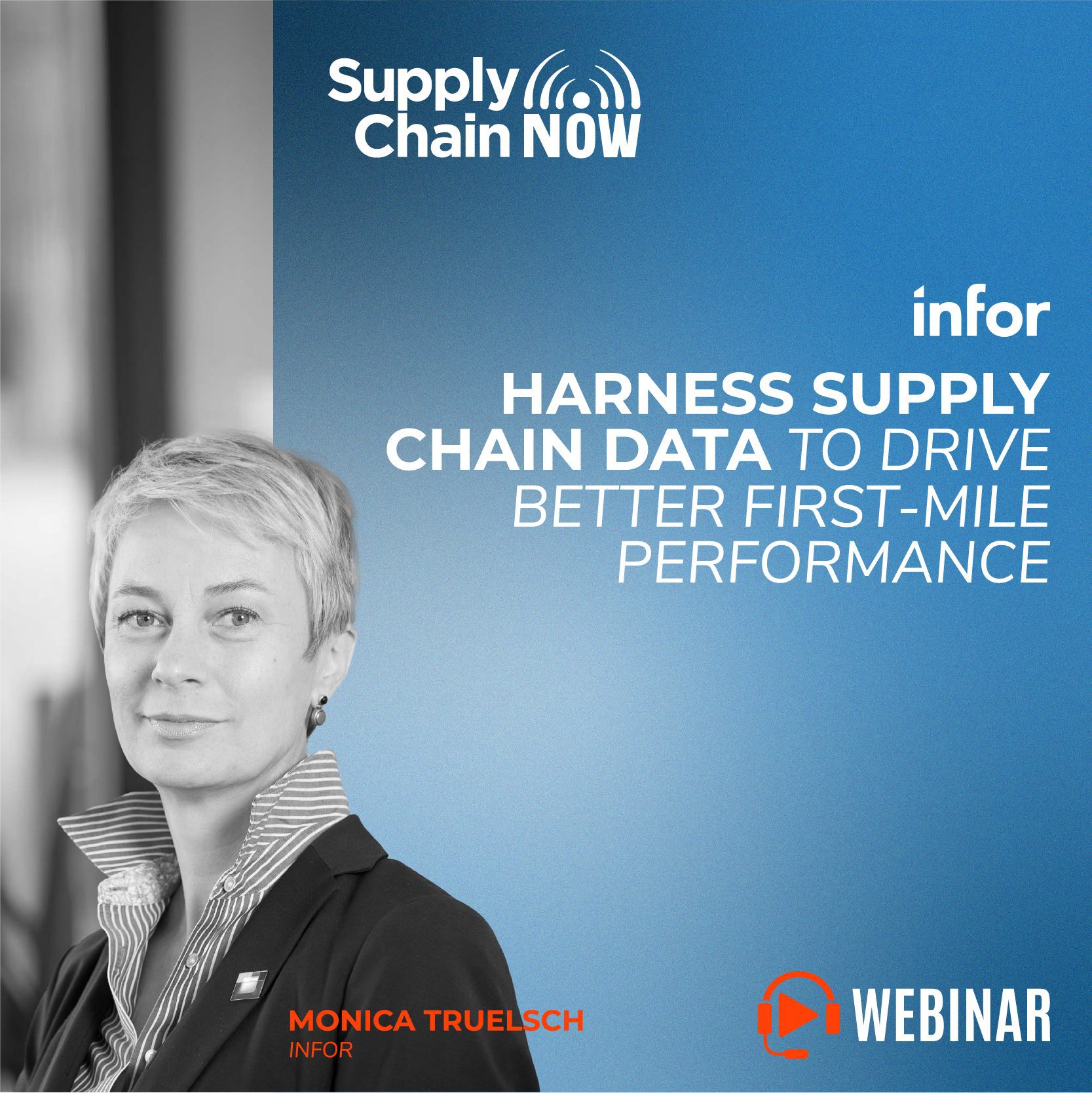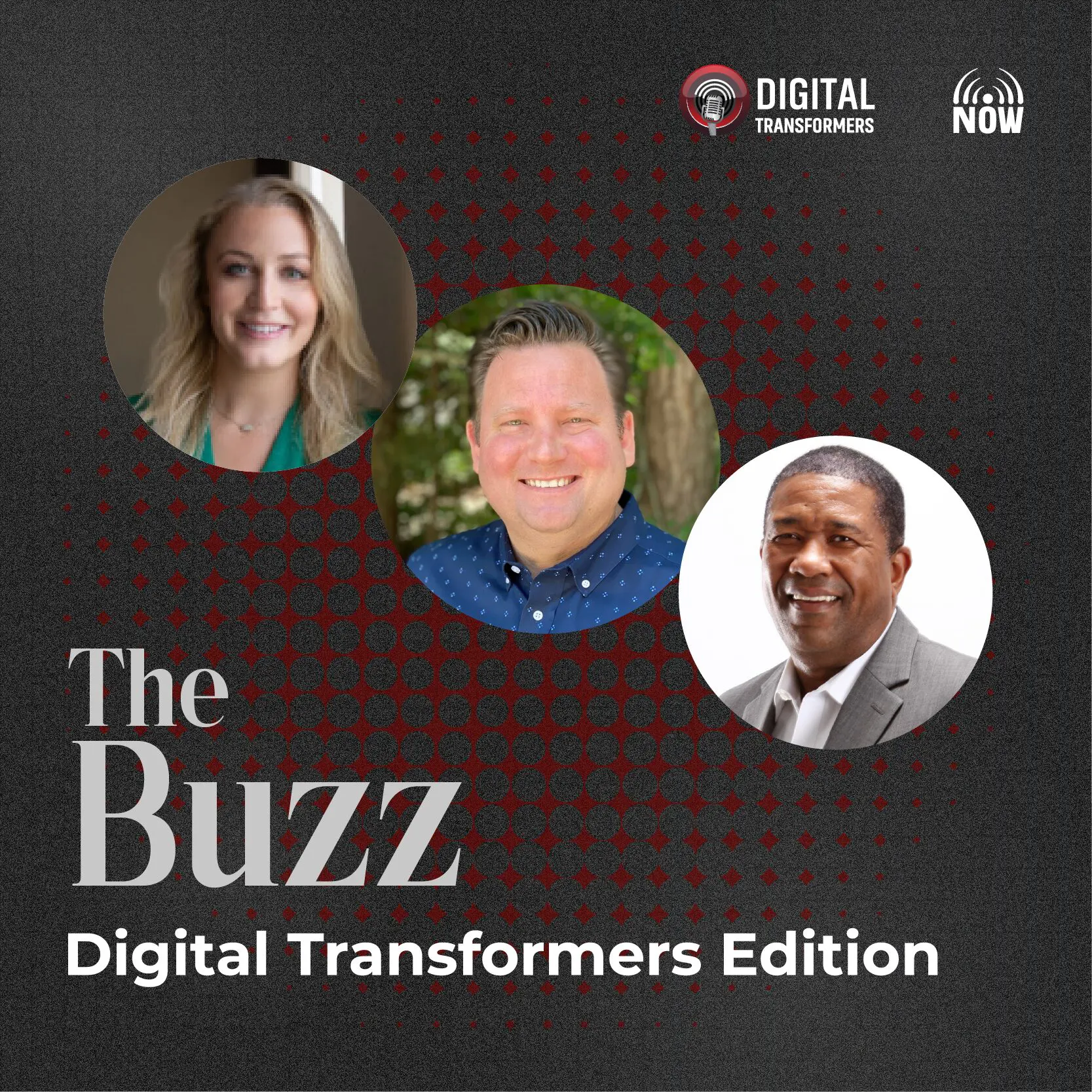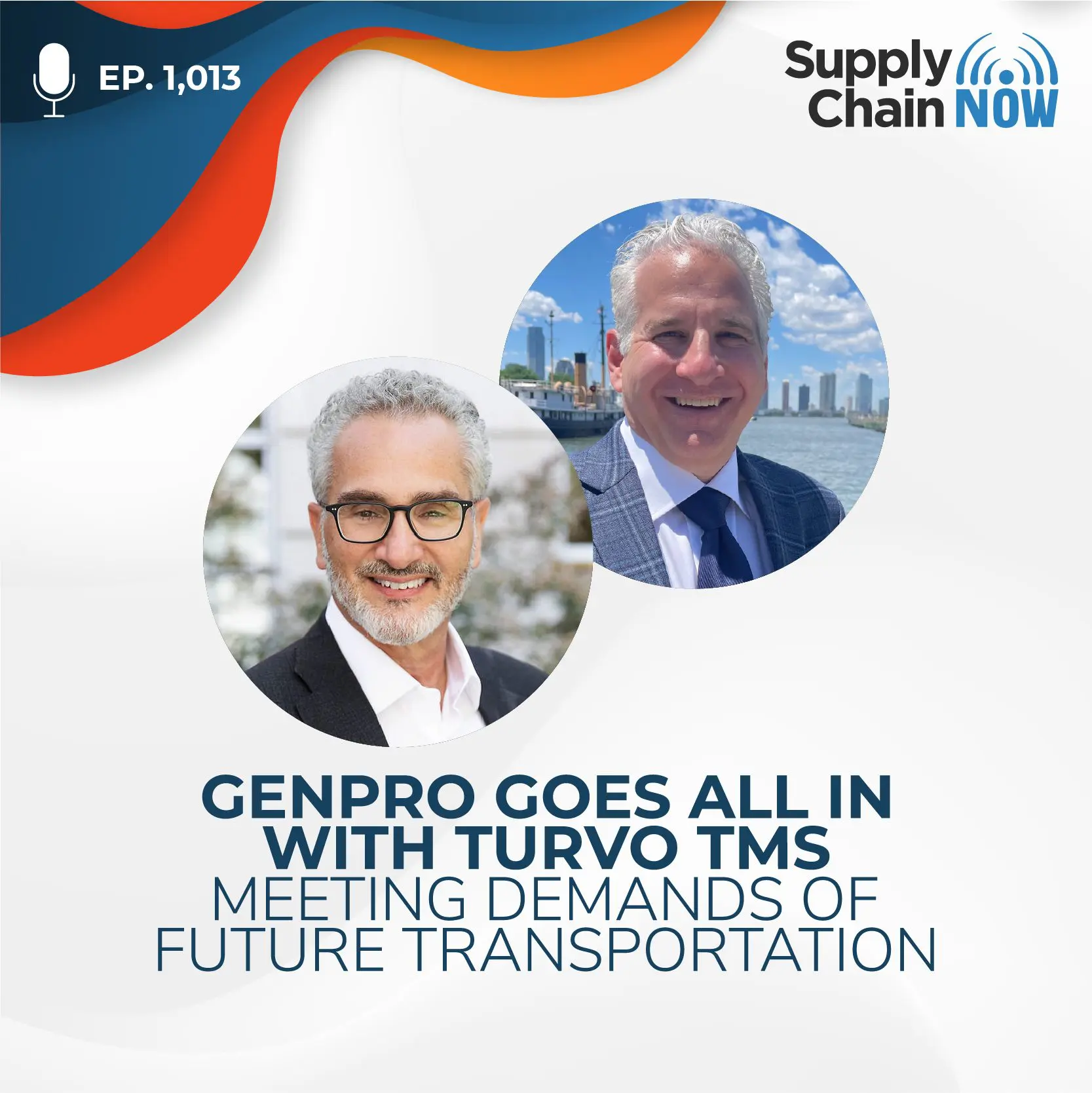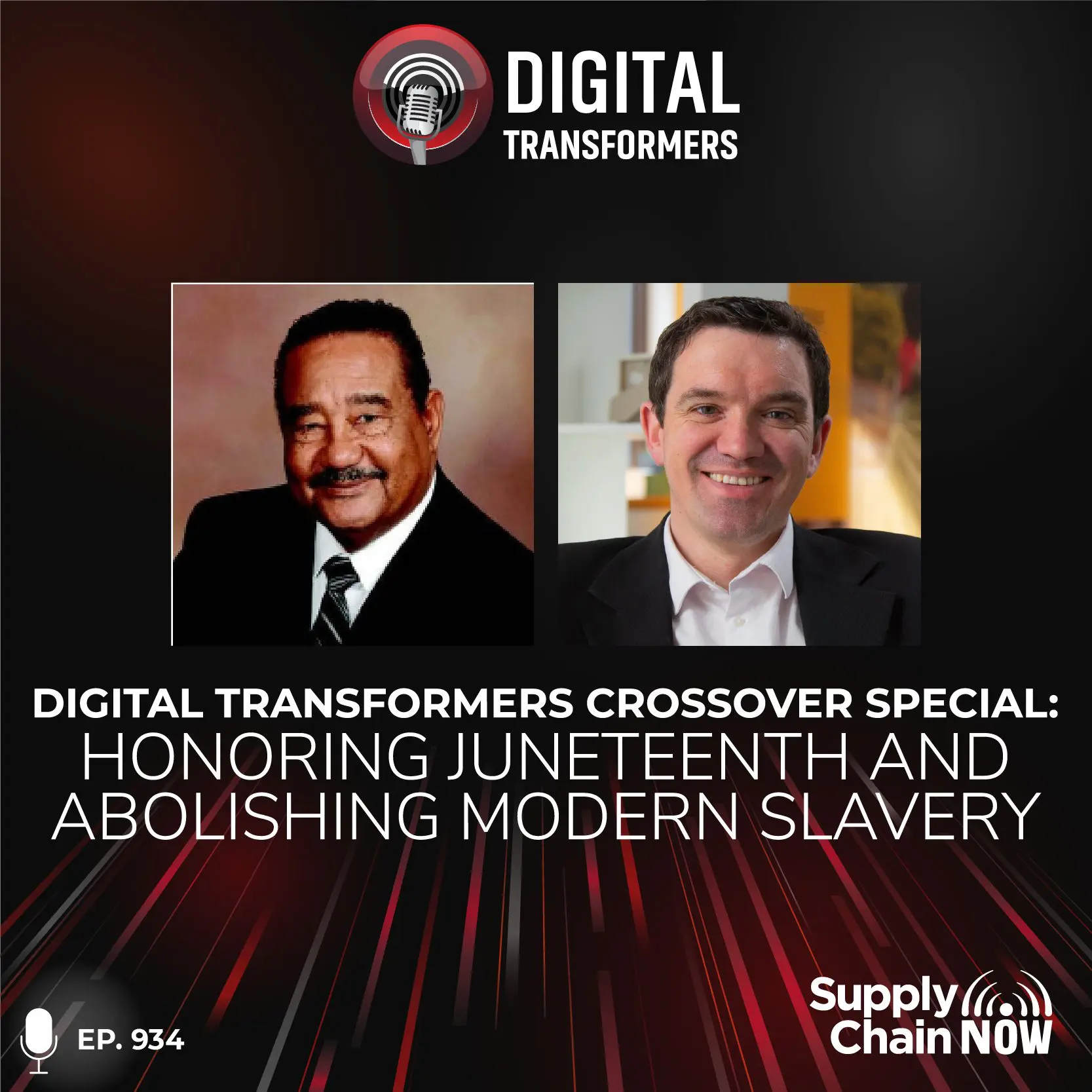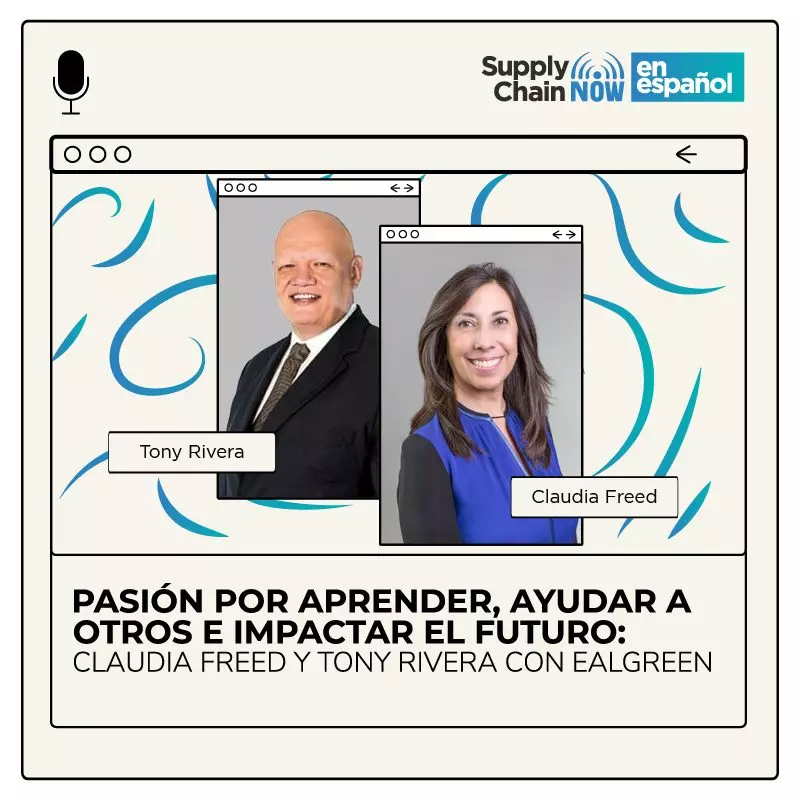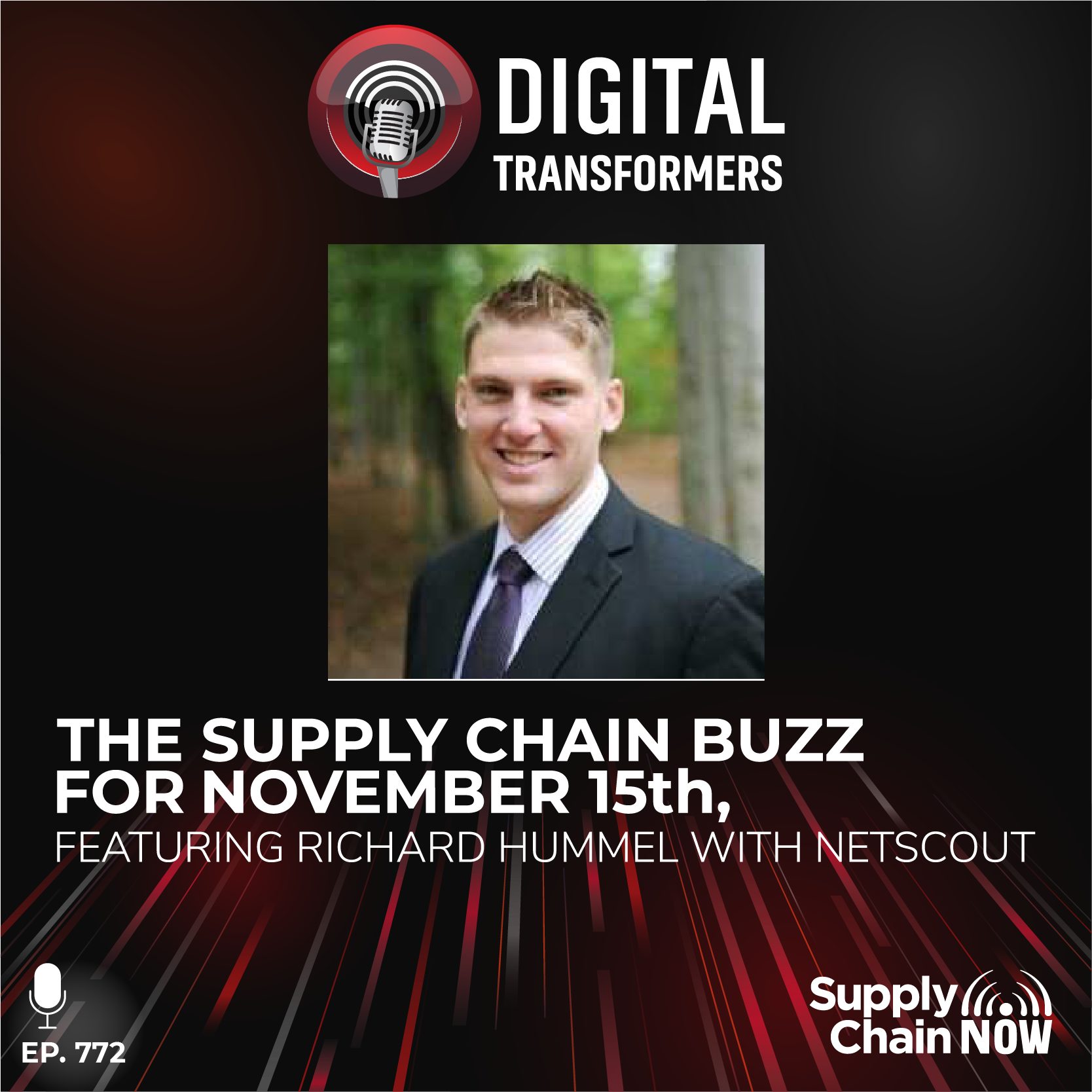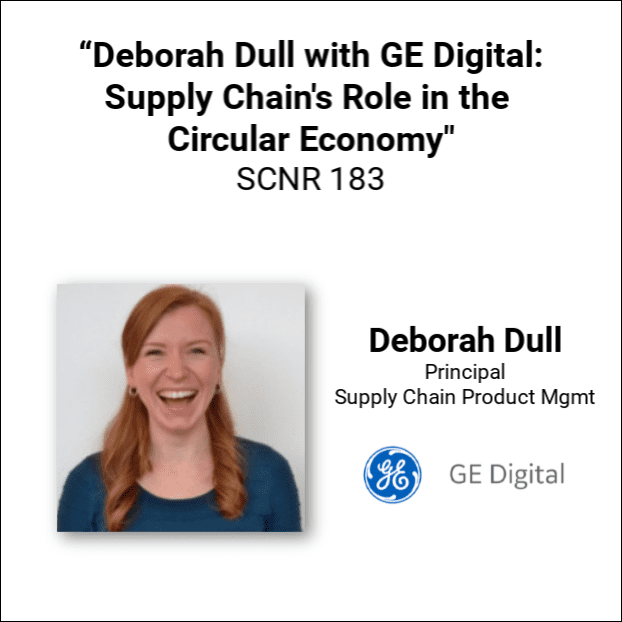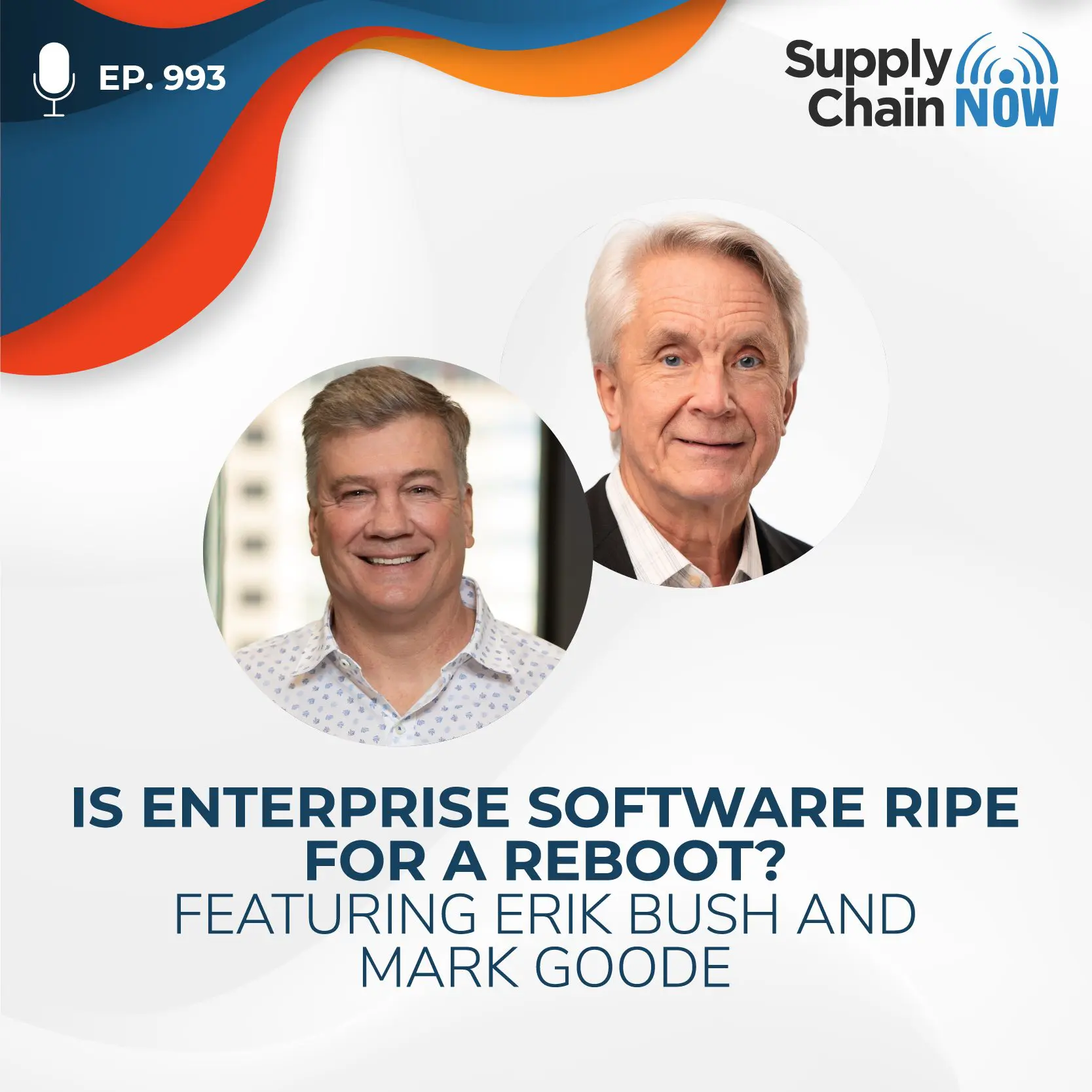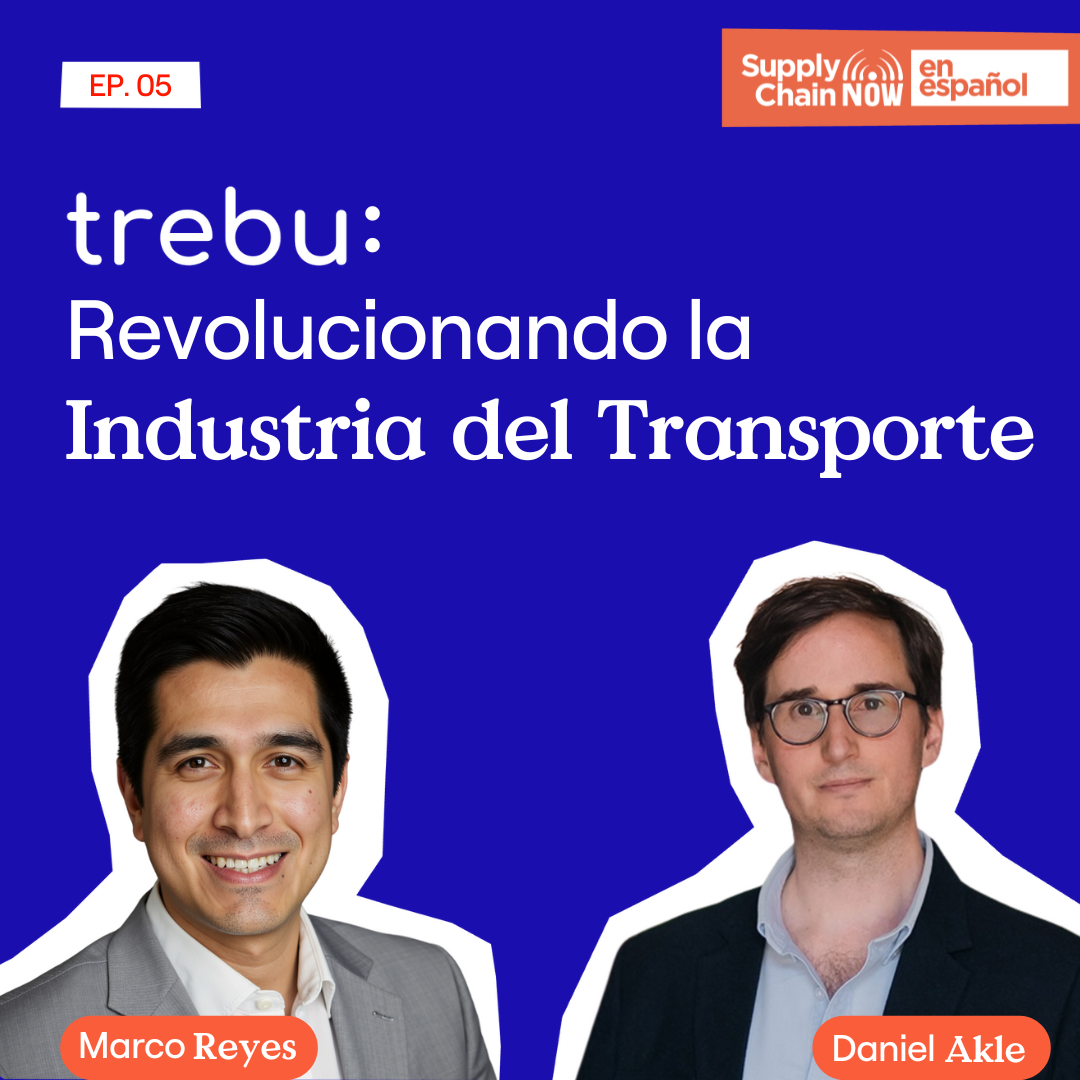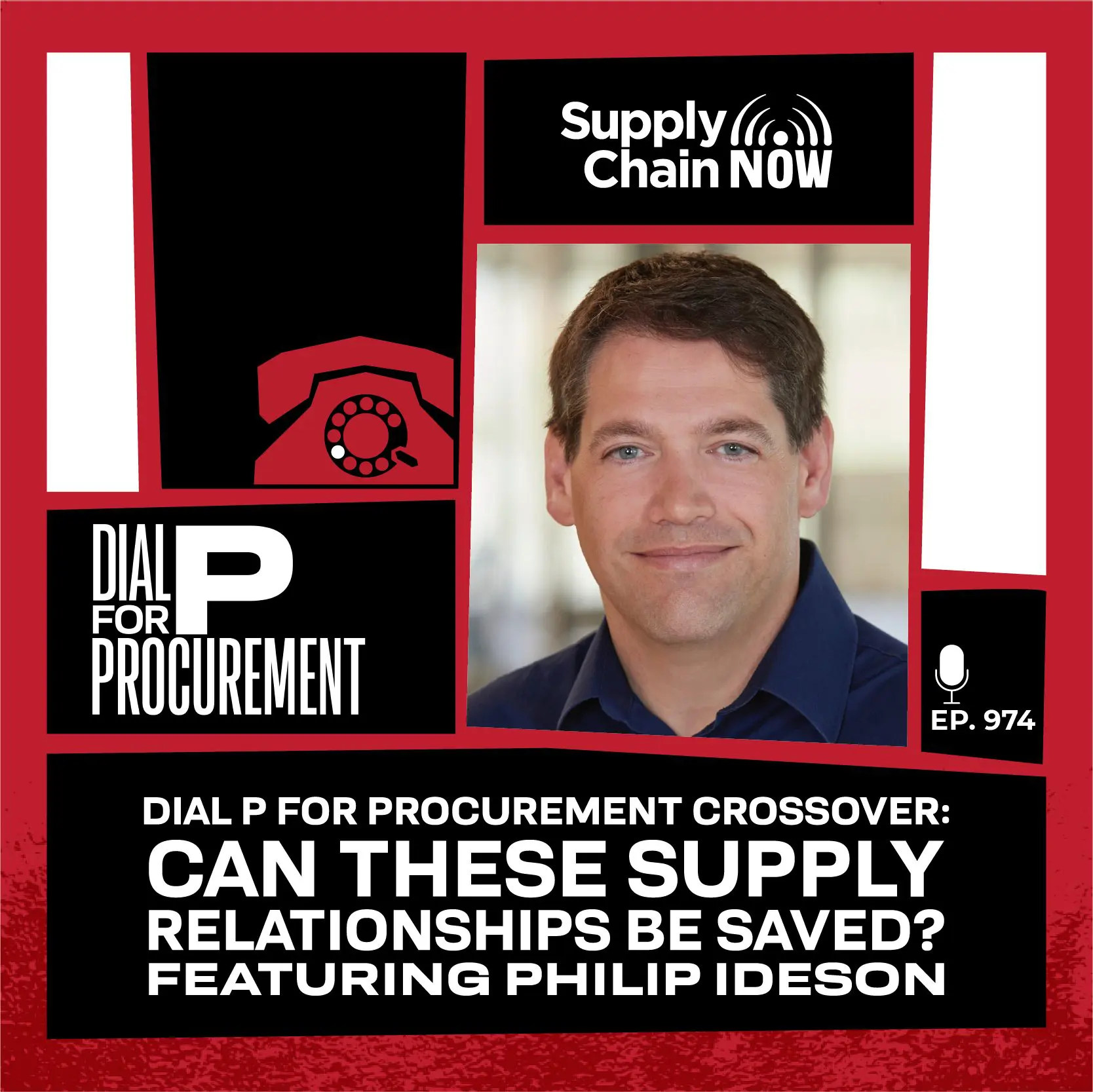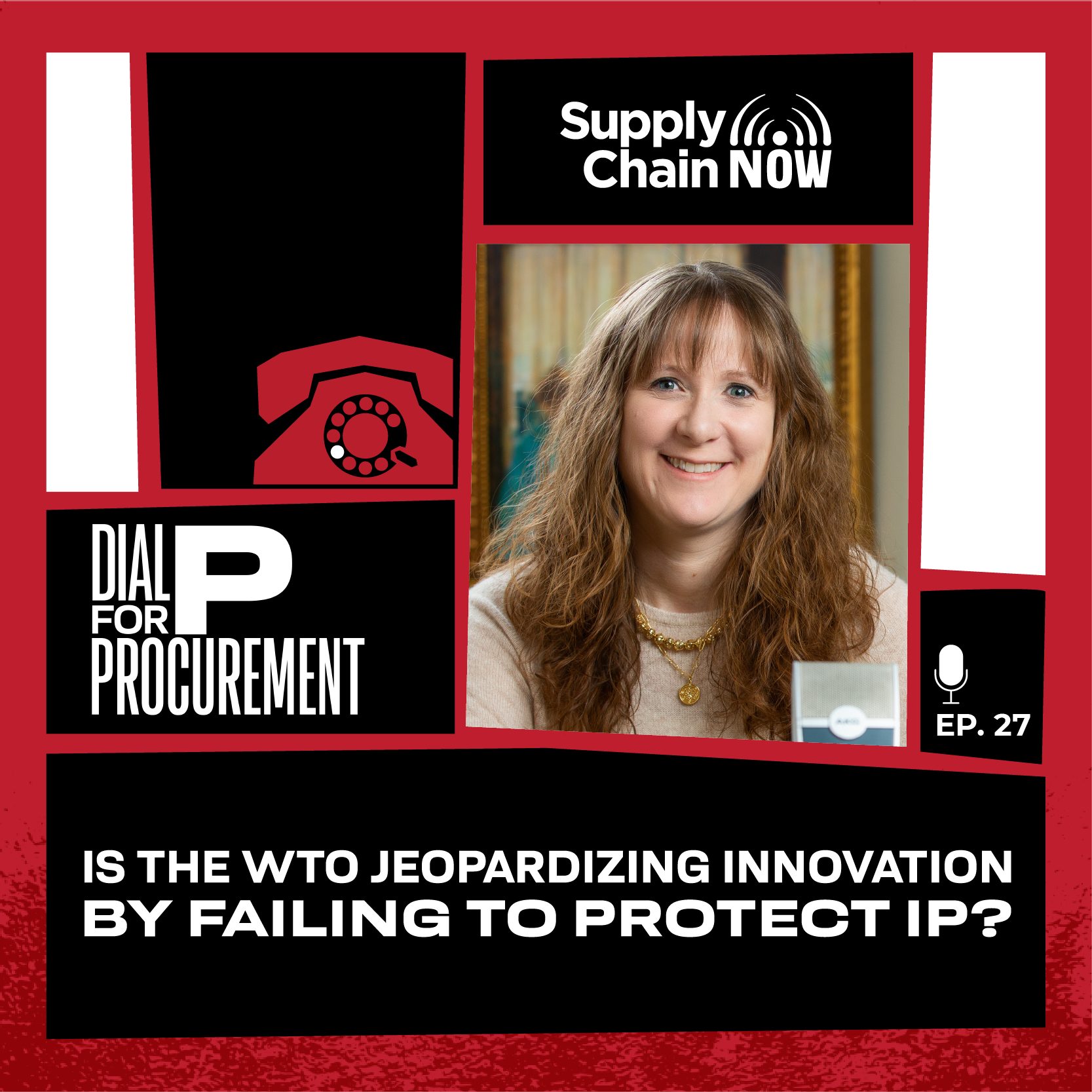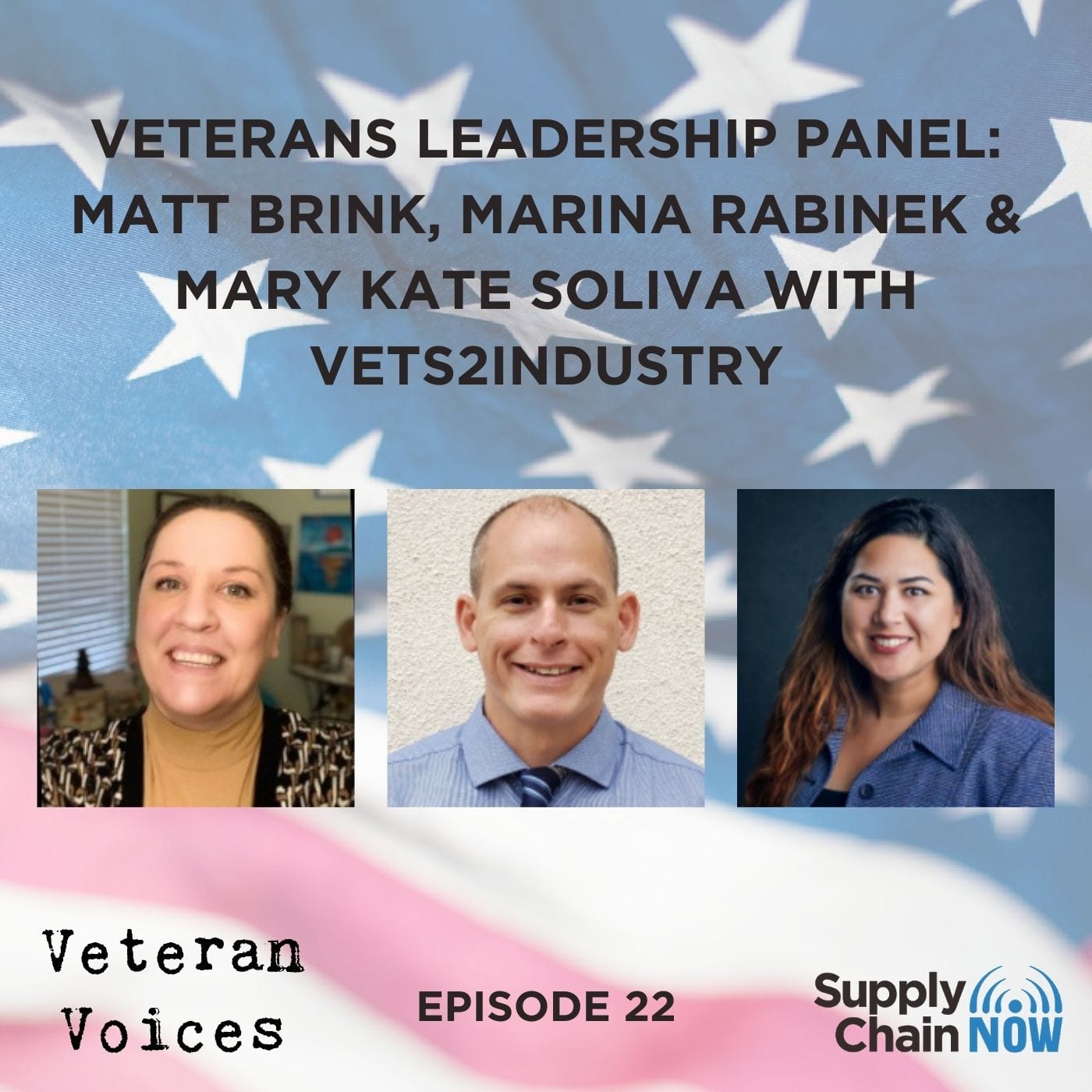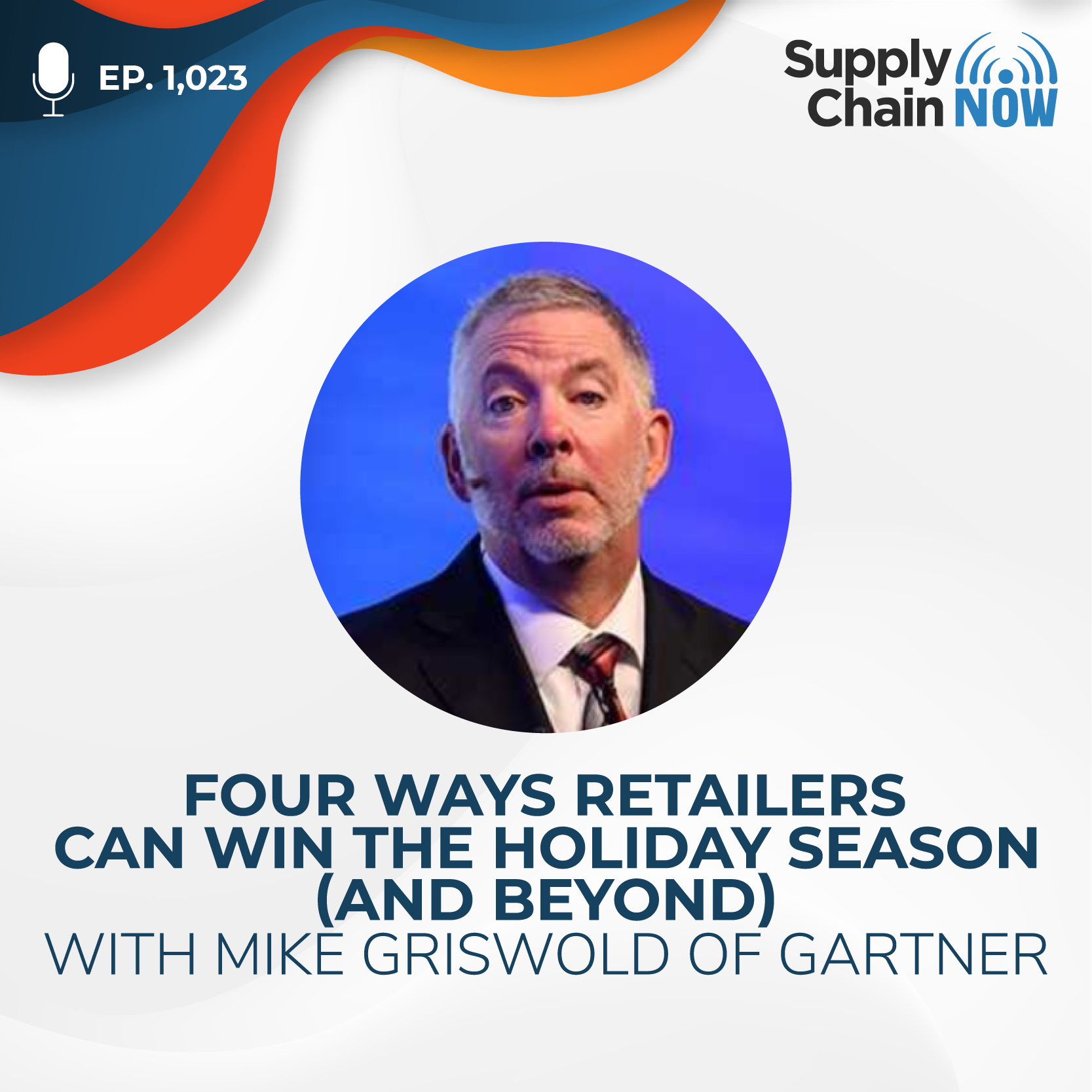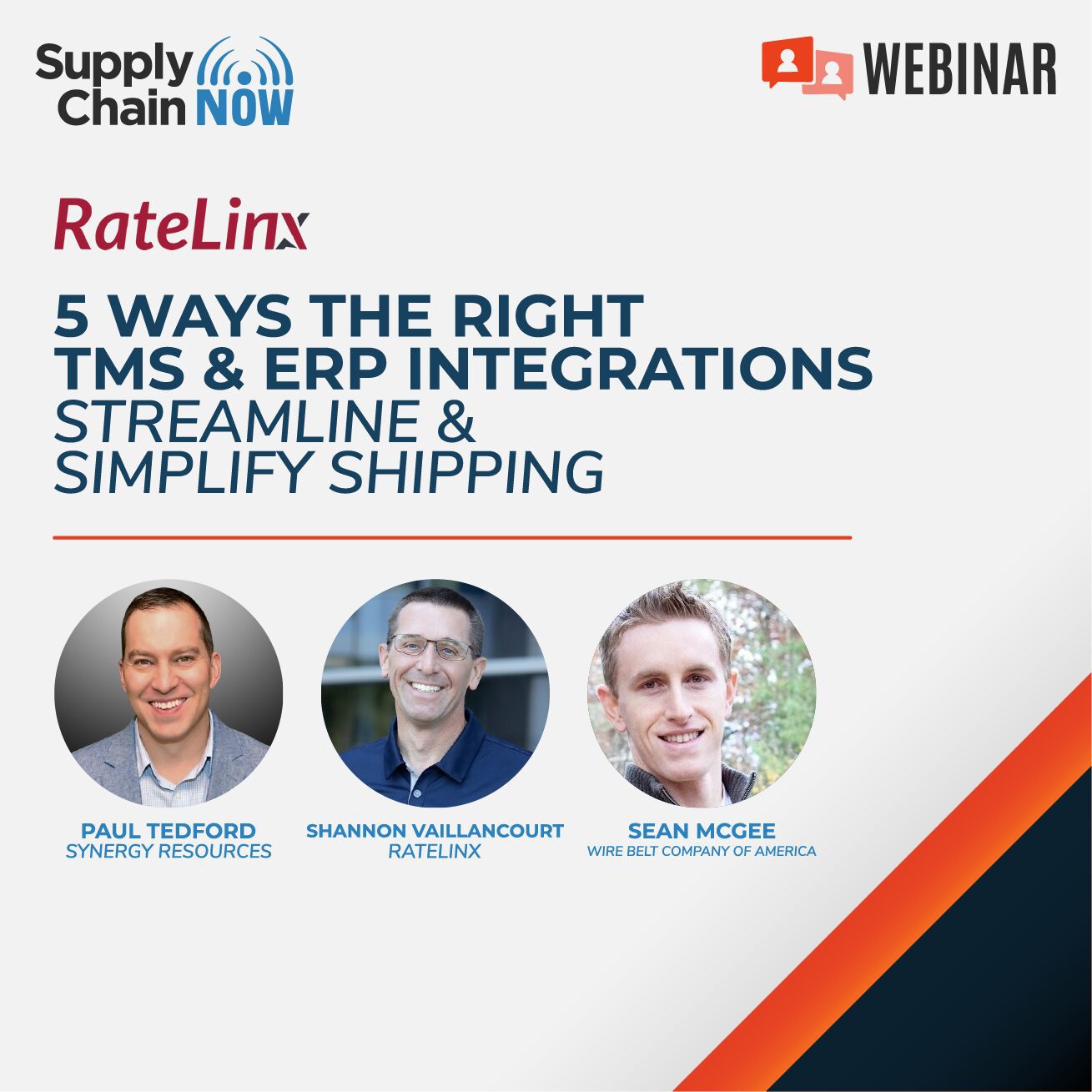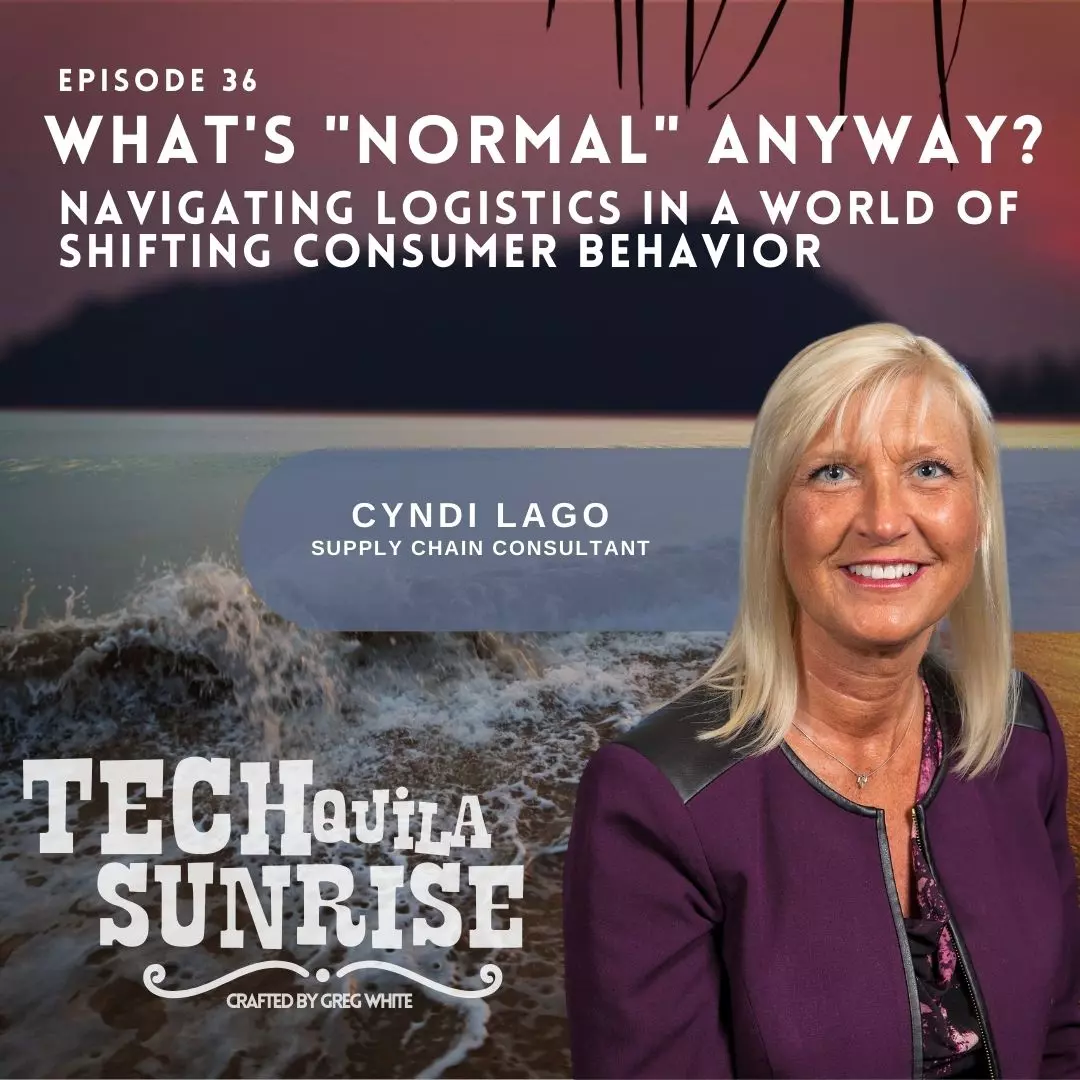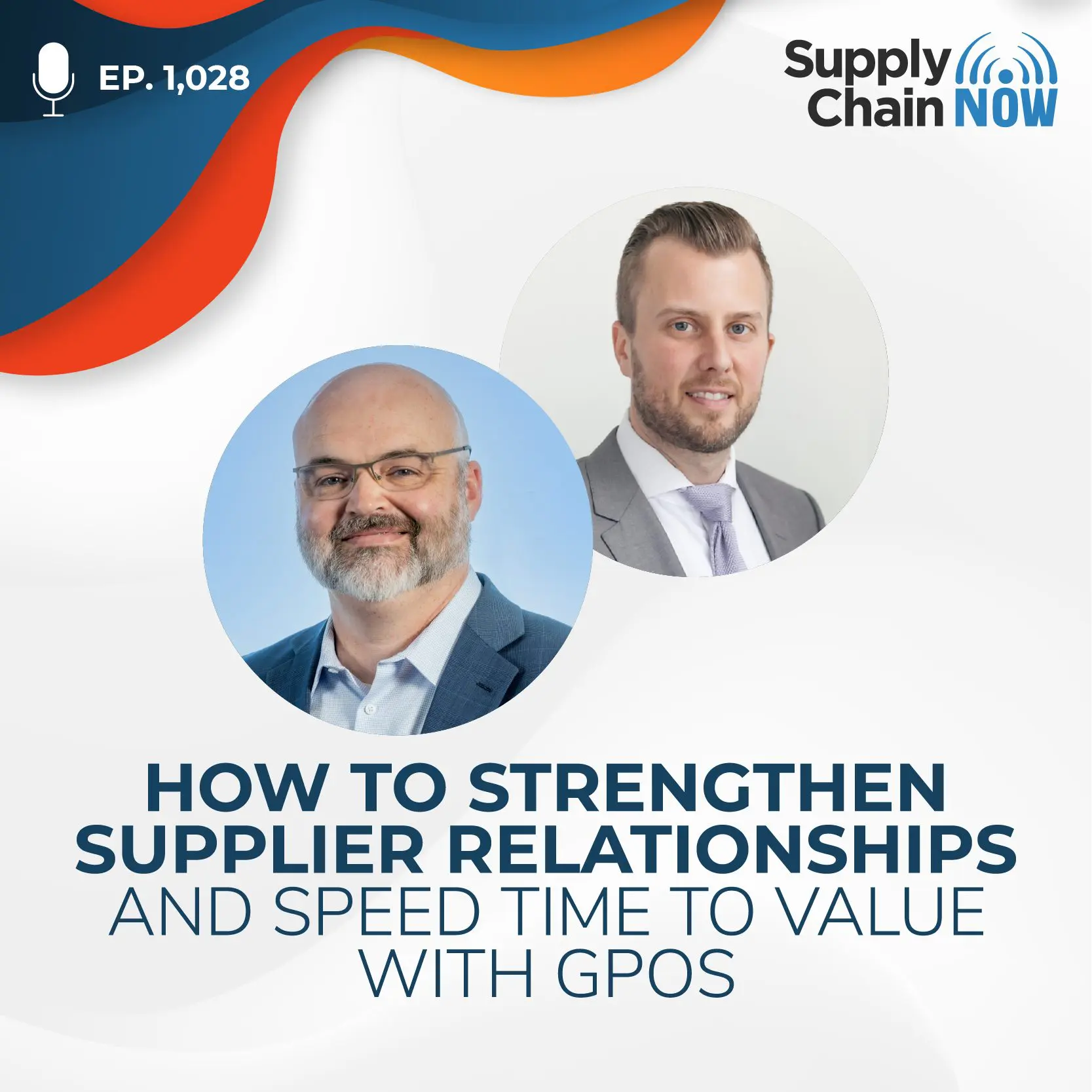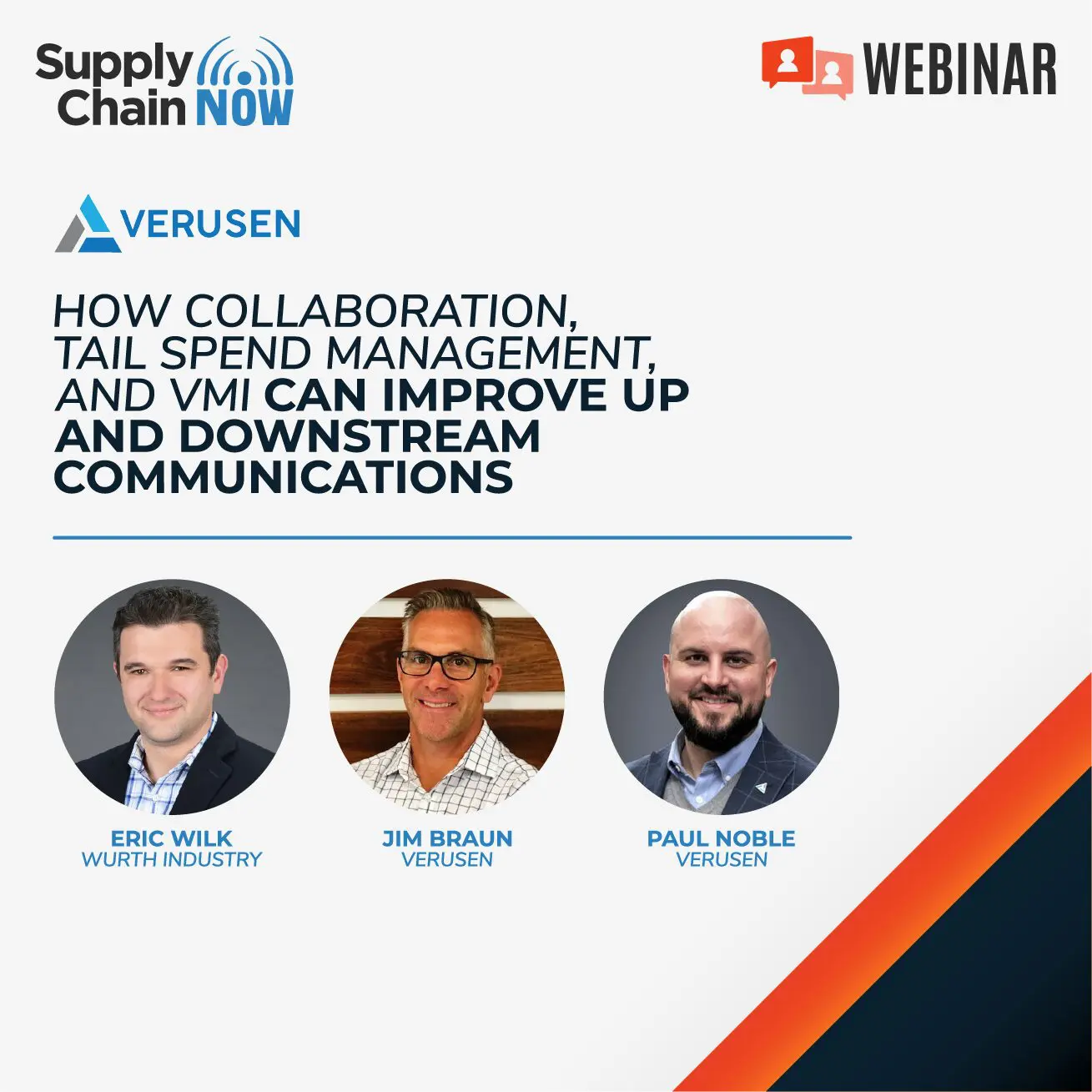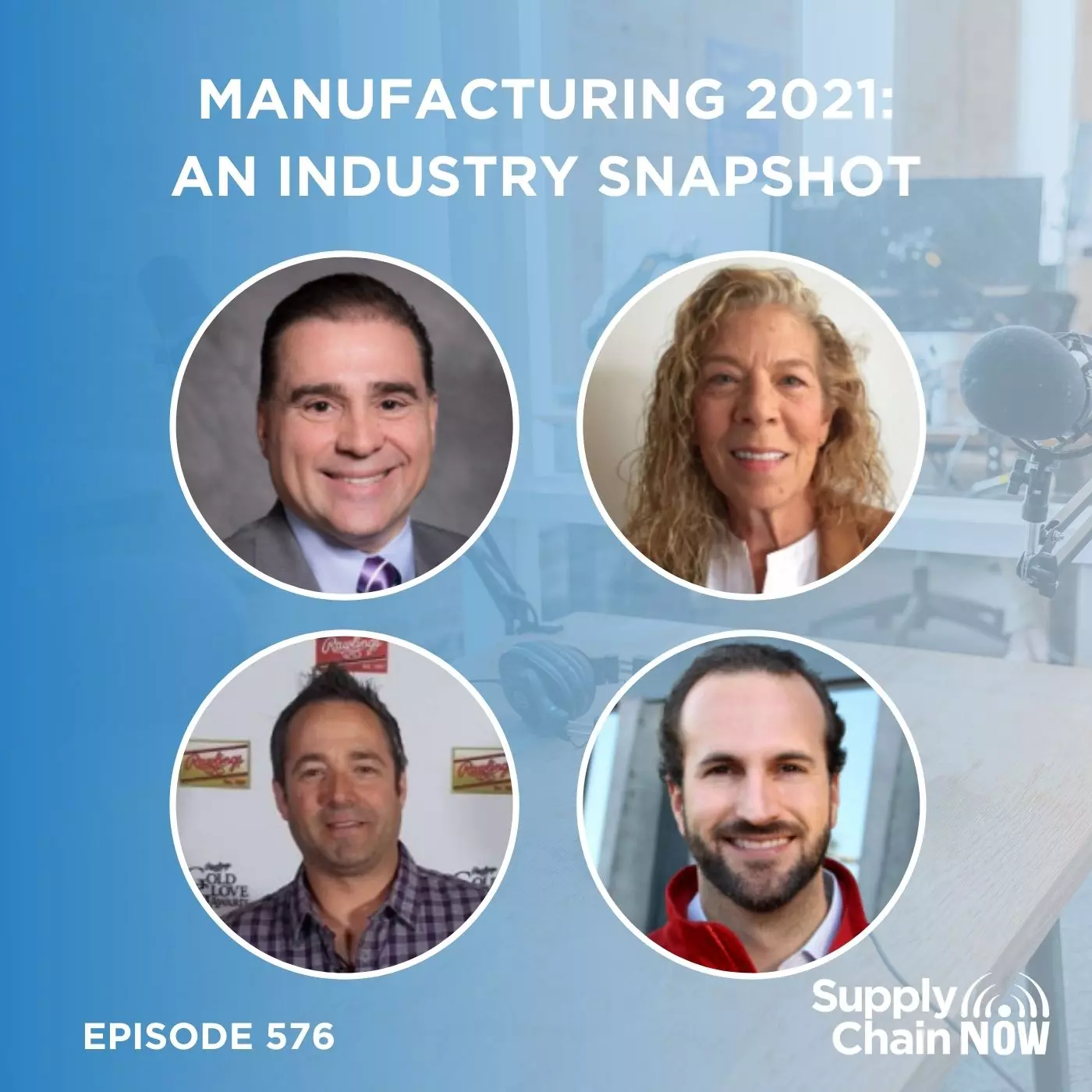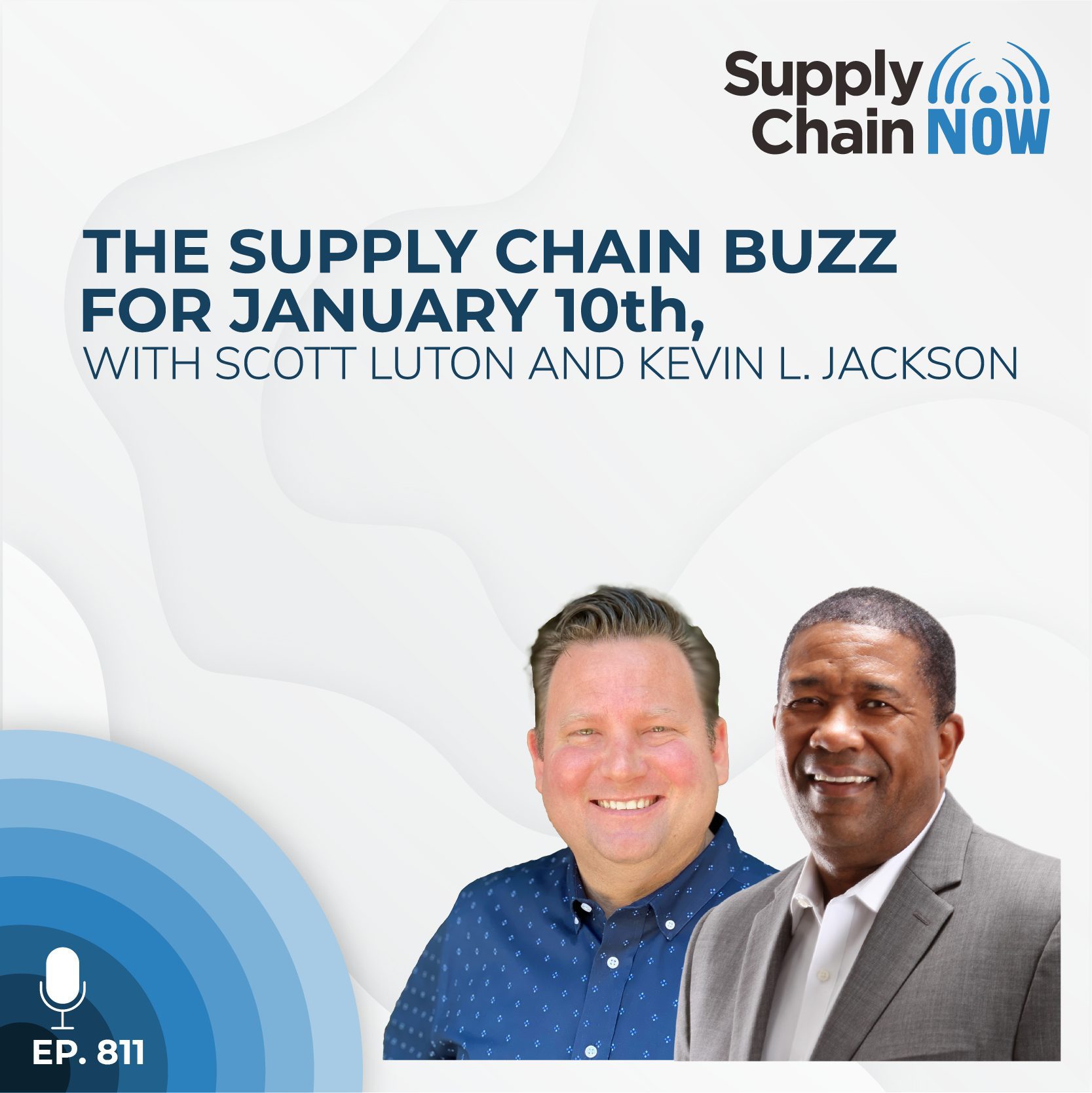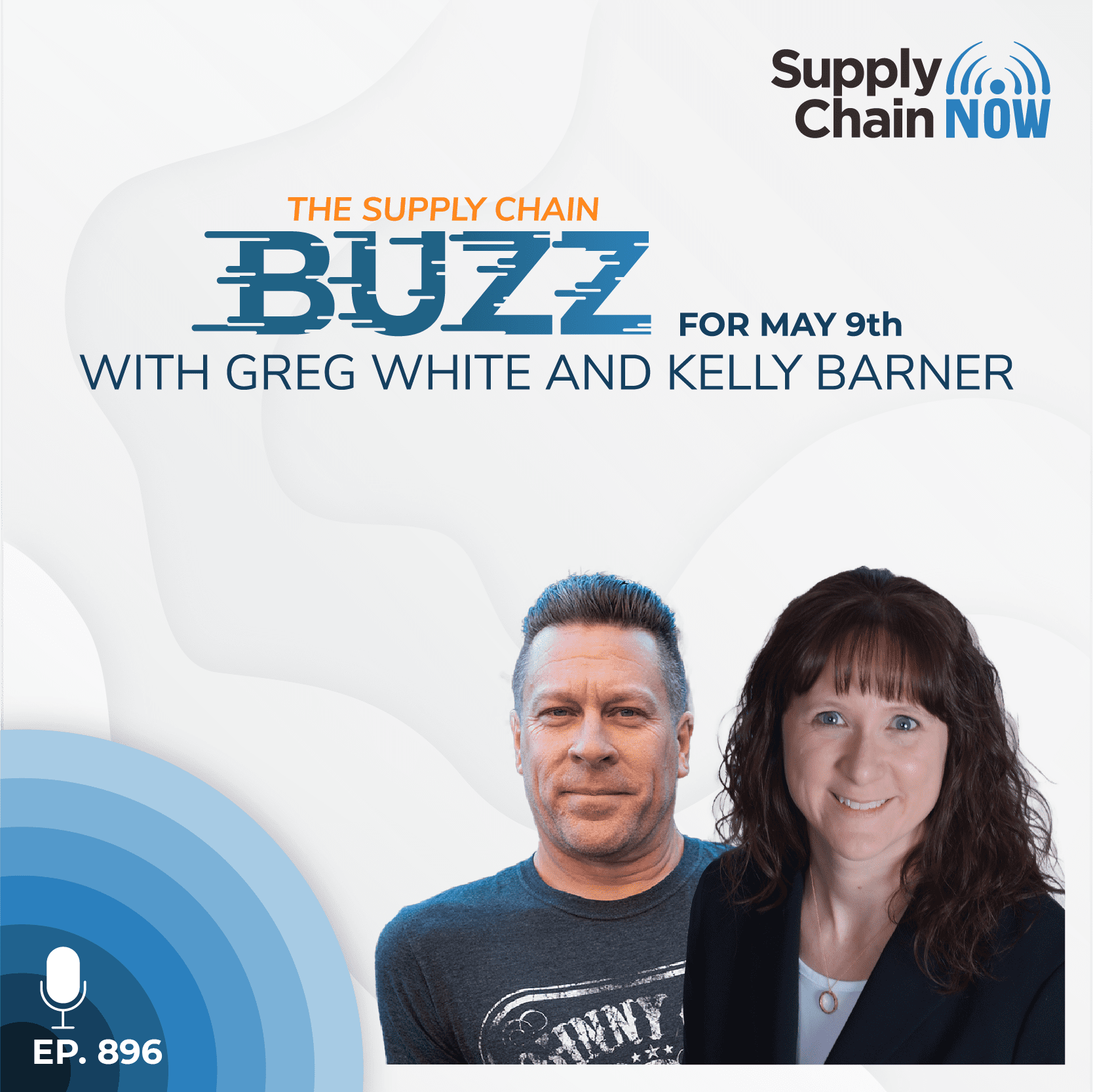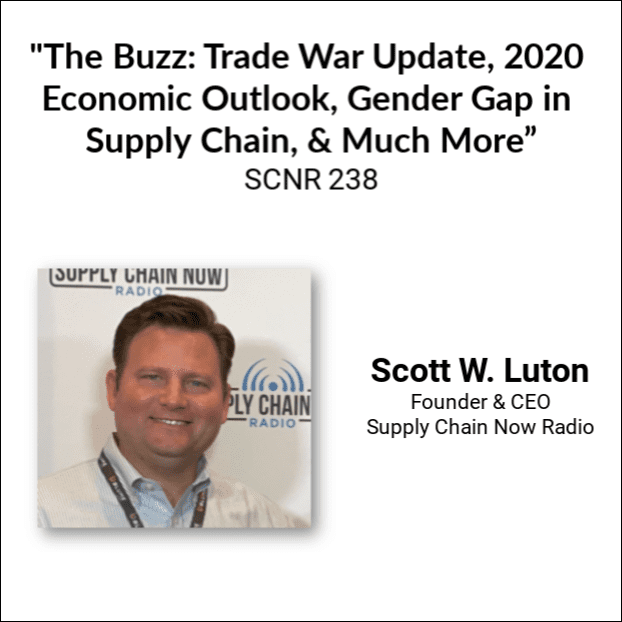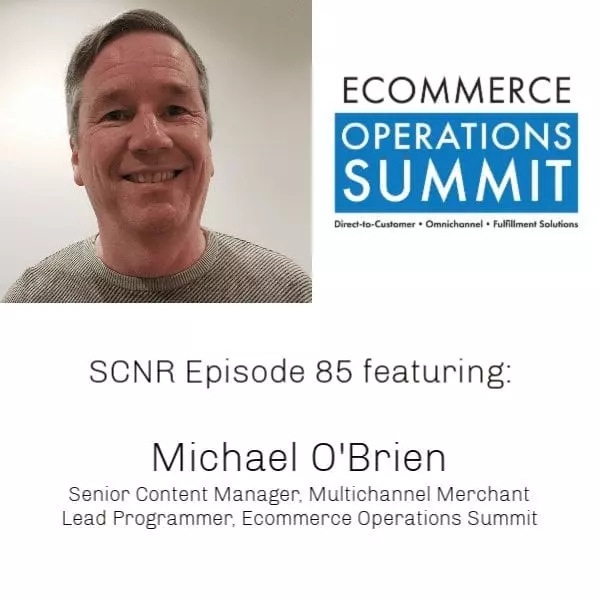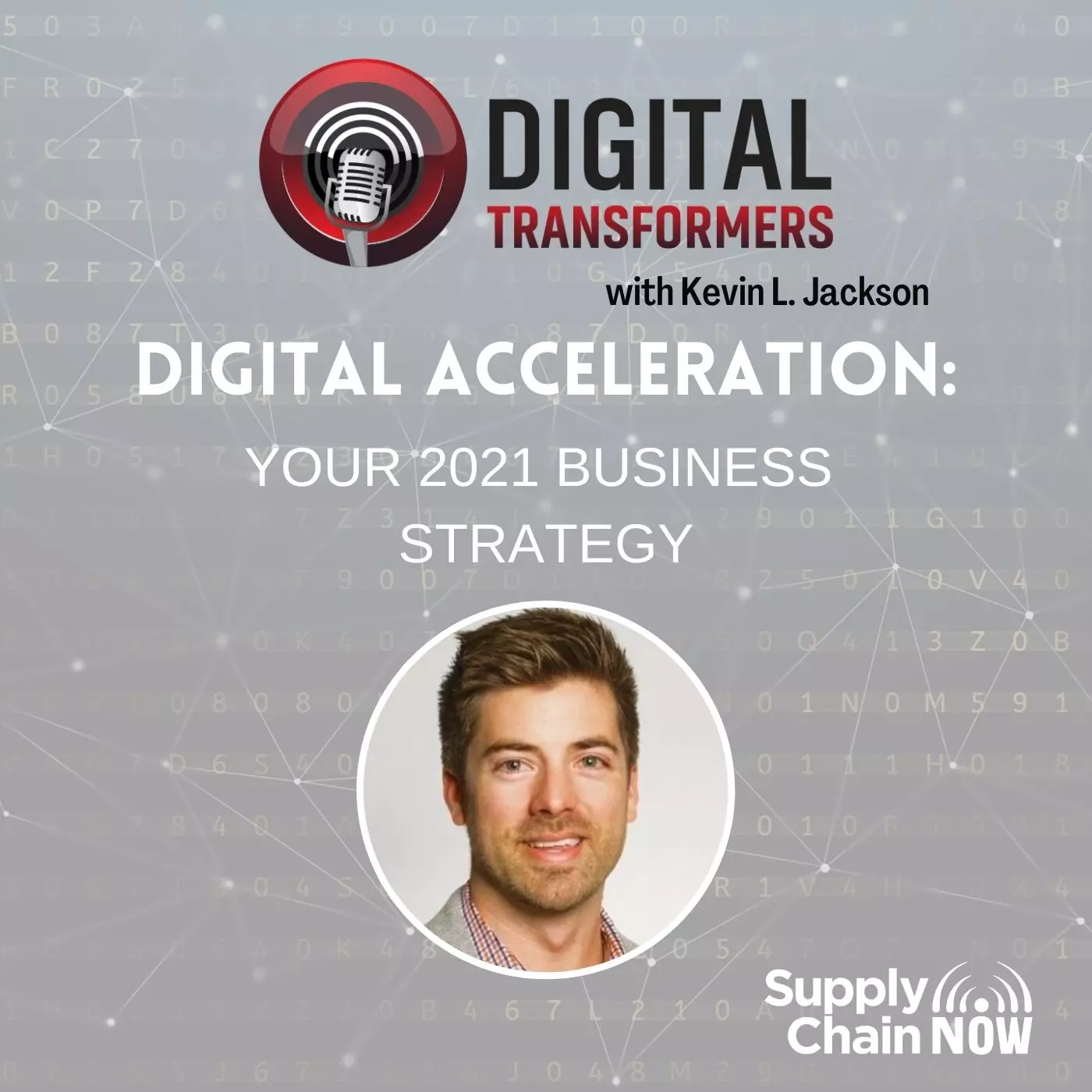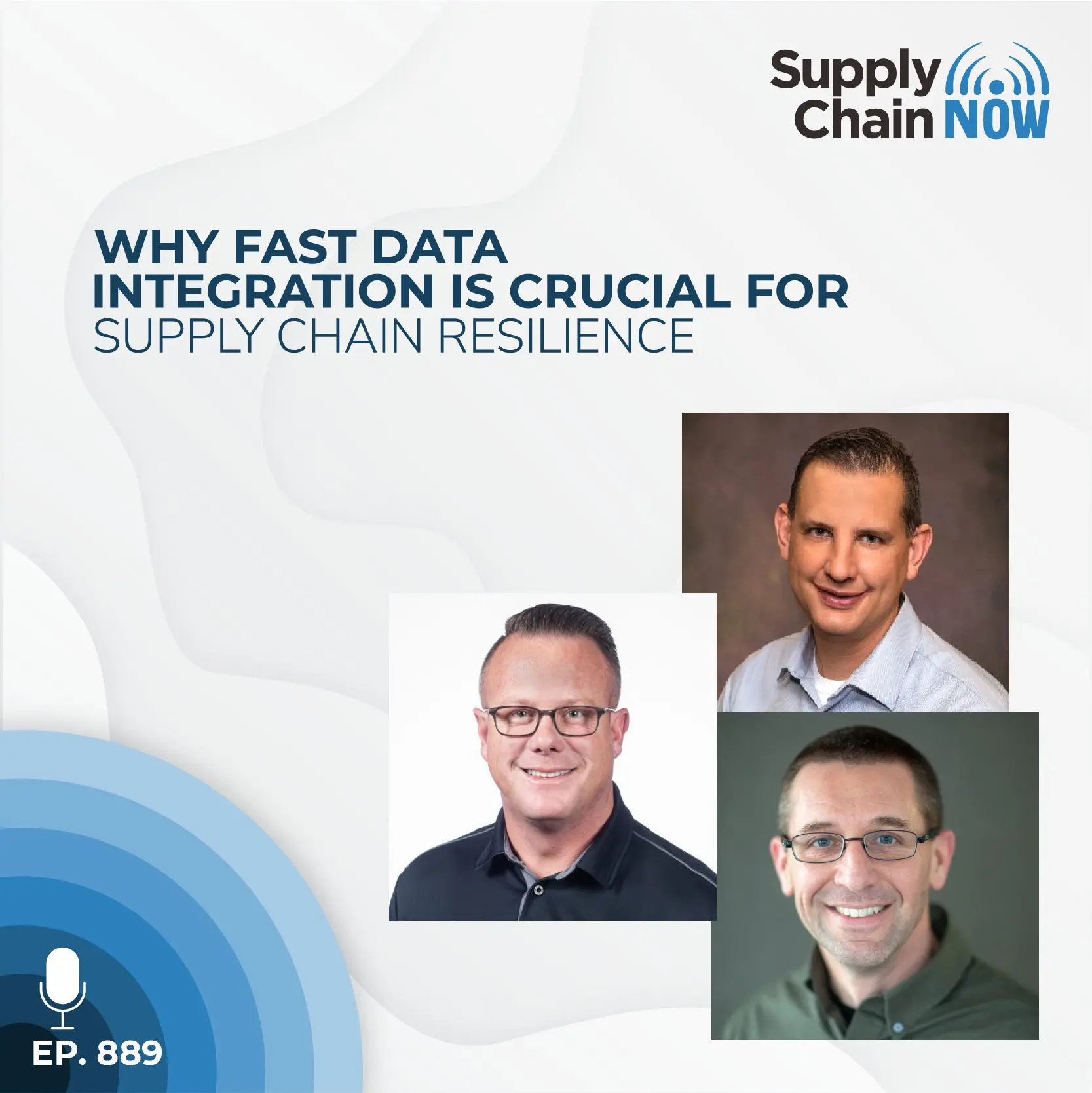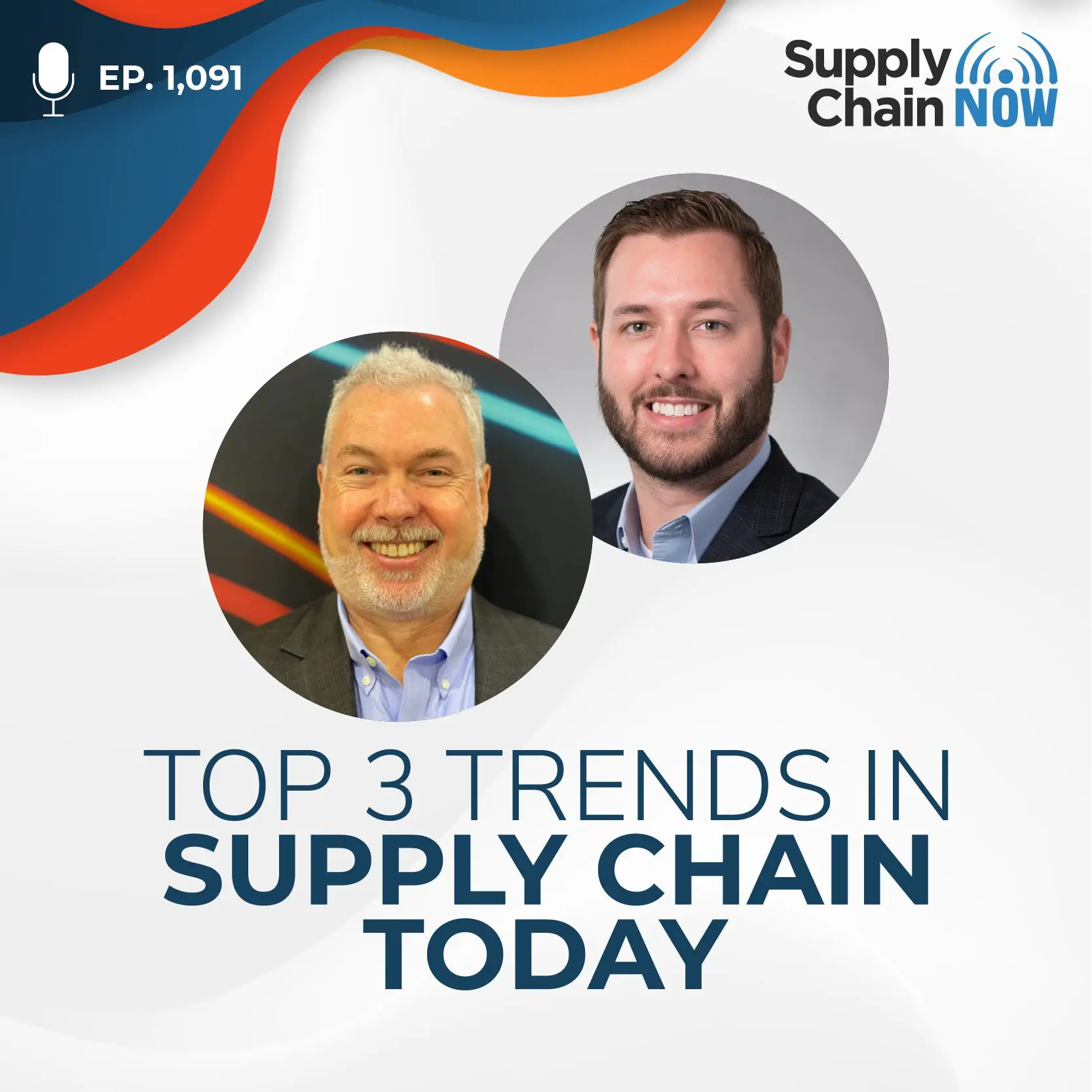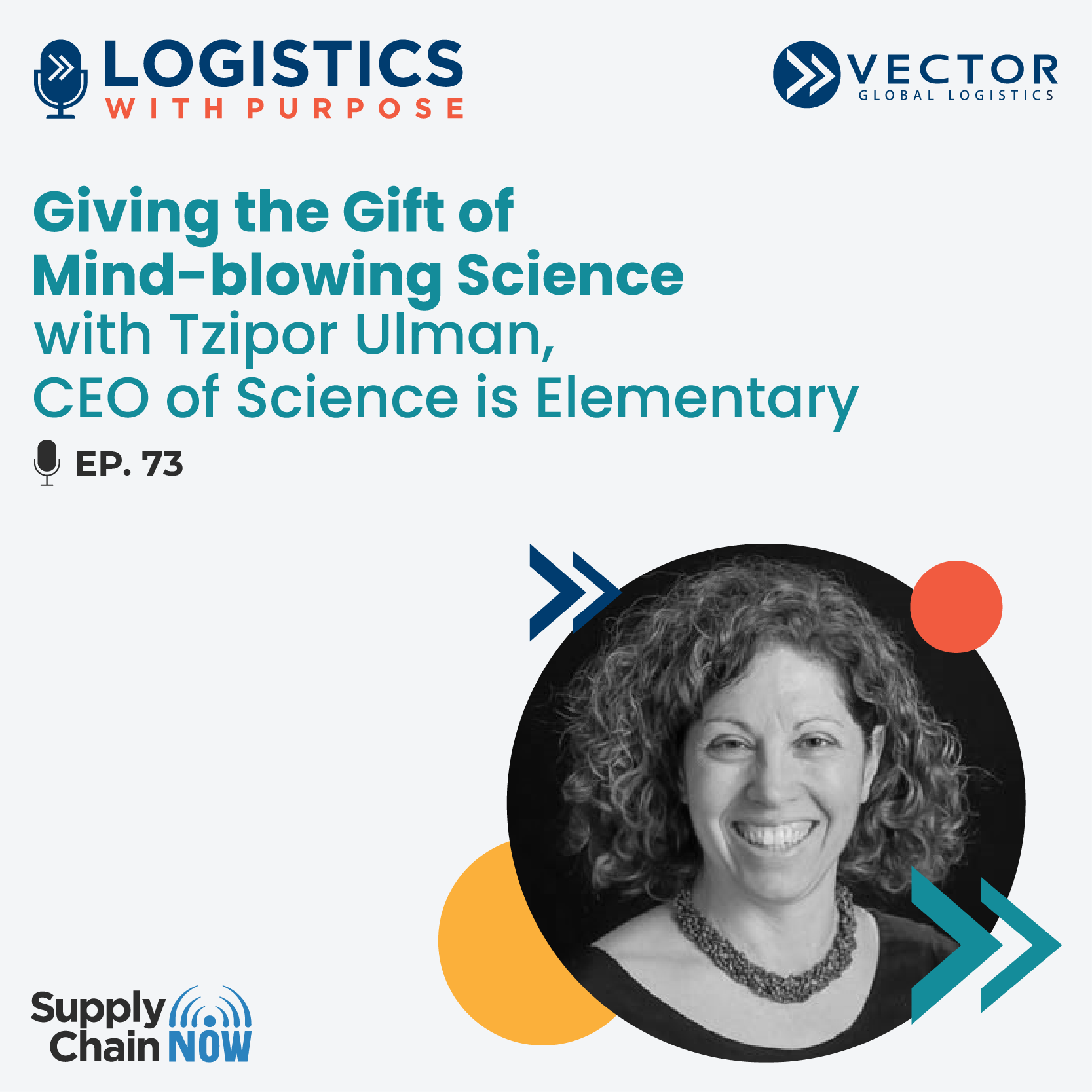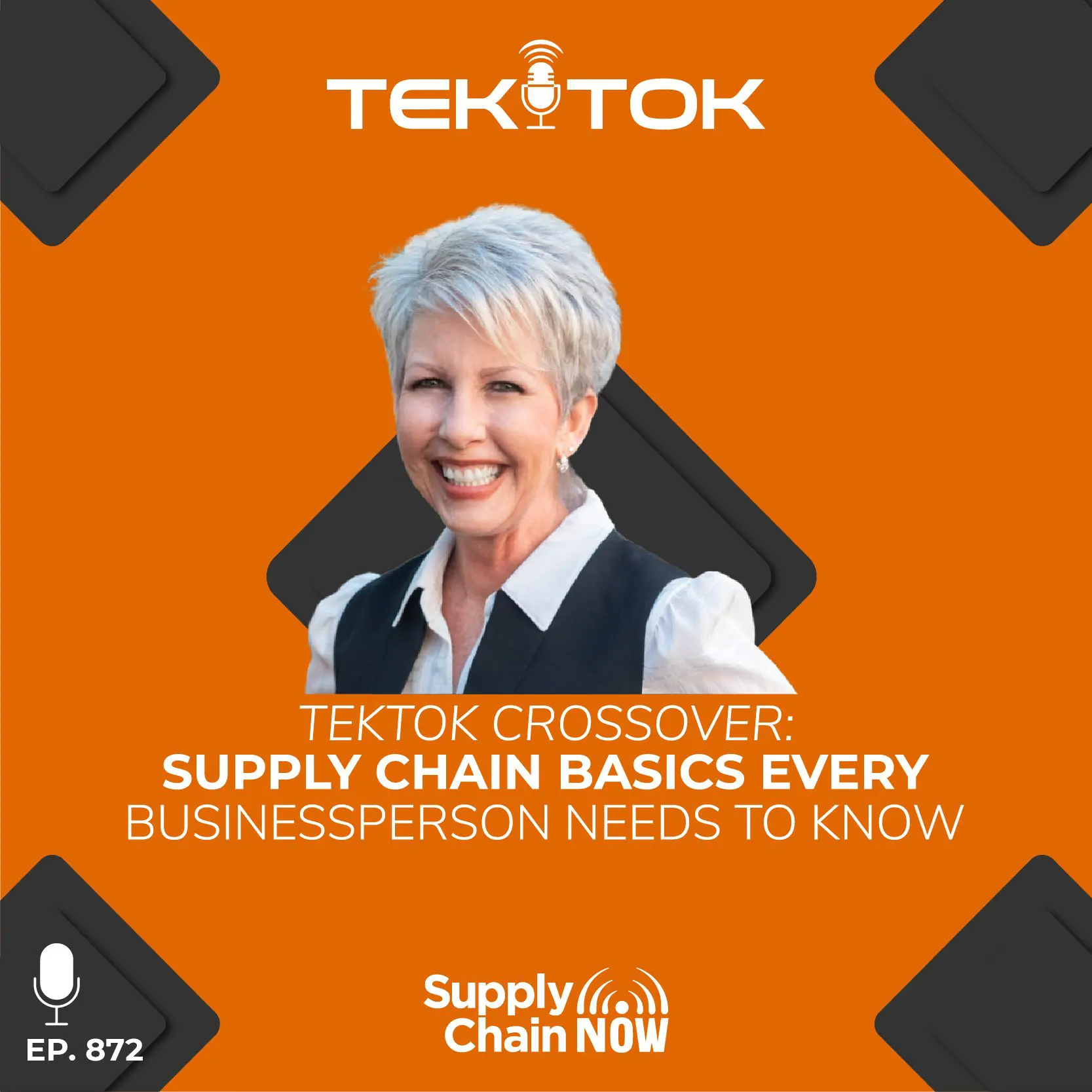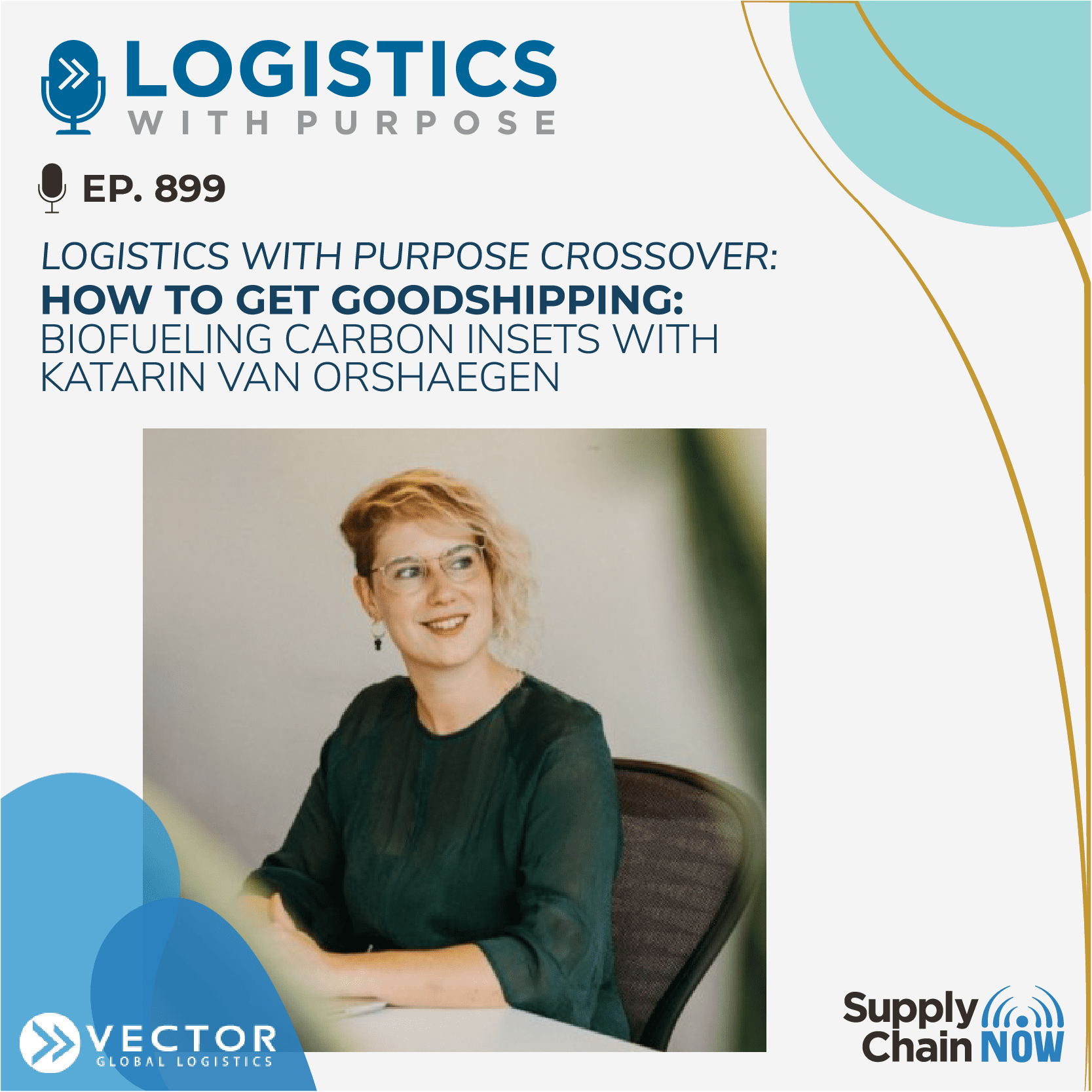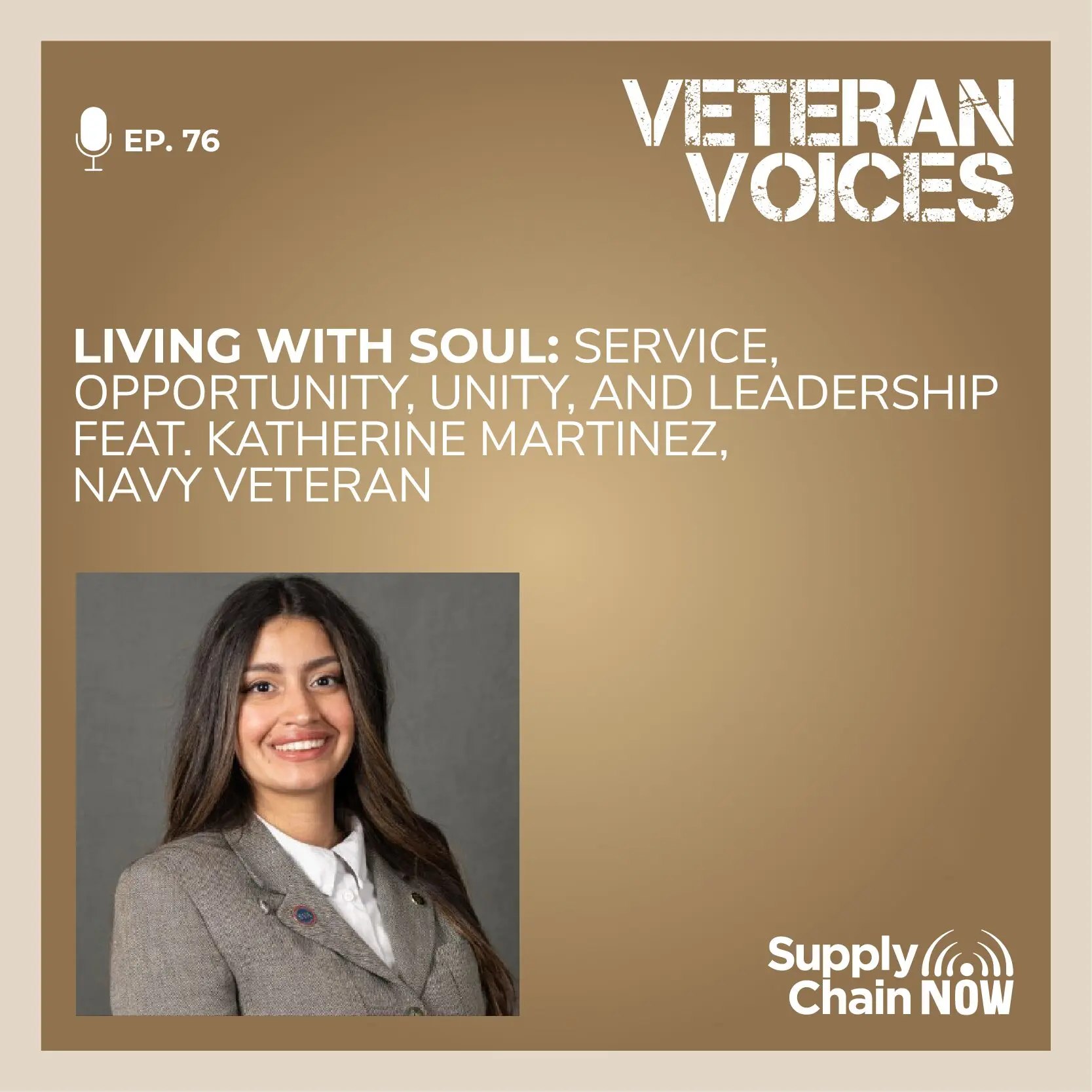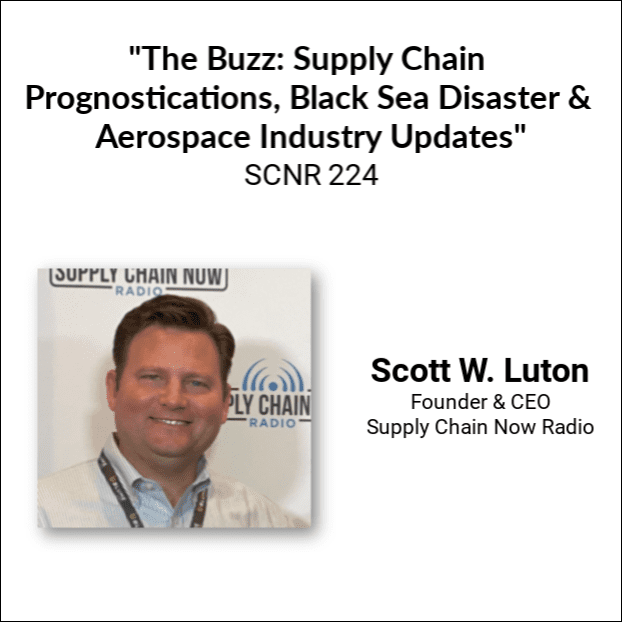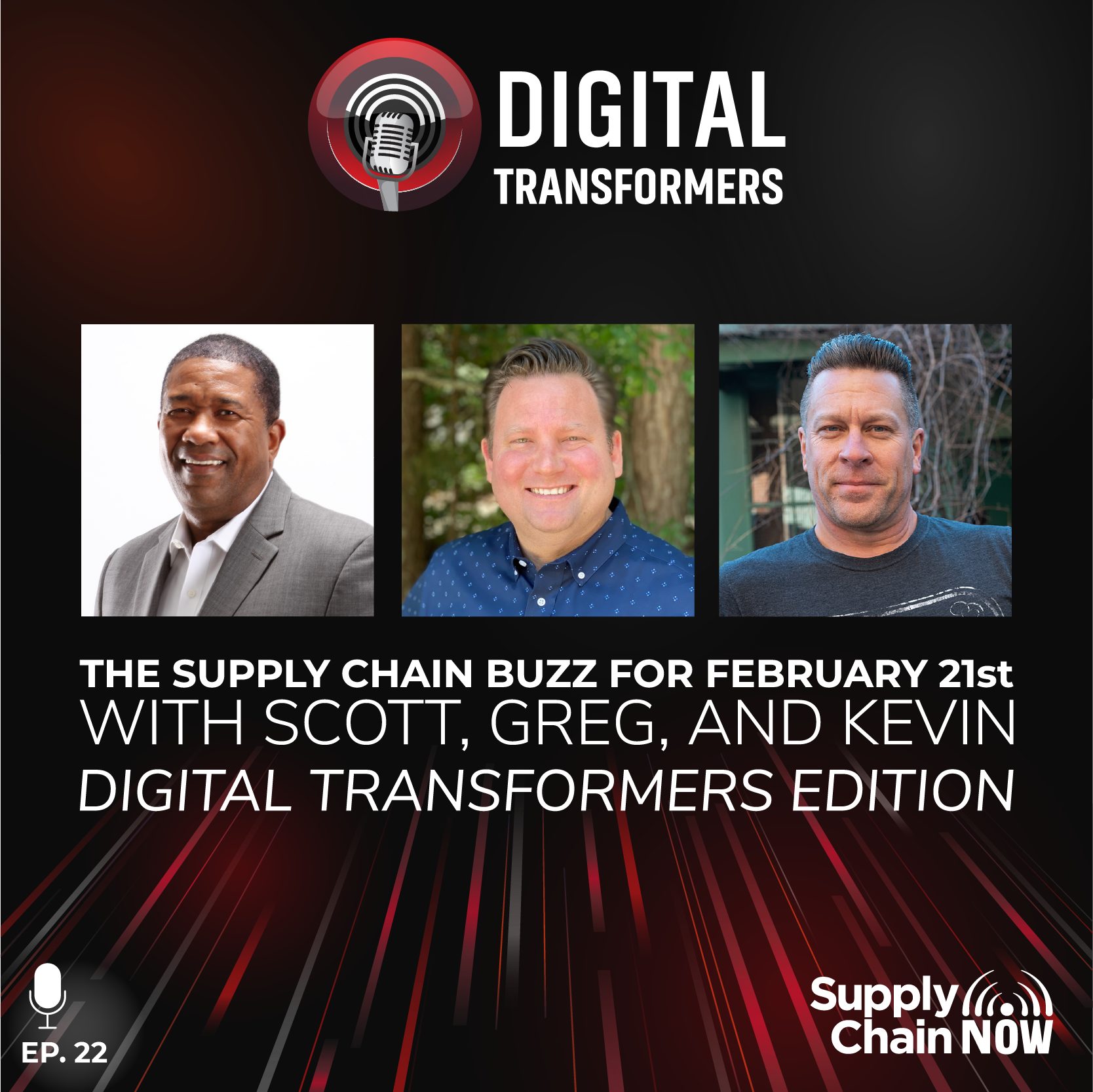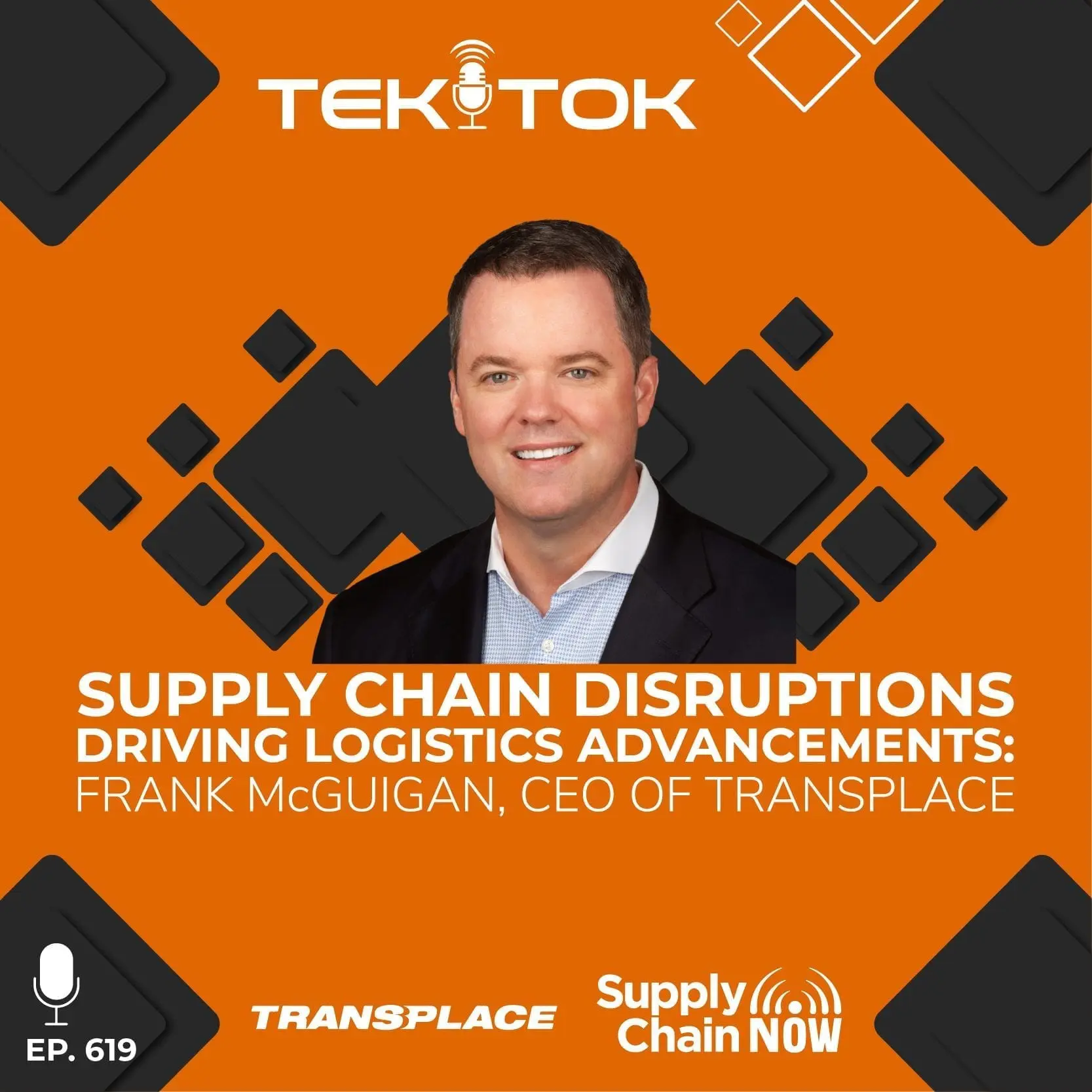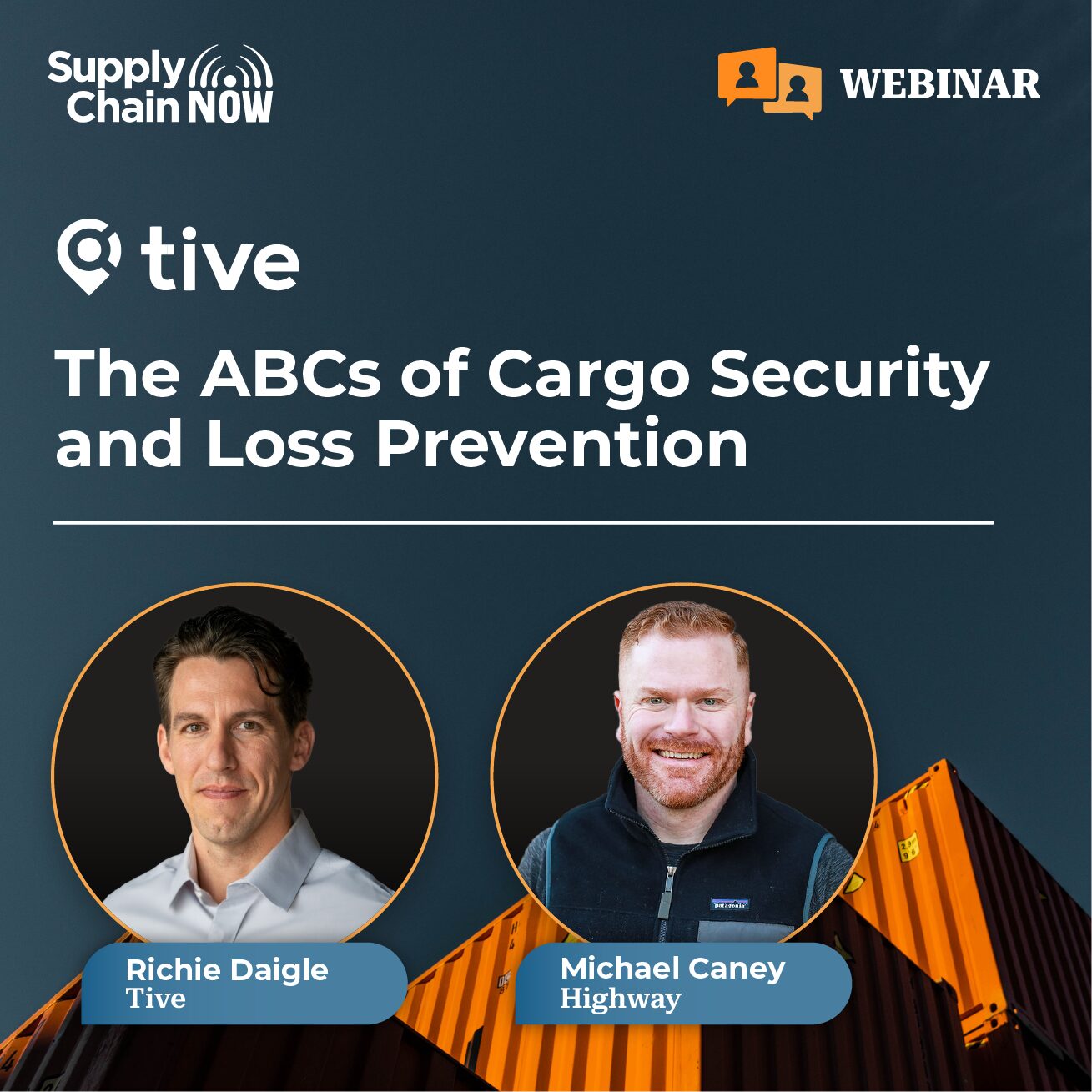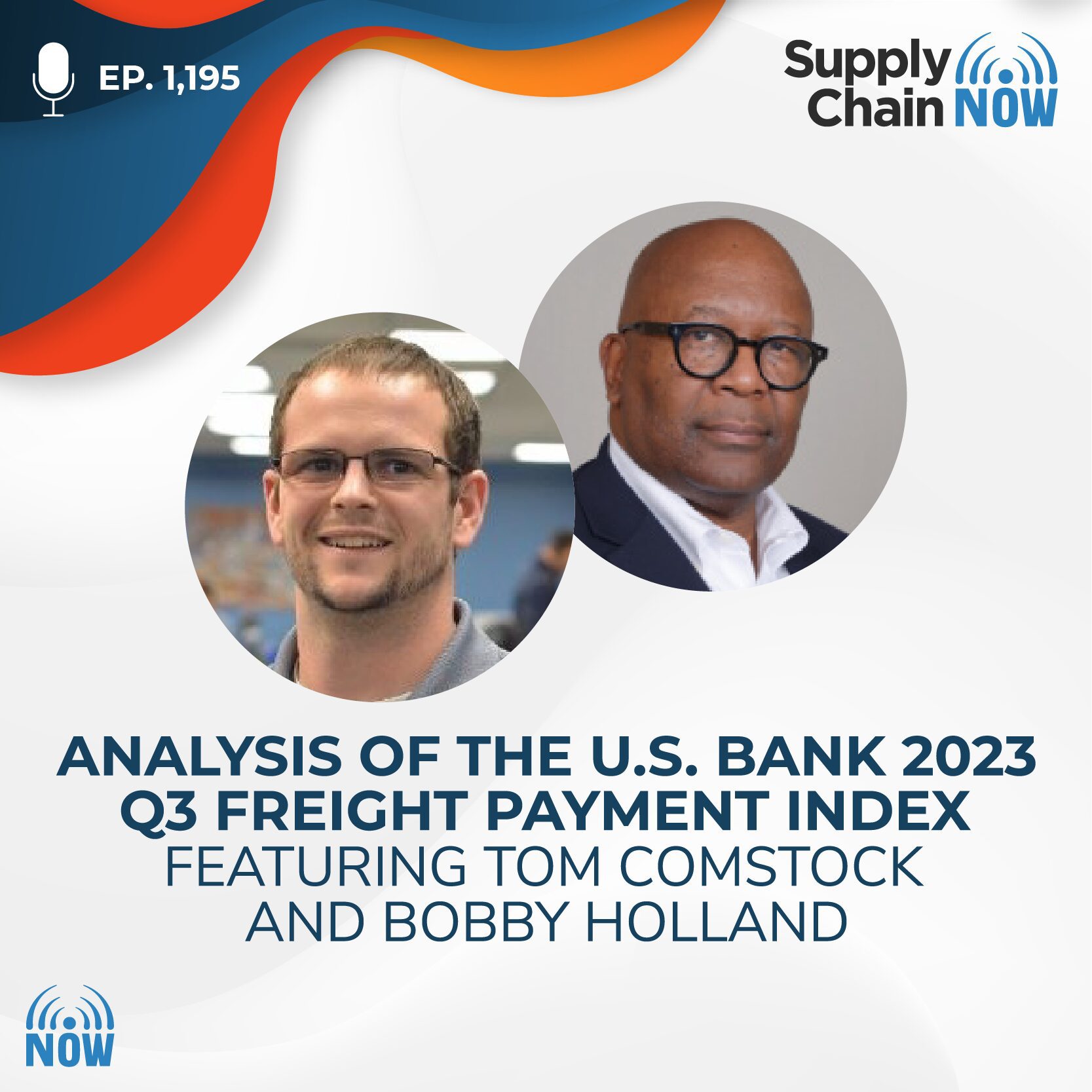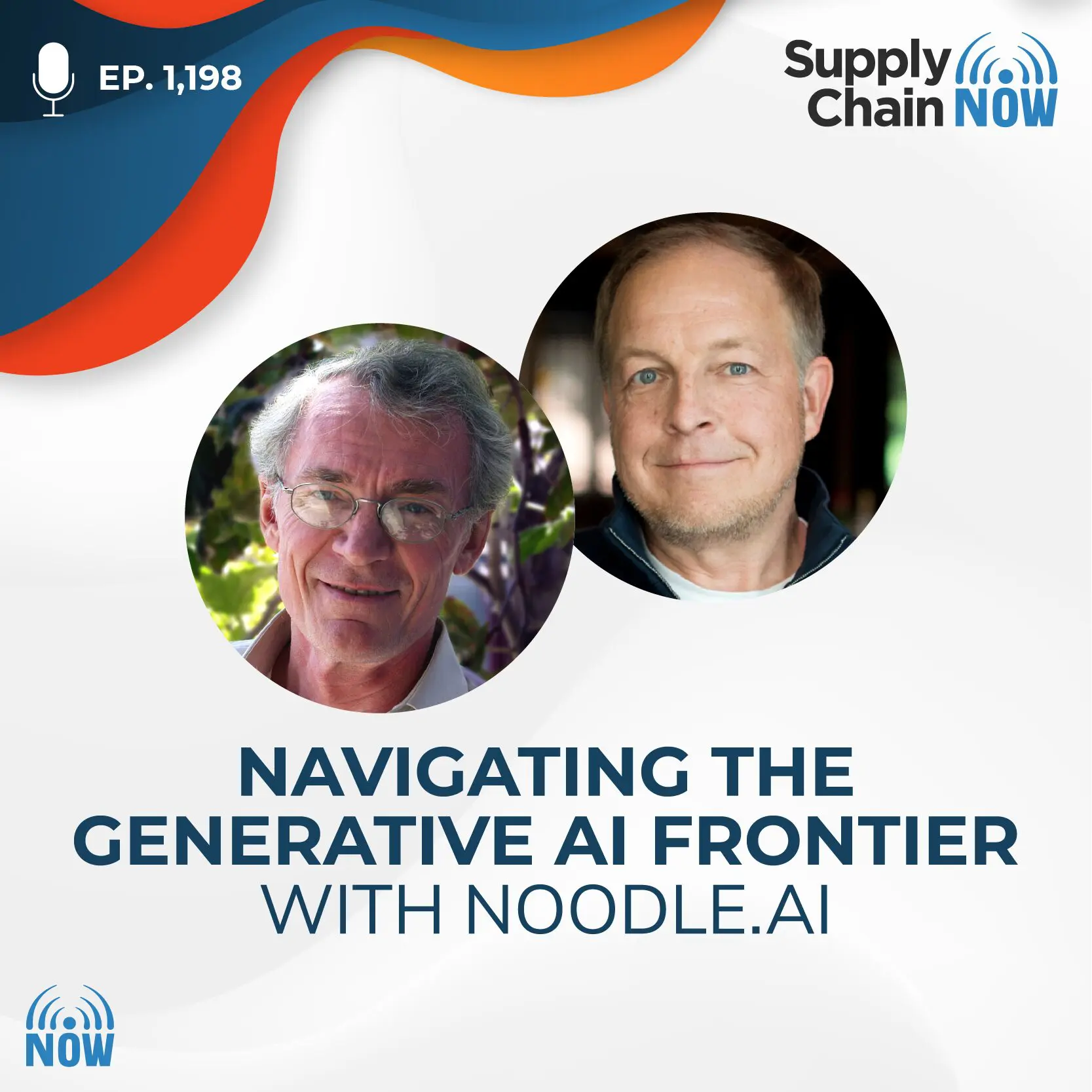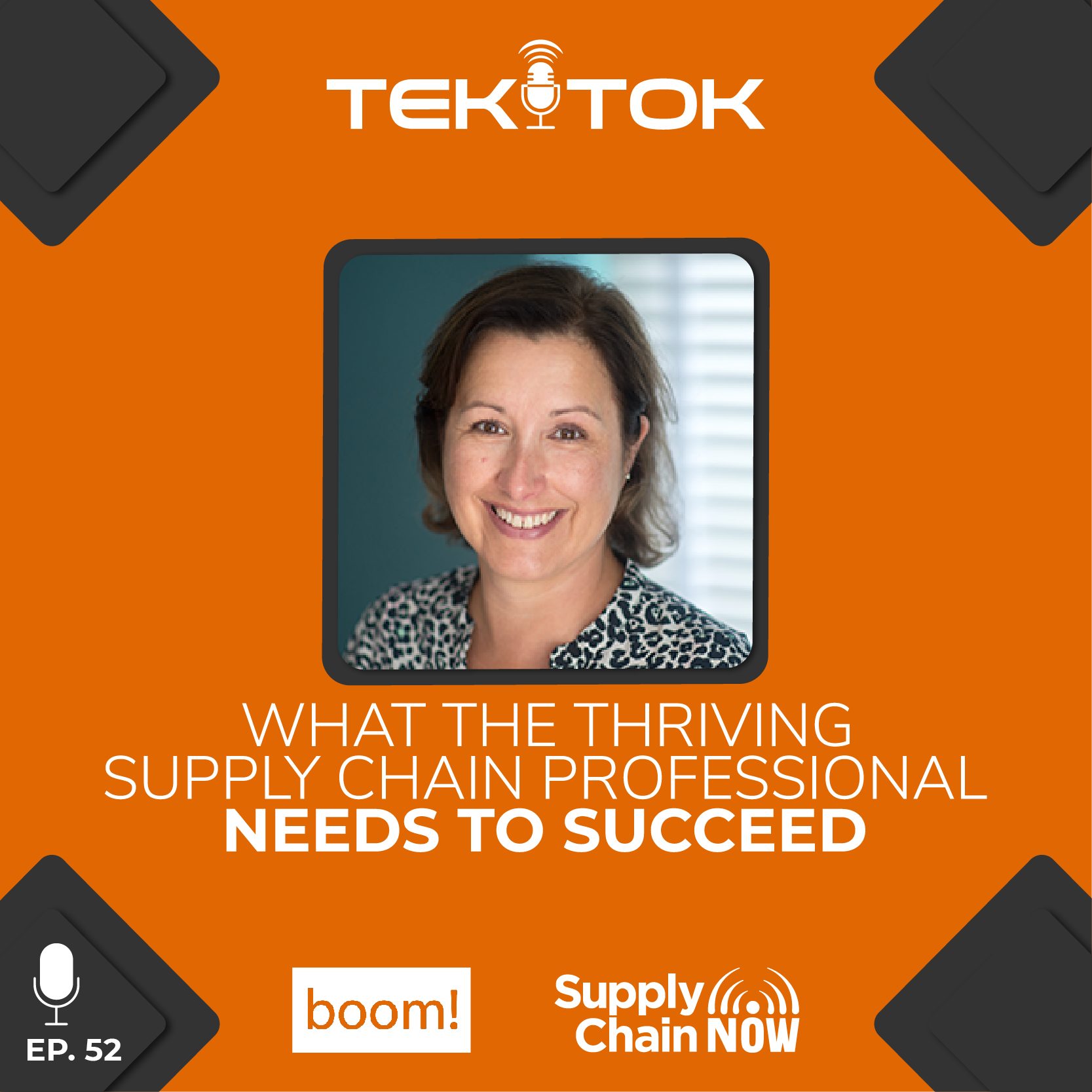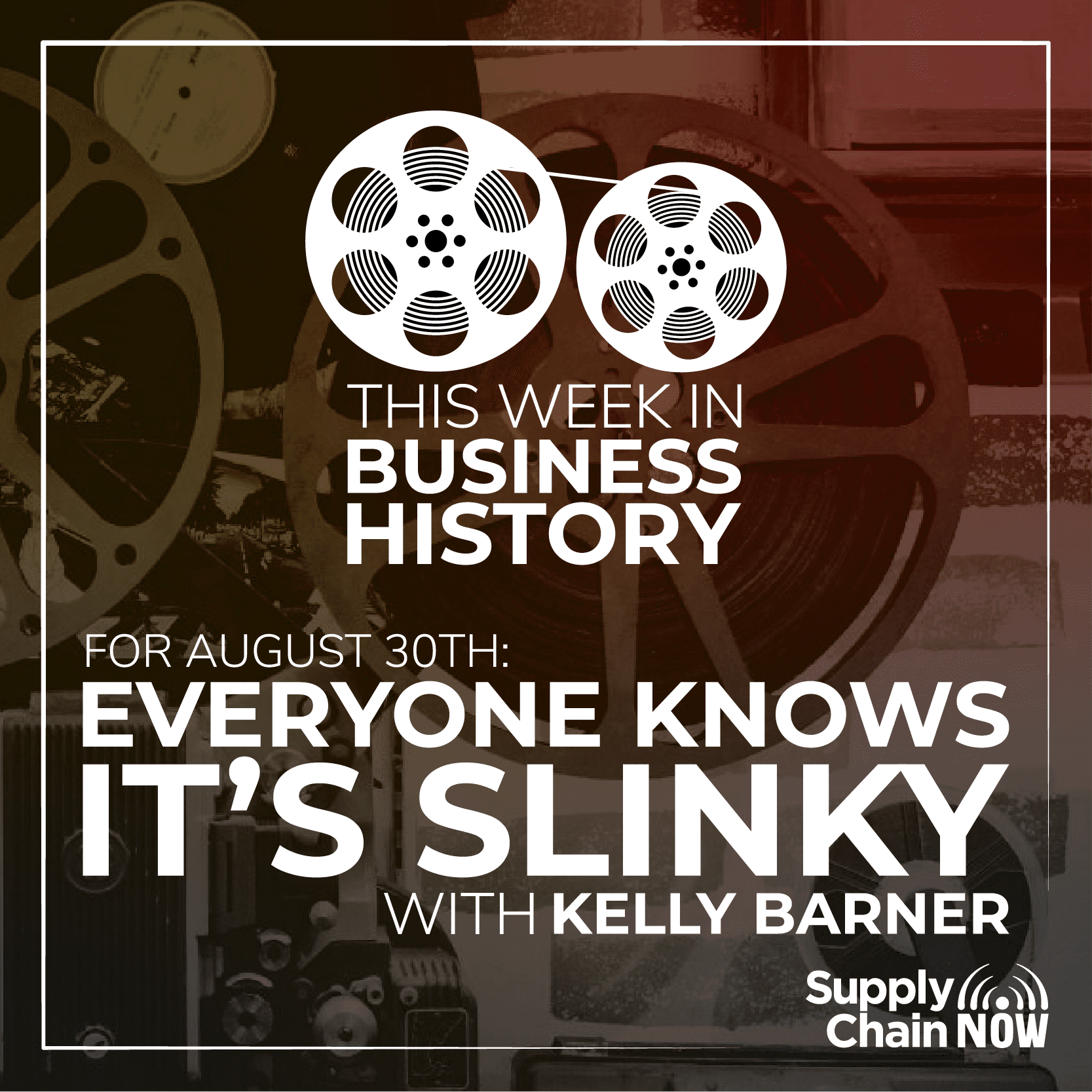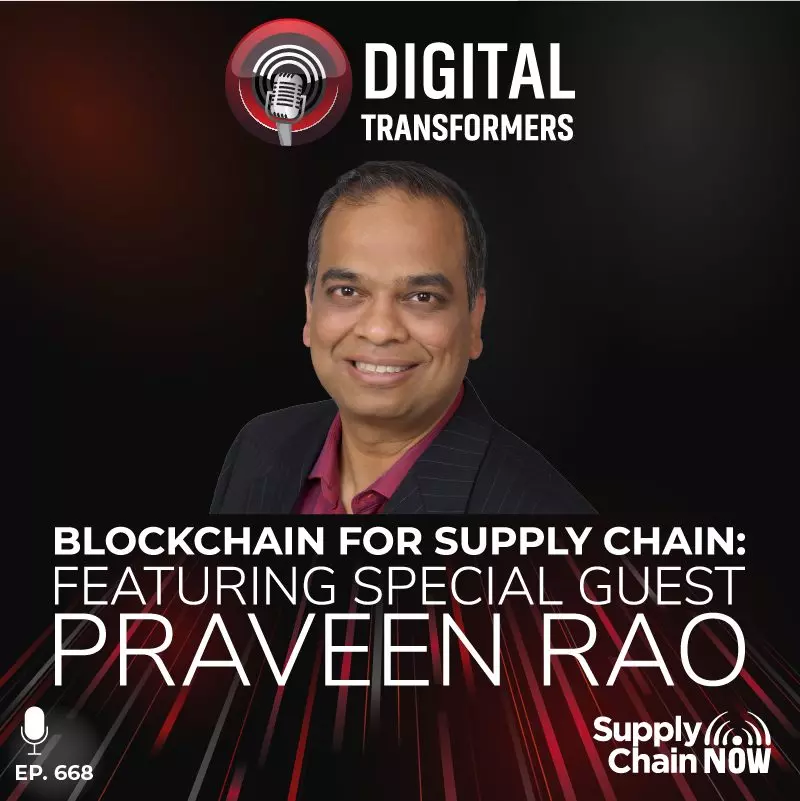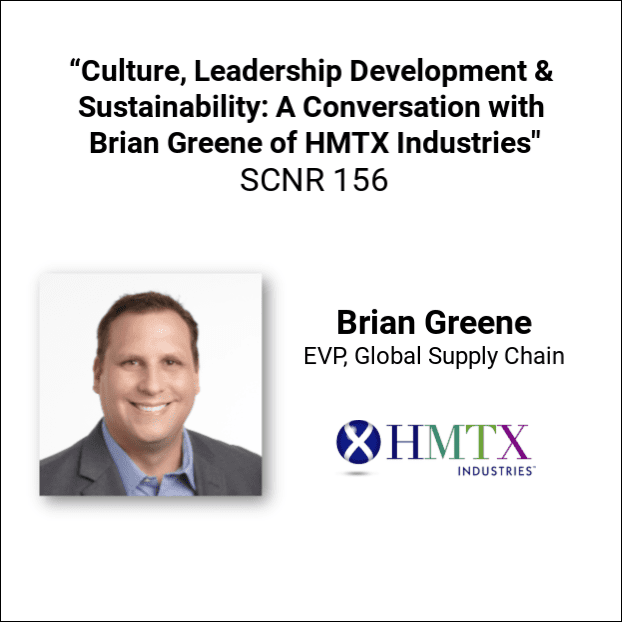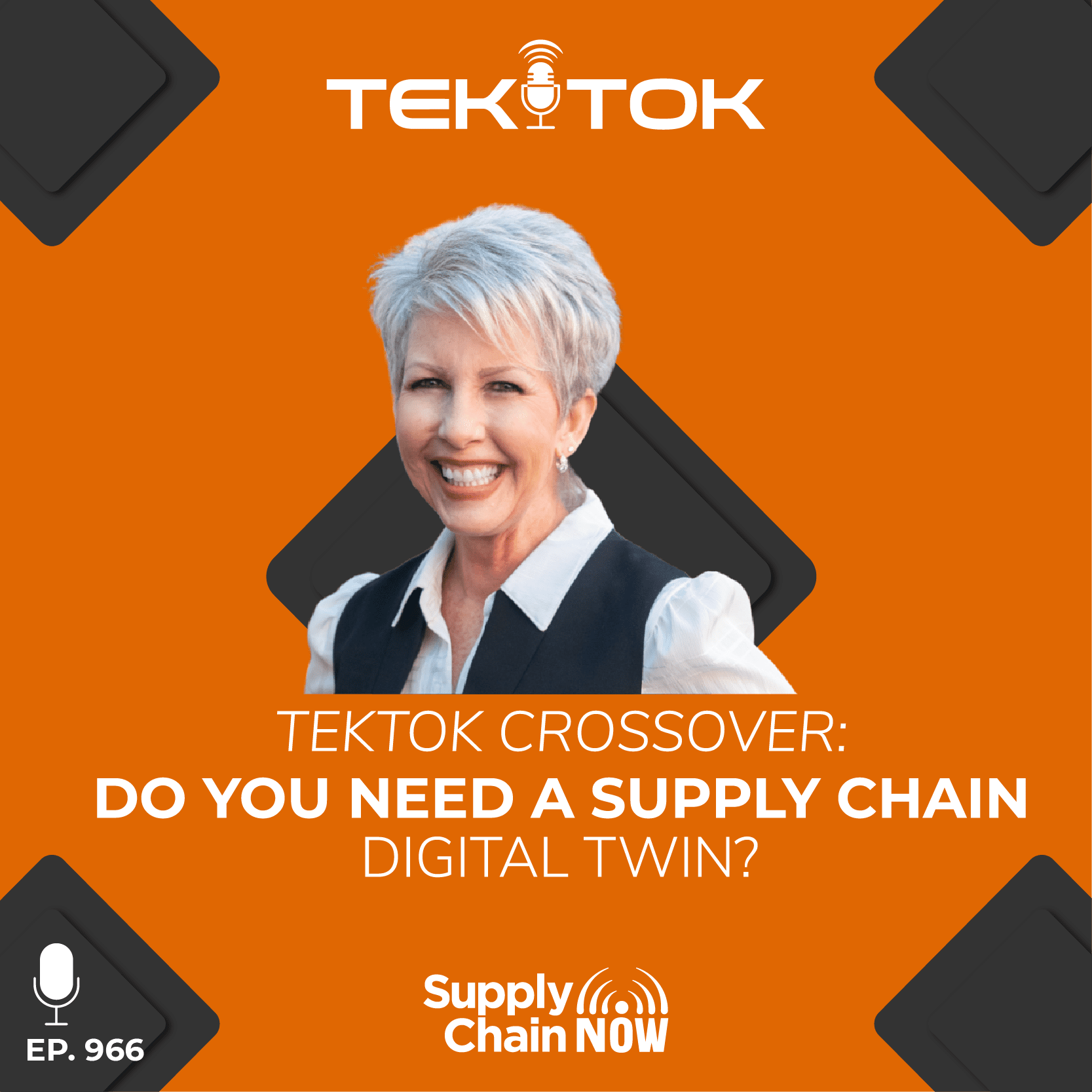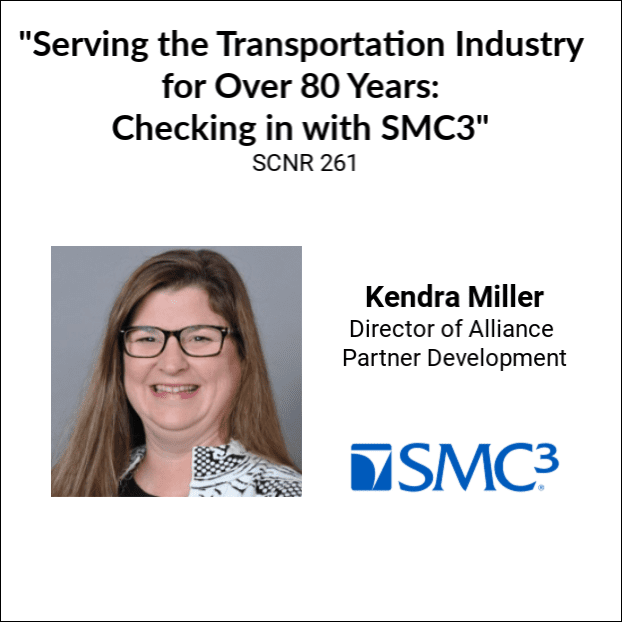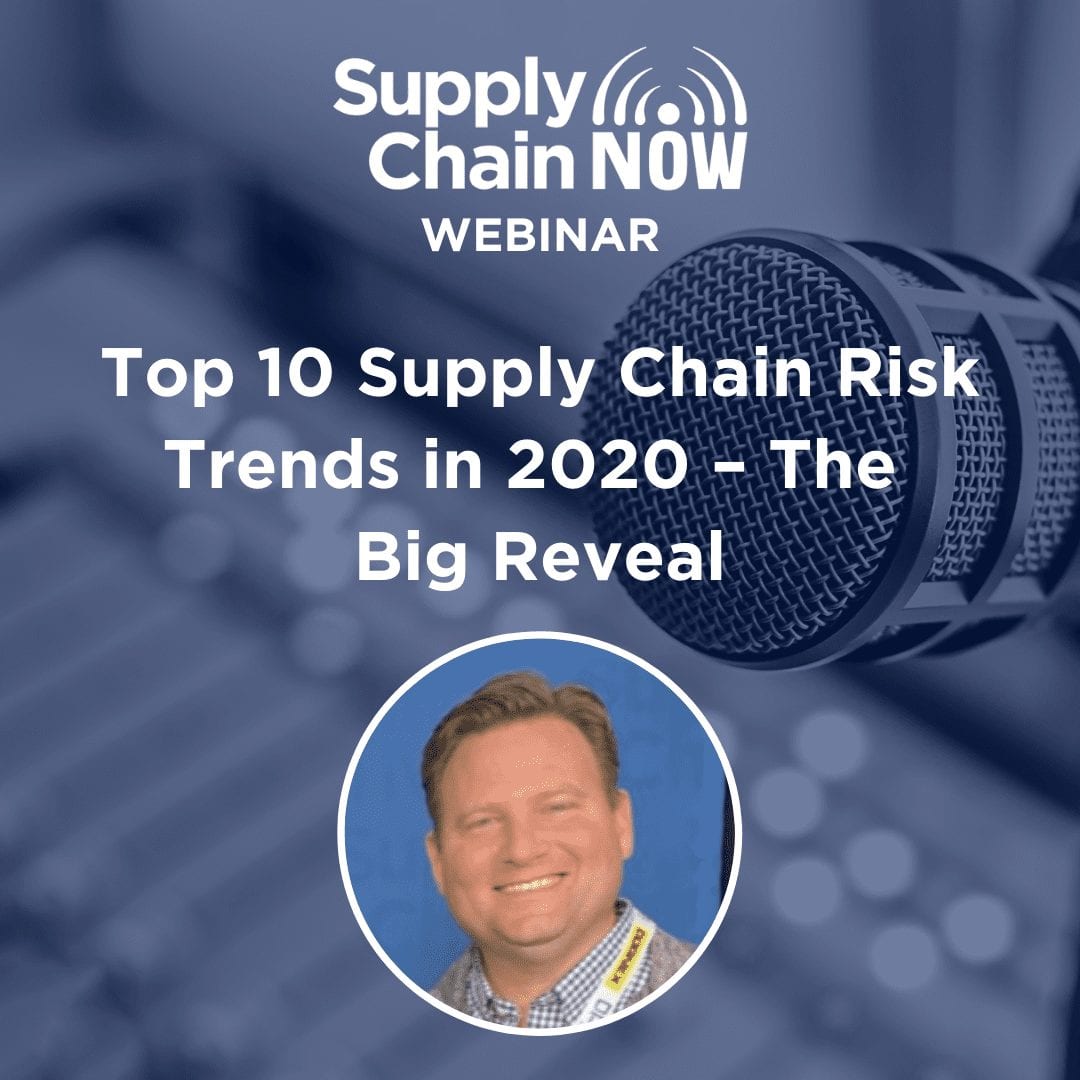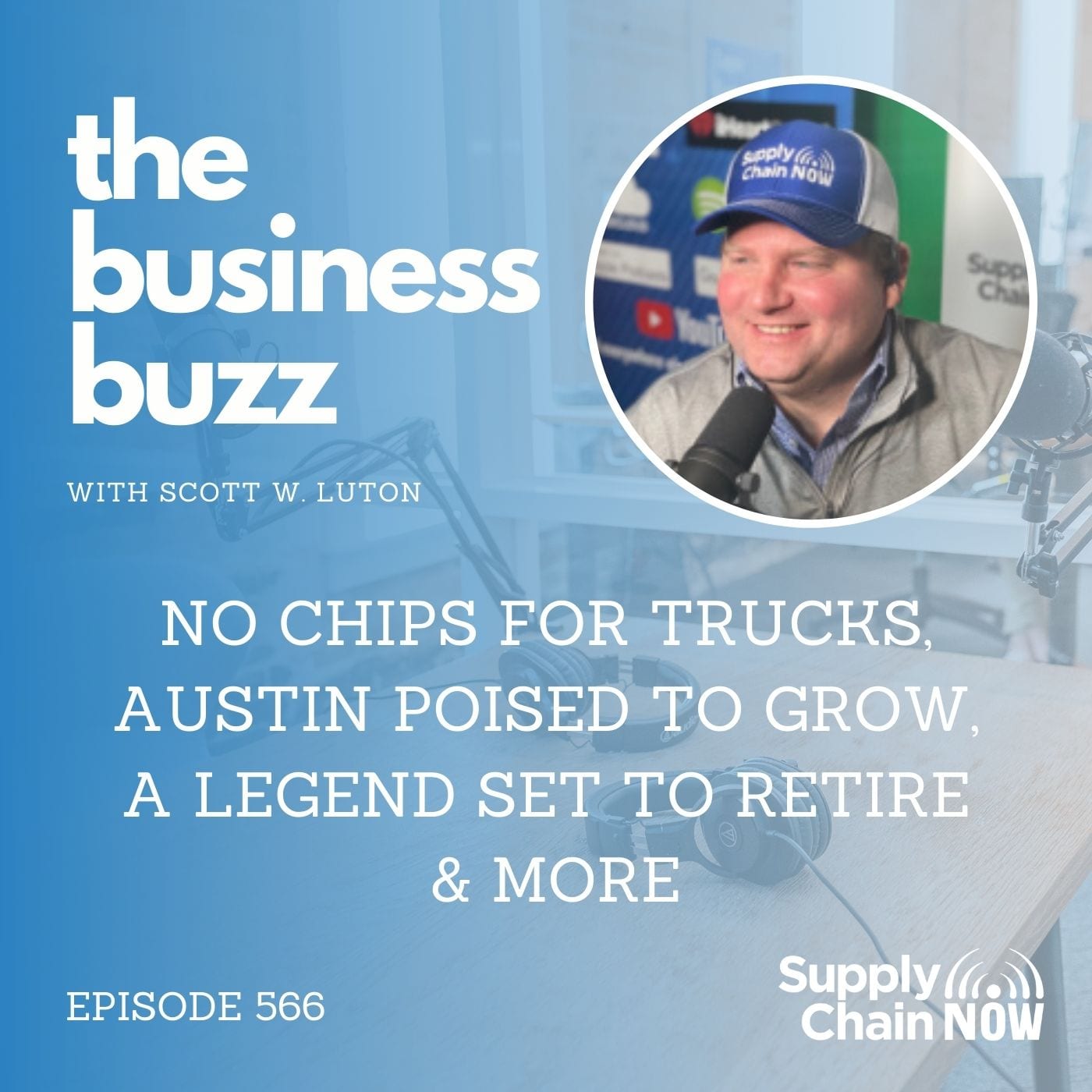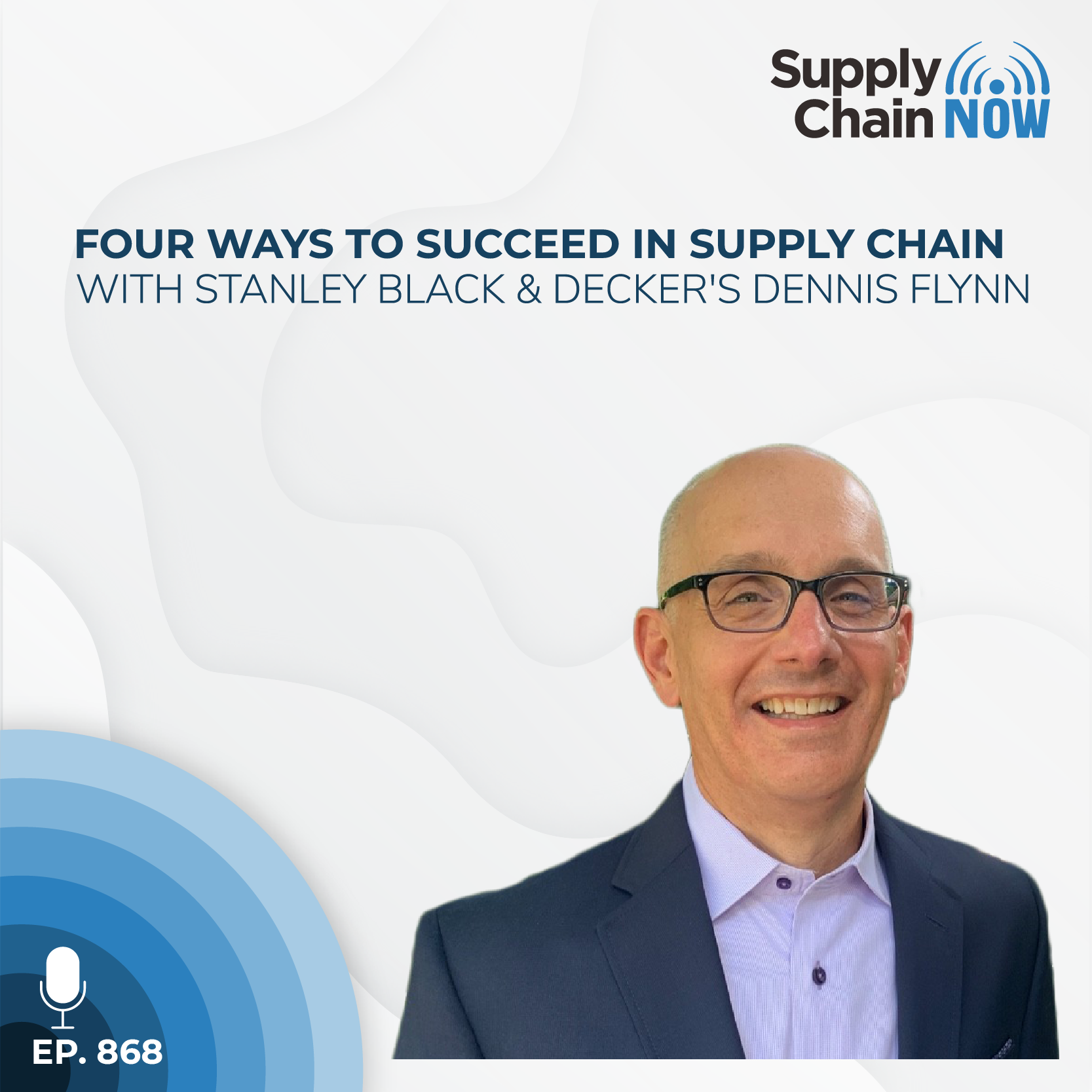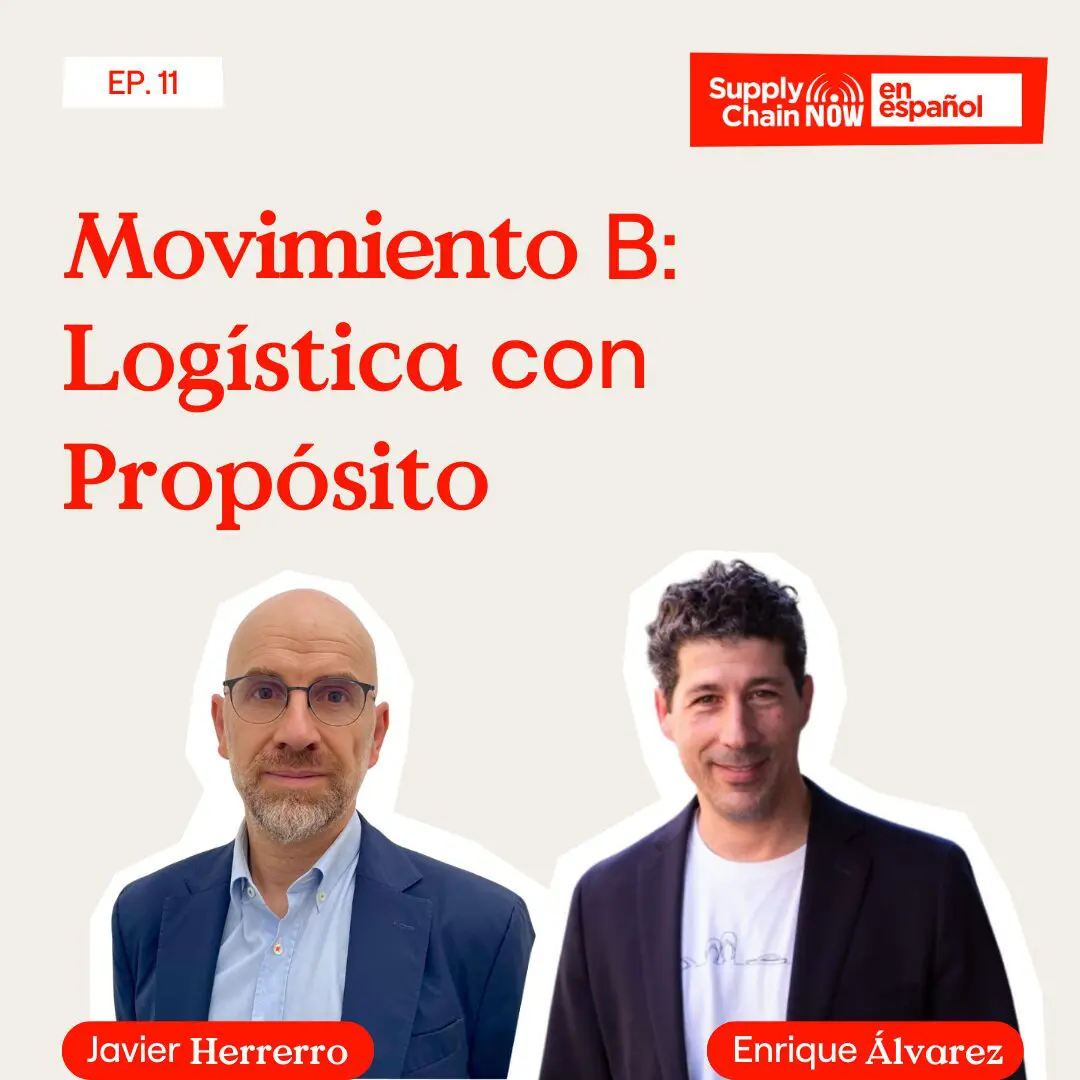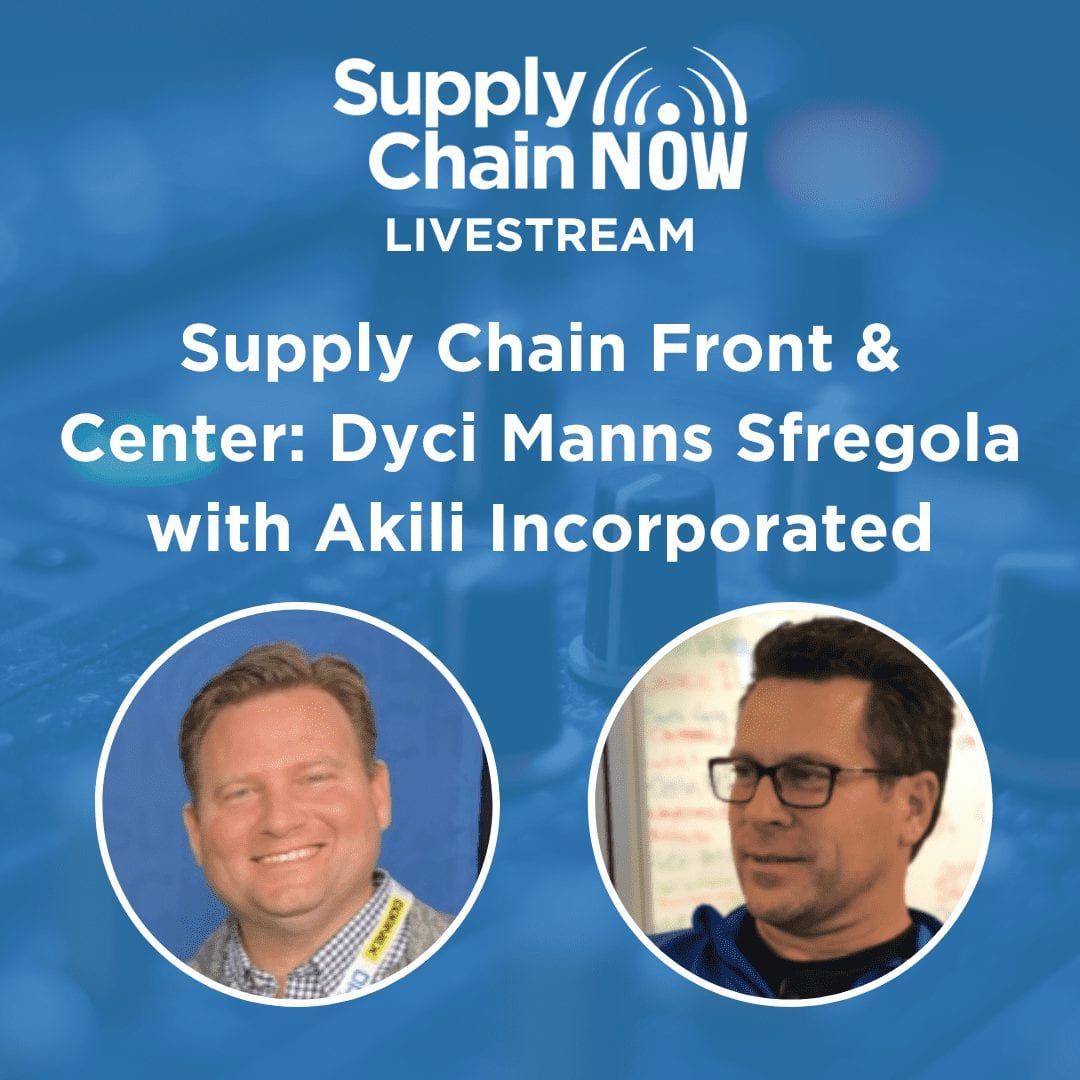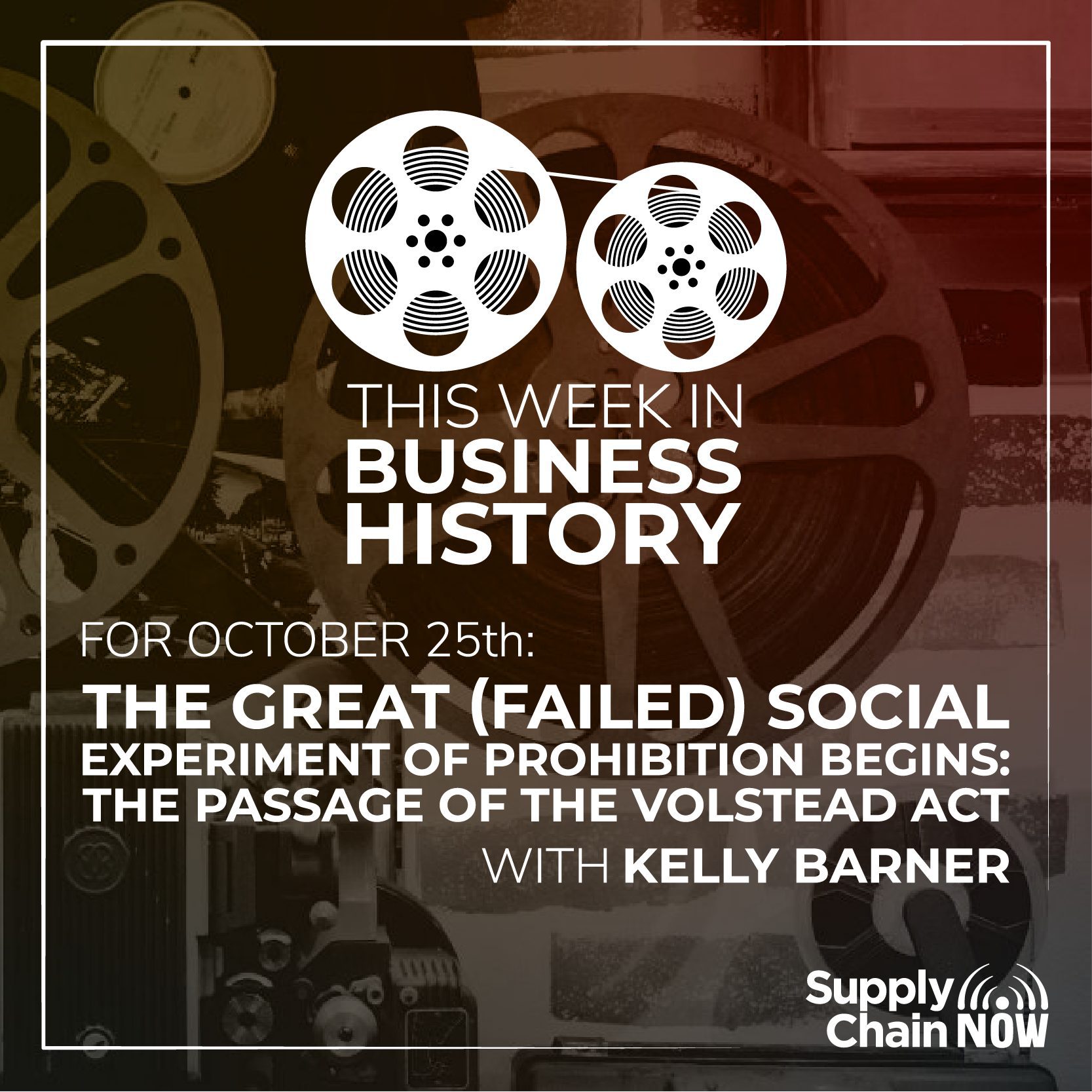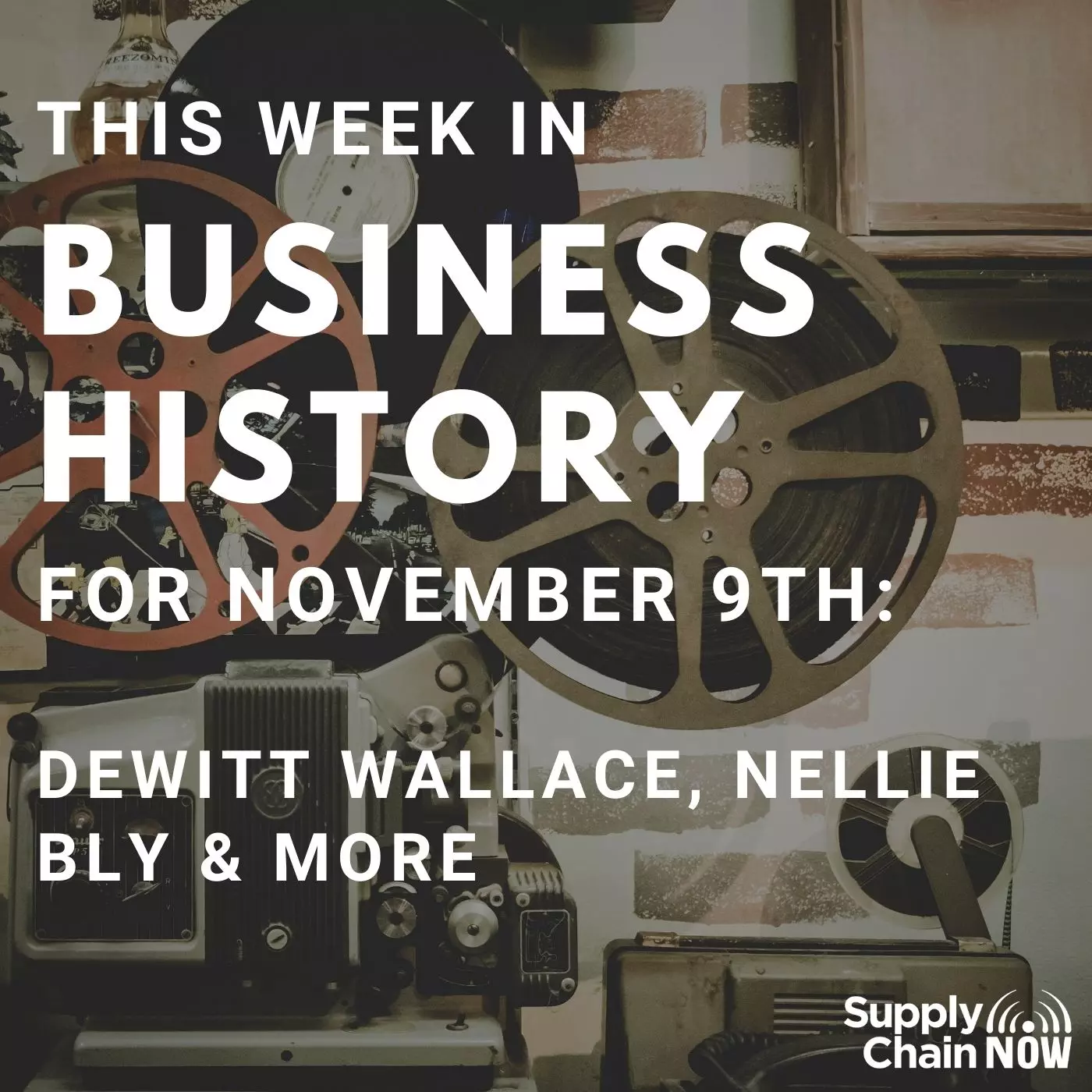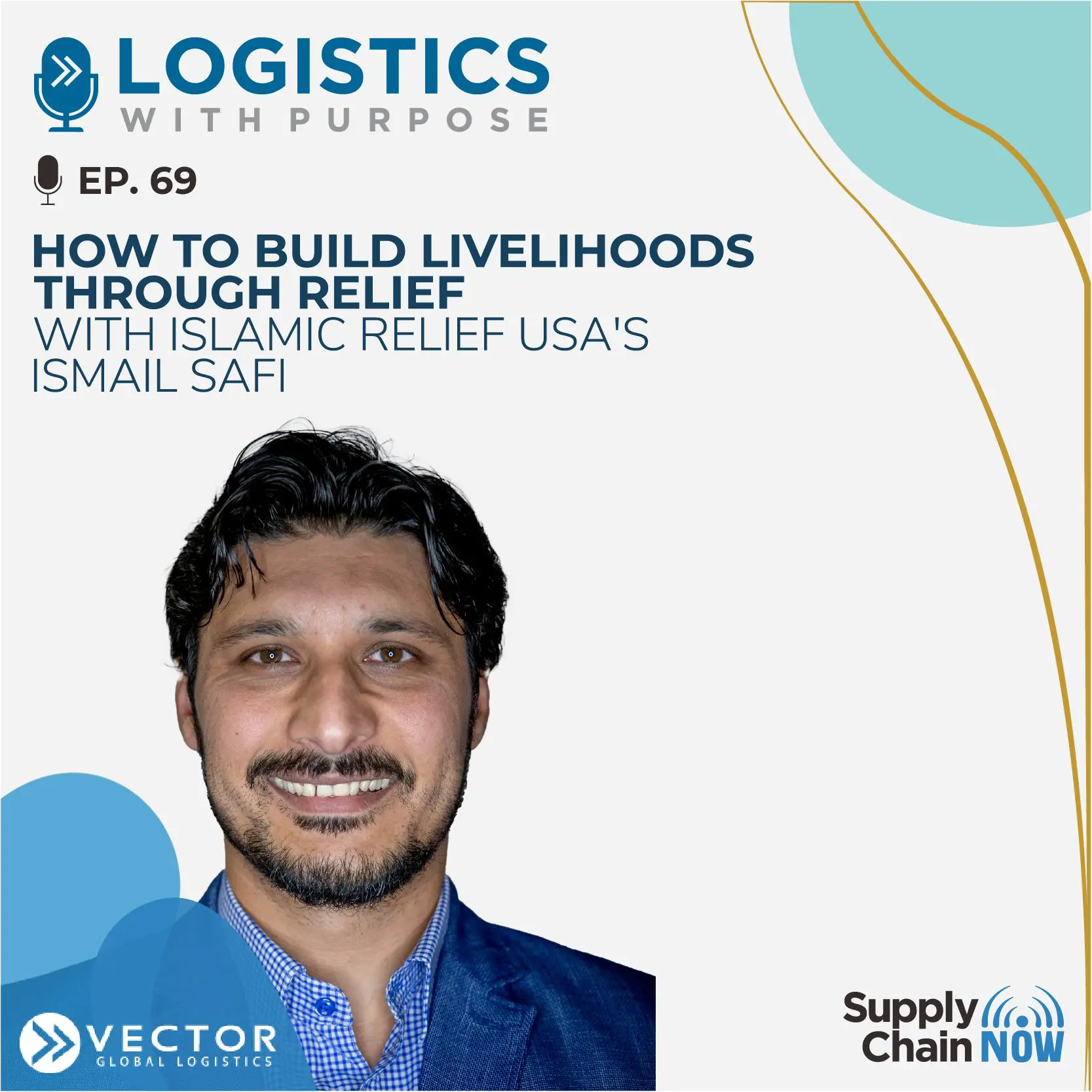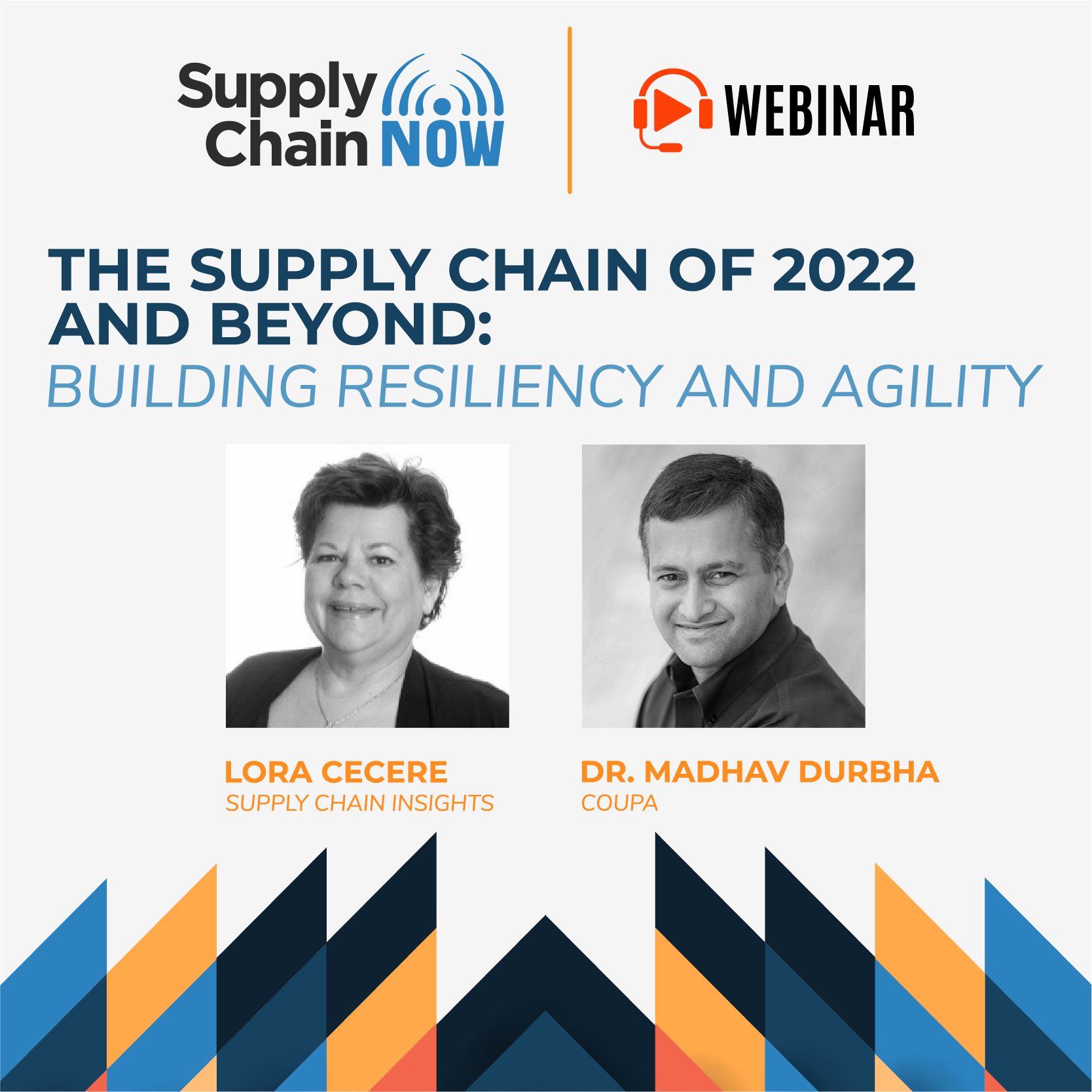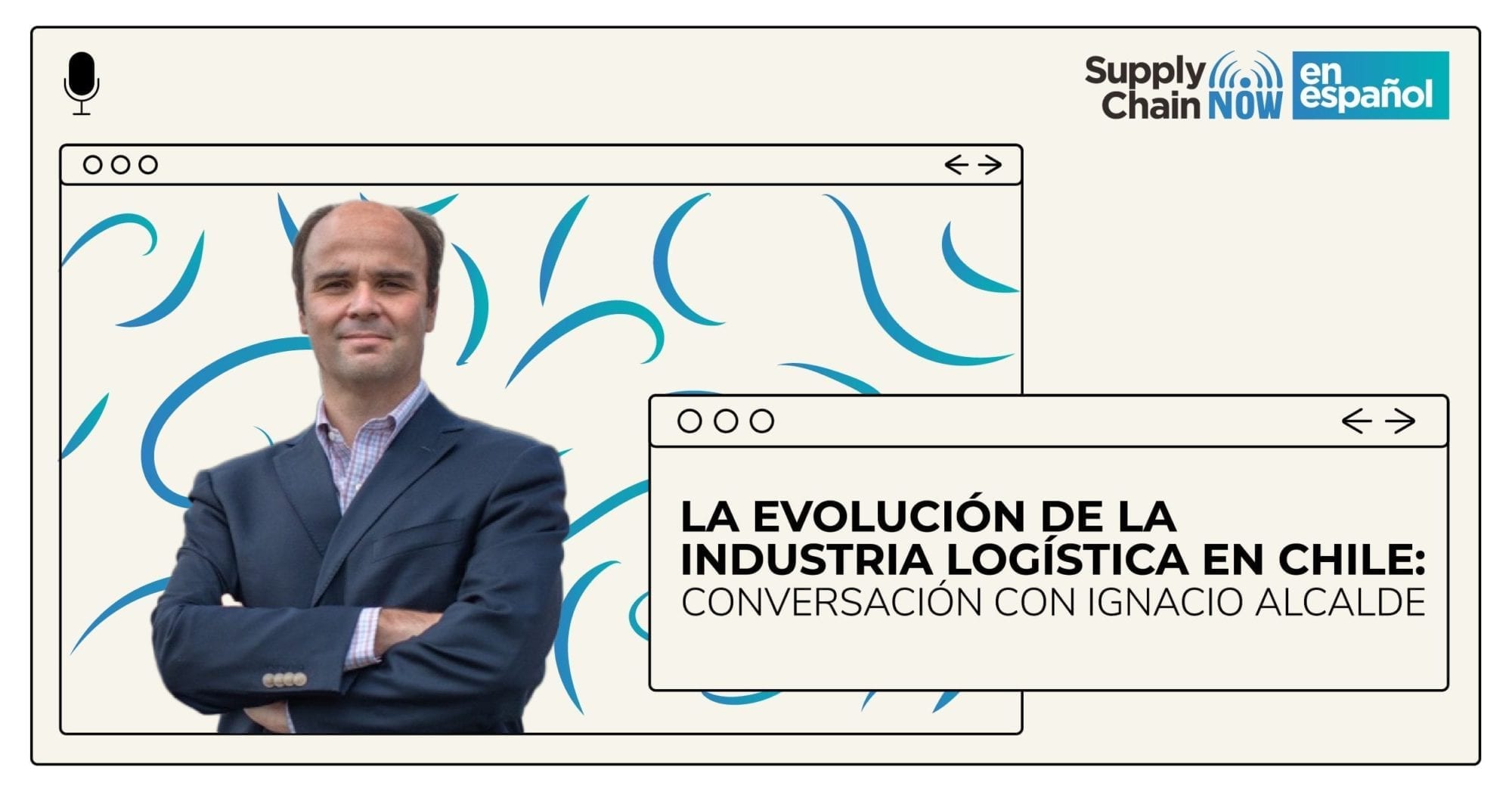
Resumen del Episodio
En este episodio de Supply Chain Now en español, los conductores Enrique y Jose Miguel dan la bienvenida al podcast a Ignacio Alcalde con TW Logistica.
Transcripción en Español
[00:00:38] Muy buenos días y bienvenidos a una nueva edición de Supli Cheyne Now en español el día de hoy tenemos un excelente invitado y yo tengo el gusto de compartir este estos momentos también con un buen amigo y Confit Trion nuevamente uno de los primeros episodios de Supply Chain en español. Una de las primeras personas que tenemos el honor de presentar y entrevistar en Latinoamérica y la primer persona que entrevistamos en Chile. Entonces va a ser seguramente un show muy especial y estamos muy contentos por tener la oportunidad de platicar con nuestro invitado. Conmigo, como les decía hoy, también este un anfitrión amigo mío, José Miguel. Cómo estás, José Miguel? Con buenos días.
[00:01:22] Bien, gracias, Enrique. Gracias por la introducción. Oye, encantado de participar desde estas primeras ediciones de Supply Chain Naw en español. Enrique me ofreció esta oportunidad. Yo tengo alguna relación con el mundo logístico a través de Vector, pero soy un profesor profesional e ingeniero civil de la Universidad Católica de Chile. Me saqué una empresa que envié en Wharton, que fue la escuela donde asistimos junto con con Enrique y encantado de participar y de entrevistar a nuestro nuestro primer invitado.
[00:02:00] Va a ser divertido si deja el invitado de hoy. Este se describe como un padre de familia, un ingeniero, una persona inquieta y bueno antes de dejar que se presente. Déjenme les recuerdo a todos que Supply Chain Now en español lo pueden accesar en cualquier plataforma en la que escuchen sus podcast. También estamos en nuestra página de Internet en Supli Cheyne Now PuntoCom y también nos pueden escuchar en nuestro canal de YouTube. Por favor, no se olviden de suscribirse, es totalmente gratis y así podrán acompañarnos en estas pláticas que para nosotros y espero para todos los que nos estén escuchando, serán muy interesantes. Y ahora sí, sin darle más vueltas. Déjenme les presento a Ignacio Alcalde. Ignacio es el gerente de la empresa de Doble Logística Ignacio. Qué gusto tenerte aquí! Bienvenido.
[00:02:55] Muchas gracias Enrique por la invitación. Hola Jose Miguel. La verdad que final, es un honor estar presente en esta entrevista que como bien decías Enrique, entiendo que es de las primeras entrevistas que se hacen en este formato en español, así que espero poder entregar información y participar de una conversación que se entretenía para los que están escuchando y poder aportar de alguna forma desde mi visión de lo que es la logística en Chile y la visión que tengo de la logística para el futuro
[00:03:26] Perfecto y no estoy seguro que sí. Nuevamente gracias por ser nuestro invitado de honor. Abrimos el programa en Chile con un invitado muy, muy bueno. Ignacio, cuéntanos antes de empezar con la parte logística y darte la oportunidad, platicarnos un poco más de lo que haces con tu doble y todo tu exitosa trayectoria profesional. Cuéntanos un poco de ti. Cómo? Cómo es Ignacio? Qué recuerdos tienes de ti creciendo? Cuéntanos un poco más de ti.
[00:03:57] Bueno, no dije lo que era la empresa toree logística antes de entrar a esa parte, digamos, pero es un operador logístico que estaba presente en varias categorías y la verdad es que lo que hacemos es general logística para múltiples empresas multinacionales. Después voy a entrar un poco más en el detalle. Yo estoy en esta empresa, se hace 11 años, pero antes para para responder tu pregunta. Bueno, yo soy un ingeniero igual que Jose Miguel. Compartimos hoy facultad en la Universidad Católica hace ya largos años, 20 y 25 años. Ah, pasa el tiempo muy rápido. Acaban de graduar los dos. Acaba de graduar a la gente. Fue una muy buena experiencia, una muy buena escuela. Encuentro yo. La Universidad Católica daba una visión bastante amplia del mundo y te genera herramientas para estar presente en varias industrias. Me parece que además de lo que te da una universidad, como no sé si la conoces, pero bueno, sea católica, una universidad importante dentro de Chile que te da muchas herramientas de conocer gente, abrir redes, etcétera.
[00:05:01] Conozco el equipo de fútbol nada más
[00:05:03] Aspirar a poner el mejor en Chile. Vano lleva número uno,
[00:05:09] Va de guay, llamada va número uno afectarÃn. Así es, eh? Acaba de salir de la Copa Sudamericana, lamentablemente, pero, pero bueno, vamos para el próximo año y a depender de estar en la universidad. Lo que yo hice también estudié algunos, algunas cosas de podría de posgrado y se me envía también a la Universidad Católica. Ahí siempre tengo un sueño frustrado de haber podido haber hecho un estudio afuera de Dígamos, aunque tuve una pasantía corta por la Universidad de Queens en Canadá, mientras estudiaba pregrado o un semestre. Fue una tremenda experiencia vivir en un país como Canadá, que es extraordinario en el invierno, además de que era una época con 25 grados bajo cero. También fue una experiencia súper rica que contribuyó a generar más herramientas en en construir el profesional que soy, digamos, con las PRO y los contra, digamos lo que eso significa.
[00:06:08] Ignacio, cuéntanos donde tú, donde creciste, tú eras de Santiago de Chile?
[00:06:12] Yo soy de Santiago de Chile. Todavía nací acá y pero viví hasta los 25 años en Santiago. Luego yo hice un cambio, me fue quien me fui a vivir fuera de Santiago. Tenía sin pena la inquietud de ver cómo era la vida más allá de la gran capital de 8 millones de personas, ver cómo era la vida afuera. Así que me fui a vivir a una ciudad chica que queda en el sur de Chile, que se llama Los Ángeles, igual que Los Ángeles, California, pero esto es Los Ángeles Bío-Bío, que es una ciudad evidentemente forestal. Y yo estuve ahí viviendo nueve años trabajando en la industria forestal, muy relacionado con Estados Unidos, porque lo que hacía era empresa donde trabajaba yo era exportar manufacturas de Estados Unidos, que son todas las partes y piezas de puertas, ventanas, etcétera, y se iban a las grandes empresas de Estados Unidos que hacían el producto final. Y también es portábamos astillas a Estados Unidos y Japón, básicamente para para producir celulosa. Y ahí tuve una experiencia tan rica de lo que es vivir en una ciudad más chica. Conocer gente, desarrollarse profesionalmente en una empresa de calidad, con una tremenda experiencia, la verdad que yo valoro mucho desde el punto de vista profesional y también en el punto de vista familiar, porque en Estados Unidos yo creo que están mucho más acostumbrados de lo que estamos aquí y aquí. Nosotros tenemos una cultura de no salir de la casa paterna hasta que termina la universidad y después seguir muy relacionado. Pero me parece que en Estados Unidos todo lo contrario. 18 años tú te vas y te cambias de ciudad y empiezan a producirse, se empiezan a ligar las familias. Eso no pasa acá. Sin embargo, haber tenido esta vivencia de 9 años en Los Ángeles me separo un poco, claro, no emocionalmente, pero sí la distancia de mi familia y me hizo conocer gente súper valiosa que de otra manera no habría conocido. Así que fue una tremenda Terenci.
[00:08:02] No me imagino ni sabe qué hace. También una experiencia que te da logrado luego seguir los siguientes pasos en tu trayectoria profesional. Algún de aquella época, cuando estabas pensando todavía en Santiago irte, no irte a Los Ángeles. Qué es lo que me imagino que fue una oportunidad buena e importante de trabajo. Pero qué es lo que más te motivó? Aparte de querer experimentar algo afuera de la ciudad que es qué es lo que ya estabas? A lo mejor un poco harto la ciudad o qué? Qué te motivó a salirte?
[00:08:32] Mira, lo que me motivó es que yo no quería seguir el patrón típico de seguir salir de la universidad, irme a una empresa grande y desarrollarme en esa empresa grande. Yo quería hacer algo diferente y bueno, lo que elegí de hecho no era una tremenda oportunidad. Lo que yo hice fue empezar a buscar trabajos en diferentes empresas, en diferentes partes de Chile, que cupiera con el requisito de estar lejos de Santiago y que fuera una empresa más bien chicas
[00:09:01] Japonesas, más en el amor a la aventura. Entonces lo que realmente era quererte salir de la ciudad,
[00:09:06] Probablemente siempre lo pensé como una aventura de un par de años, una cosa así. Yo en ese tiempo, saliendo de la universidad ya estaba no comprometido, pero estaba claro que me iba a casar con mi señora. Entonces esto era una aventura en conjunto. Siempre lo pensamos por un par de años como para conocer y después volver y aprender otras cosas. Pero fue una aventura que se alargó. Nueve años nacieron fuera de Santiago. Yo tengo cinco hijos, nacieron cuatro de mis cinco hijos en región, en regiones,
[00:09:36] En Los Ángeles, me imagino.
[00:09:38] Los Ángeles, sí, sí. Así que la evaluación de buscar algo nuevo se cumplió totalmente. Y generar un desarrollo a partir de esa experiencia también, digamos, todo turista, profesional, familiar, emocional, etcétera. Pues fue muy buena experiencia.
[00:09:55] De quién recuerdas de esa época? Algún mentor o alguien que te te ayudó sino a una lesión, a alguien del que a lo mejor aprendiste mucho en esos? Cuando todos nos graduamos, los primeros trabajos son muy importantes, sobretodo en la forma en la que aprendes.
[00:10:10] Yo trabajé en una empresa forestal que se llama Forestal Dirigente, una empresa que exporta, como ya dije, estos productos y ahí tuve la oportunidad de trabajar de la mano con el dueño. La empresa era una empresa más chica, uno tiene la posibilidad de estar con el, con el que ha generado. Estuvieron básicamente un emprendedor y yo aprendí harto, mucho de cómo se construyen empresas y cuáles son las buenas formas de construir empresa y cuáles son las cosas importantes que tienen que cuidar el equipo, los procedimientos, la visión de largo plazo, no fijarte solo en las cosas. Chicas, yo no sé si se es un mentor, pero aprendí mucho de él y creo que es una de las cosas que yo he tratado de ir siguiendo algunos de sus consejos para el futuro, digamos, no
[00:10:55] Homenajeó que es muy buena escuela, cierto? El tener la oportunidad de trabajar en una empresa más chica te da la oportunidad de conocer de todo un
[00:11:01] Poco, claro. Y lo otro que valoro mucho de él es que era un gran deportista, es un gran deportista o maratonista y yo traté de seguir los pasos de manera un poco tardía y me he metido en este tema del deporte fuertemente. Estos últimos tres años he corrido una maratón, he hecho algunas triatlones y también te da una visión distinta. Generar mejoras en el deporte.
[00:11:23] Así que podrías decir de eso porque un triatlón se requiere no sólo la fuerza física. Me imagino que qué tipo de características se requiere para alguien que le gusta ese tipo de deportes o cómo? Qué dice de alguien que como tú, que se mete a un triatlón?
[00:11:38] No sé mucho que dice, pero te puedo contar un poco la experiencia, eh? Yo la verdad es que no era una persona muy deportista, tenía otro peso a su tiempo atrás. En algún momento dije aquí hay que hacer un cambio. Y me pareció una madera entretenida y desafiante hacer algo que estuviera como bastante más allá de lo que yo pensaba que era posible. Así que un día me inscribí en una competencia triatlón, que es una competencia que se hace en una playa cerca de aquí de Santiago de Zapallar, en que el triatlón y un triatlón olímpico tú nadas 1500 metros, después haces bicicleta por 40 kilómetros y trotar 10 kilómetros. Todo eso. En un tiempo definido, lo
[00:12:18] Ya tenía cierta preparación o no dijiste me voy a meter y
[00:12:20] Luego no vas. Básicamente nada.
[00:12:23] Te apuntas y luego ya tienes que
[00:12:26] Al cual me apunté. Bueno, seis meses de anticipación, eh? El apuntarme en el fondo me generó una cierta obligación, claro. Y me puse a entrenar. Me puse a entrenar fuertemente las tres disciplinas durante esos seis meses y la verdad que fue una experiencia súper buena, porque primero tuve que ser perseverante y la perseverancia de un atributo que es importante, creo yo. A Cuando te obligas a ser perseverante, vas aprendiendo. También va generando el objetivo y el hecho de generar el objetivo y después lograr ese objetivo te genera una gran sensación de logro. Muy positiva. Más experiencia que la siguió repitiendo después lo he hecho ya cuatro o cinco veces. No es esa competencia, sino que otras y estaba apuntado a otras. En esta época quería ser el medio Ironman, que es el doble. Lo dije antes, pero no pude porque el Cheeky que tuvimos algunos problemas sociales que obligó a suspender esa competencia el año pasado y hoy día se volvió a suspender porque con la pandemia
[00:13:30] Sí ha sido definitivamente un año con varios retos en diferentes niveles y lo platicaremos en un momento más. Algo más, Ignacio, antes de pasar a tu carrera profesional, algo más que recuerdes que haya sido un momento para ti importante en tu vida? Algún momento en el que pivote hasta de un camino a otro o algo? Algo así que.
[00:13:53] Carretería Quiros pivote. Profesionales, digamos que los pivotes más personales, obviamente tienen que ver con el matrimonio y el nacimiento de los hijos. Ese tipo de situaciones que son tan especial, propios de profesional. Y yo diría que fue cuando he tomado las decisiones de cambio la que te decía antes de de irme fuera de Santiago a una empresa más chica en regiones en Chile. Y luego, cuando tomé la decisión de volverme a que no tenía ninguna necesidad de volverme como esa experiencia, como te dije, se había transformado en un proyecto de dos años a una experiencia de nueve. Yo estaba muy bien allá cuando con un buen desarrollo profesional. Pero también considera en algún minuto de que tenía que volver a la gran ciudad. Nada. Y no son decisiones fáciles porque no eran automáticas. Eso también fue un pivote. Un pivote que me permitió aprender de este mundo de la logística. Fue en ese minuto cuando me inserté en este mundo tan interesante, la logística hace ya once años.
[00:14:51] José Miguel, siquieres todo tuyo, digo yo. Llévanos. Sí, llegarás a través de la parte profesional. Y creo que Ignacio lo dejó muy bien planteado ahí,
[00:15:01] Muy bien encaminado. Se superinteresante Ignacio de El Tubo Todo tu ser, tu desarrollo, tu carrera cuentan un poco antes del cargo actual. Hoy día de Gerente General, cuáles fueron los roles en en digital y después en entre doble de logística de tu carrera que fuiste asumiendo.
[00:15:20] Si yo PHN en esta empresa forestal, como no me acuerdo cuál era el cargo, pero yo estaba a cargo de las operaciones de exportación Nang Archivo o jefe de operaciones o subgerente de operaciones, algo así, eh? Y como actúa muy de la mano del dueño, la verdad es que se produjo una coyuntura especial en que el tempranamente antes de los 30 años me dio la oportunidad de estar a cargo de la empresa y fui gerente general de la empresa forestal con una empresa pequeña, pero es una empresa que reportaba, o sea de 50 o 60 millones de dólares al año. A los tres años de estar ahí en esa empresa, pude tomar ese rol y en ese rol de responsabilidad pude aprender mucho. Y ahí estuve en el cargo de gerente general. Durante todos los años que tuve en esa empresa cambié de una empresa a otra, de la empresa forestal a la empresa industrial, pero estuve en ese cargo y cuando cambié para acabar Santiago y me vine aquí a Doble Logística Maina directamente como gerente general, yo gerente general en esta empresa durante once años ya tenía algunos puntos en común en el área forestal con el área logística.
[00:16:32] En ese minuto era más bien todo el tema del manejo de inventario, los procedimientos correctos, pero más allá de que los comunes en logística eran como las buenas prácticas que pude aprender en esa empresa que me permitió entrar a este mundo. Así que ese fue un error mudo. Ah, perdón. Desde ese minuto estaba a cargo en este mundo logístico que a mí me sorprenden o me ha cambiado, o que hace años atrás el mundo logístico era un mundo más bien de la bodega para adentro, a que lo manejaban personas que no tenían tanta visibilidad dentro de la compañía. Y hoy día la logística se ha transformado en una industria que está bastante en el top de lo que están viendo muchas empresas, pues hoy día la empresa gigante fijan la logística como una de las cosas prioritarias en su estrategia. Y hay empresas logísticas propiamente tal que se han desarrollado mucho en el caso de Amazon o imágenes en América Latina Mercado RYR. Así que un mundo super interesante.
[00:17:31] Oye, Ignacio, y algún bueno en la medida. Tú agarraste responsabilidades importante, temprana de manera temprana en tu carrera. Alguna decisión que te haya con posterioridad vista hacia atrás? Y dijo Te he dicho oye, cometió un error o que te hayas arrepentido de gama de una decisión importante que tuviste que no, no, no condujo quizás a la empresa. En la medida que uno agarra responsabilidad de pucha, las decisiones van siendo va teniendo más consecuencias de alguna manera, no?
[00:18:02] Claro. Varias. O sea, uno se equivoca. Los errores están y creo que si no, el hecho de hacer cosas nunca le va a chutar a todas. Pero si hay varios temas que habría hecho hoy día de una manera distinta. Recuerdo una en particular que me generó muchísimo estrés cuando estaba en la empresa forestal e nos invitaron a hacer una A-B, a entrar a una planta industrial en Montevideo, en Uruguay de Astillados, porque aquí hacíamos eso. Ok. Pescamos desde el desafío. Yo me acuerdo que fui a Oregon, Estados Unidos, compramos a las máquinas, las instalamos en Montevideo y siempre cuando uno compra una máquina dice bueno, esto te dicen que produce 100. Yo voy a hacerme planificación que produce 50 na. Llegamos y instalamos con ese compromiso, pero no dejábamos sacar más de 20 a la máquina y esto generaba un estrés gigante, un problema enorme. Estos eran producción de astillas que tenían que llegar a llenar un buque, un buque a granel gigante de 26000 toneladas que se iba a Japón y si no llegaba con la producción, el buque se iría. Ese es un problema logístico. Se ya no lleno con un temur, con una multa gigante. Entonces todo ese pedido de haber planificado esto, quizás no con todas las válvulas necesarias por tiempo, por capacidad de producción. Fue un período que yo digo habría que planificarlo de otra manera, quizá poniendo más gente que se va más de la máquina particular diciéndole a la gente de Estados Unidos niñera, asesorando hartos aprendizajes que luego. He tratado de incrementar en otro proyecto de igual ocurren siempre problemas, pero uno va aprendiendo de esas experiencias para que no se repitan esos errores.
[00:19:53] Oye, i? I n i logi en logística, digamos en. En tu rol actual. Cómo? Cómo has visto la evolución de la industria logística en en los últimos diez años? La verdad es que, como tú dices, con la llegada la masificación de internet y de. Y del. Digamos de que tenemos hoy día un computador aquí en la mano, etcétera. Hoy día la logística se vuelve un un tema muy distinto. Cómo ha visto a la industria evolucionar en Chile y quizás, quizá en el mundo en estos últimos 10 años?
[00:20:31] Bueno, yo un cuento que ha tenido un cambio sustancial a la logísticamente es para reducirlo a alguna cosa sencilla. Era visto, creo yo, como simplemente una operación en que movía palet o cajas, y la verdad es que no era más complicado que eso. Era la visión que tenía mucha gente. Yo creo que nunca ha sido tan sencillo como eso, pero hoy día yo creo que esa visión ha ido mutando hoy, generando mucho más demanda profesional en el mundo logístico. Por qué? Porque ya todas las empresas se han dado cuenta de que no es tan sencillo como mover cajas, sino que tú tienes que mover unidades, tienes que ser respetuoso de los stocks, tienes que llegar a tiempo con los productos hasta el cliente final. Tienes que cumplir con llegar no solo a tiempo, sino que llegar con las unidades que te pidieron, o sea, en forma y a tiempo. Y tienes que ser capaz de desarrollar de manera simultánea todos los canales que significa la logística de gama. Yo estoy hablando más bien de un punto logístico interno, digamos, de distribución dentro de un país. Esto yo creo que la mesa aplica a logística internacional. Digamos que vas con exportaciones hacia hacia todos lados, pero hoy día el gran desafío, creo yo, desde el punto de vista logístico, es tener empresas que sean capaces. De cumplir con todos los canales, es decir, llegar a las industrias, llegar a los canales tradicionales que sondaje empresas, los locales más chicos que que venden estos productos de manera más individual. El canal de retail, que es un canal en sí en Chile, un canal extremadamente exigente en que te piden una serie de requisitos para entrar a su centro de distribución de una manera adecuada.
[00:22:17] Me imagino siendo Estados Unidos así, pero me imagino que también tienen una cierta restricción en lo que es retail propiamente tal. Y el canal e-commerce hoy día, en que es un canal súper demandado de todas las empresas de logística, deben estar mirando el desarrollo de ese canal de manera muy exhaustiva y generando inversiones para poder cumplir con lo que todos los clientes pienso van a van a Multares. Sellado el perfil de los clientes que tenemos nosotros, tal vez un poco de la compañía, pero son perfiles de empresa, básicamente multinacionales que están instaladas en Chile y que le digan se tienen la decisión de dedicarse a su core y tercerizar la logística ya. Esas son empresas que en general habían tomado productos y lo llevan a un consignatario que vemos en tu institución. Hoy día tienen un desafío nuevo de no solo llegar al cliente, que es un industrial o un ritual, sino que tienen que llegar a tu casa. Eso es un cambio logístico enorme, enorme. Entonces, y no está tan resuelto hoy día, lo que está más resuelto son más bien los seres chicos que tienen que llevar con sus productos y con su producto hasta el cliente final. Pero las grandes empresas hoy hay un desafío que tiene que resolverse y ahí los operadores logísticos creo que tenemos un rol fundamental para implementar esta multicanal u OVNI Canadian, que se le llama en muchas partes de manera exitosa. Tiene todo tipo de complejidades, complejidades física, complejidad sistémica, complejidades de personas y talento, etcétera. Es un mundo realmente fascinante, muy entretenido.
[00:23:59] Oye, Ignacio, ya que ya que tocaste el tema de tu empresa, hablemos un poco más de más de ella, más de Pedrola, de logística, eh? Cuestan un poco, eh? Qué hace? Qué hace la empresa y cuál es el problema que quiere resolver? Cuál es el fundamento?
[00:24:15] Si algo he mencionado, nosotros somos un operador logístico. Básicamente lo que hacemos es que traemos toda la carga de nuestros clientes a nuestros centros de distribución. Tenemos cuatro centros de distribución y los almacenamos. Y una vez que está almacenado. Luego despachamos a estos productos con el detalle que requiere el cliente, digamos a los diferentes canales que he comentado recién. Digamos retail y tradicional. Industrial. E covers y el despacho en medio del despacho y almacenaje. Hay una serie de servicios que también entregamos como valor agregado el etiquetado de los productos o generamos packs A para que sean dispuestos en la góndola del supermercado tal cual como lo va a comprar el cliente. Tu junta con un producto, con otro pueblo, te ponen una etiqueta y sale tal cual a la góndola. Entonces la verdad es que hacemos un servicio bastante integral para las que se requieren dentro de un país y damos este servicio también en varias industrias, digamos. Y hablé de los canales, pero tenemos que abordar la industria de los productos peligrosos. Tenemos nosotros bodegas especializadas para productos peligrosos, que son una infraestructura especial que es fruto peligroso. Bueno, imaginemos que son productos así como explosivos o ese tipo de cosas. Son productos que todos nosotros podemos tener en las bodegas de nuestra casa, porque son pinturas, cloro, spray, ese tipo de cosa que en volúmenes importantes generan un cierto riesgo y necesitan una infrastructure especial y también un tratamiento especial. También estamos presentes en la industria farmacéutica, en la industria cosmética, en la industria textil. Tenemos algo de alimentos y esto acusado con otras otras categorías de industria, como es el consumo masivo, cuidado, el hogar, etcétera. Eso más o menos como Magy, más globalmente lo que hacemos, José Miguel.
[00:26:15] Huella Ignacio y cuentan un poco de tu cargo, de tu día. Cuéntanos que cuál es un día normal de Ignacio Alcalde sobre su trabajo.
[00:26:26] Mira, la verdad es que yo creo que no tengo un día tipo porque son todos los días bastante distintos. Pero eh. Yo diría más bien de las cosas que que me tienen preocupado en el día a día u ocupado. Básicamente diría que son uno que la operación esté bien, digamos. Nosotros nos debemos a nuestros clientes y si fallamos en un despacho a nuestro cliente, tenemos un problema. Entonces la operación tiene que andar perfectamente la logística. Excepto que no existe el 100 por ciento. Siempre hay algo que se cae. Pero bueno. Pero hay que tratar de que este bolo más arribita y lo más cerca del 100 por ciento. Entonces para eso me interesa mucho ver lo que está sucediendo a través de reportes diarios que me llegan. Estoy en permanente contacto con el área de operaciones que me va informando de cualquier desvío como para poder ayudar a subsanar Michener. Me gusta mucho estar en la bodega Gann e ir a la bodega a conversar con la gente, ver que todo esté funcionando bien, que te limpio, que esté funcionando de manera segura, etcétera. No tengo el tiempo pa hacer eso todos los días, pero pero hay que hacerlo con cierta frecuencia, porque es importante generar también un vínculo con las personas súper importante. También me preocupa mucho el tema, como ya dije, comercial, pero de un punto de vista más estratégico en el sentido de. Nosotros somos la empresa en crecimiento, sigue todo el tema de captación de clientes es súper importante a estar viendo permanentemente cómo podemos ir aumentando nuestra cartera de clientes.
[00:27:55] Que logística es un proceso complejo que tomar un cliente hace que venga toda su carga a la bodega que cambia su forma de distribuir. Son procesos que duran un año, o sea, desde que un cliente decide tercerizar o decide cambiar superador logístico hace la licitación invitar o oferente. Luego hace una adjudicación y luego se genera el cambio. Son procesos de un año, entonces son son ventas técnicas muy largas y requieren mucha atención y queriendo una tasa de adjudicación más bien bajas. Porque haya esta competencia, entonces requiere mucho esfuerzo e atención. Y a veces la recompensa no es tan buena. Ese es el Amenes. Es una preocupación permanente desde el punto de vista de la compañía. Y luego están los temas más estratégicos de largo plazo, que yo creo que hoy en día tienen que estar muy presentes en la logística, que como la tecnología es un elemento fundamental dentro de esta industria y como podemos ir incorporando cada vez más tecnología. Ayer, desafío criollo para los operadores logístico, más que incorporar y reaccionar frente a una necesidad del mercado, es como tú puedes ir navegando junto con el mercado e ir implementando la tecnología que se requiere sin que eso signifique una un dolor, digamos. Ese es un tremendo desafío que yo creo que la industria logística, al menos aquí en Chile, lo está empezando a vivenciar con mayor impacto, sobre todo a partir de la pandemia hacia una de las consecuencias de la pandemia con el desarrollo de canali comerciales.
[00:29:26] 80 por ciento tecnología, 20 por ciento infraestructura, si uno tuviera mencionarlo de esa manera. Luego están todos los temas también en la línea 2 estratégico otoГo que tiene que ver con sustentabilidad. La logística tiene que tener sustentabilidad. Debuto vista de de que tú no puedes tener un impacto en el medio ambiente y tienes que tener operaciones seguras. Tienes que tener a tus colaboradores en un ambiente que sea realmente seguro, que no les genere ningún daño. Eso tiene que estar dada también en los temas de eso y eso tiene que estar como certificación, pienso yo. Por eso nosotros somos una empresa certificada ISO 9000 y estamos en proceso de certificación catorce mil cuarenta y cinco minutos. Eso es tremendamente importante. Y luego una tercera variable logística que me preocupa, que no es para todos los días, pero son de las cosas importante que todo el tema relativo con la innovación, que tiene una relación con la tecnología, pero el desafío de generar sistemas innovadores dentro de la compañía con con el talento necesario es muy importante a la luz de de la velocidad que está teniendo la logística hoy día. Si no eres capaz de adecuarse a esos cambios o detectar los cambios rápidamente, creo que las probabilidades de subsistir, de que el próximo 5 de año disminuyen muchísimo.
[00:30:46] Y bueno, Ignacio, tú tú nos dijiste un poco ahora que estando en logística y que los tres estamos en logística, de una u otra manera no estás queriendo llegar al 100 por ciento. Eso no existe. Es una utopía? No realmente. Hacemos todo lo que se puede y hay tantas variables, tantos desafíos, tanto que mencionas que es difícil, eh? Cómo es este año para ti? Porque aparte de todo lo que ya mencionaste, pues aparte tenemos la pandemia. Cómo? Cómo? Cómo les fue a ustedes en la empresa que aprendieron? Que cómo ves a la logística en general y a tu empresa en particular, afrontando este desafío tan grande que ha sido la pandemia?
[00:31:28] Sí, Miral, yo diría que como lo que lo separó en dos etapas. Primero, cuando empezó todo esto con un nivel de incertidumbre total, nadie sabía bien como reaccionar frente a esto. Que desconocido. Ahí hubo mucho UVM manejar mucho de Mortes diría yo, de todo el personal de la que trabaja acá. Y eso es una cosa, es un desafío de game over que si la gente mira, tú tienes que ocupar tales implementos, pero igual sigue viniendo a trabajar. Pues nosotros entre paréntesis nunca paramos de trabajar.
[00:32:05] Observamos, claro, para que siga funcionando el país.
[00:32:08] Así es, así es. Entonces, en un minuto en que, en que en el fondo aquí en Santiago tuvimos muchas medidas restrictivas, tuvimos una cuarentena en que la gente, la gran mayoría de la gente, se quedaba en las casas. Aquí seguimos trabajando. A mí me impresiona como cuando yo venía de mi casa, yo nunca dejé de venir a la oficina y media de mi casa y las calles estaban vacías, ociosas, ya a en cuarentena. Entonces decidí en ese ambiente la gente Oye, por favor, ven a trabajar. Ah, estamos haciendo todo lo posible para que no te contagie. Pero igual se produjeron contagios porque la gente tiene que tomar la la locomoción colectiva, que es una de las fuentes importante de contagio junto con los hospitales. Esos son los dos puntos más importantes aquí, por lo menos en Santiago. Manejar todo eso fue complejo, fue complejo y requirió mucho apoyo del área de recursos humanos, mucha presencia de todo. La gente de la compañía de nivel administrativo para que hubiera también una conexión entre la operación Tendiera Administrativo, eh? Pero creo que salimos bien, creo que presentábamos las medidas correctas y la gente empezó cada vez a tener más confianza. Las medidas fueron múltiples, desde incrementos de seguridad hasta tuvimos que poner unas carpas adicionales de varios metros cuadrados para aumentar las superficies de los comedores, de los camarines, etcétera.
[00:33:27] Múltiples medias que hubo que grabar. Luego esto fue mutando hacia hacia una etapa en el cual la gente ya tenía más conocimiento, tenía más realidad el riesgo que estaba corriendo, que se tomaba la medida de riego, disminuía mucho hasta el minuto actual de minuto actual. Yo diría que está mucho más normalizado, mucho más normalizado y estamos aprendiendo a ver cómo manejar la operación. Con esta suerte de epidemia más endémica que estaba quedarse por un buen rato y donde queremos evitar básicamente que la gente se contagie, respondió yendo con nuestro cliente siempre entre la mejor forma que podamos. Digamos eso. Eso yo diría que nunca, nunca faltó a tuvimos que con nosotros en algún minuto tuvimos varias gente contagiada y tuvimos que contratar gente externa, que fue una prueba para poder cumplir correctamente con los despachos de los clientes que nunca pararon. De hecho, algunos tenían. Que están más bien en el cuidado personal. Todo lo que cosmético, farmacia adverso, subí el oído. Claro, tuvieron muchísimo. Entonces era un desafío porque por un lado bajaba tu capacidad de operación, por otro lado subía tu demanda. Bueno, no es una ecuación tan fácil.
[00:34:41] Y qué aprendiste de mi? Dejó que estaba en una encrucijada como la que tienes. Por un lado tienes a los clientes y tienes que seguir despachando. No puedes detener un poco la actividad económica de tus clientes. Y por el otro, tienes que cuidar la salud y la operación de tu empresa. Qué? Qué aprendiste tú? Porque me imagino que todos estos cambios que estás diciendo, pues los practicaste de manera muy casual, pero me dijeron que tienen que implementar muy rápido o tienes que tomar cualquier cosa, como poner carpas afuera. Cosas así es. Se dice fácil, pero cuando tienes que cambiar todo y aparte hacer todo esto ha de ser. Qué aprendiste de ti y de tu equipo de trabajo, de. Qué aprendieron este año? Con qué te quedas?
[00:35:24] Efectivamente, requirió mucho trabajo e implementar todas estas medidas que te nombraba algunas pocas. Pero la verdad que son varias más. Requirió trabajo de final de semana completo. Bueno, etcétera. Qué aprendí, eh? Mira, yo desde el punto de vista de empresa, creo que aprendí que hay que mirar la empresa en su contexto y a las personas de una manera más global ya. Porque de repente uno uno mira a algún colaborador de la compañía y decía bueno, aquí estamos relativamente bien. Porque resulta que esta persona igual tiene su trabajo. Aquí hubo una pérdida en Santiago y en Chile de puestos laborales enorme, se prendieron error de dos millones y medio de empleos. Entonces, en ese contexto decir bueno, la gente tiene su trabajo, está asegurado, la logística tiene que seguir funcionando. Podría decir ya estamos tranquilos, pero la verdad es que esa persona tenía un marido o una señora que había perdido su trabajo, o tenía los papás enfermos, o a los niños de su familia con algún impacto a nivel de salud mental, que eso es un efecto que, creo yo, no se ha dimensionado bien todavía con la pandemia. Entonces nos dimos cuenta en algún minuto de que había que mirar al personal en su contexto familiar y ver de qué manera podríamos ayudarlos. Digamos que la ayuda depende de las posibilidades de cada compañía, pero creo que desde darse cuenta y escuchar una situación especial, eso genera un cambio en la forma en que tú te insertas de la sociedad hasta poder eventualmente ayudar económicamente en caso de que las empresas puedan. Muchas empresas no pudieron porque obviamente tenía una activa restringida, así que no es algo que uno pudiera decir. Esto es lo que hay que hacer, digamos, pero se puede. Ojalá se haga. Y si no se puede, al menos escuche y entendamos que la gente responde a un contexto. No podemos quedarnos con la espera. Sólo ve lo que está inmediatamente con nosotros, me parece.
[00:37:21] No es una gran, gran, gran aprendizaje. Y bueno, un comentario muy valioso el ver a las personas de manera más integral, de manera personal, escucharlas, valorarlas y ayudarlas como empresa. Me imagino que eso no sólo les da un gran orgullo a tu compañía ante doble. Pero me dijeron que a sus empleados también me dijeron que estaban muy agradecidos de esa forma de tratar y de hacer negocio.
[00:37:47] Espero que sí. Tratamos de hacerlo de esa manera. Para nosotros, la dignidad de las personas que trabajan en la compañía es súper importante y tratamos de abordar, de cuidar la permanentemente.
[00:37:59] Es un gran ejemplo de liderazgo. Obviamente, José Miguel se nos está acabando un poco el tiempo. Pero alguna otra pregunta o algún otro comentario acerca de la pandemia o de Ignazio en general, algo que quisieras mencionarle?
[00:38:14] Yo creo que es interesante también escuchar de Ignacio, volver un poquito a la industria y ver cómo la vez va hacia adelante. Yo ayer escuchaba, hablaba con una persona en Estados Unidos de cómo algo ha cambiado el mundo, el objetivo de su play Cheyne, digamos, de la cadena tecimiento y una tendencia en Estados Unidos a tratar de acercar esa cadena al punto consumo quiere, ojalâ una mayor componente del de los productos que se produzca o se ensamble o se genere más cerca del de del país de Estados Unidos mismo. Y eso. Y eso implica un cambio. Oye, en la empresa en. También. Por otro lado, la diversificación de tu fuente de abastecimiento cierto de no de no concentrar en en pocos proveedores o en alguna parte o pieza de tu un componente tener Mady mayor diversidad proveedor. Entonces bueno, todo eso genera un impacto importante en la logística. Entonces yo me preguntaba durante la entrevista como aplica Chile, digamos cómo lo ves tú con tu cliente? Cómo? Como? Cómo ha visto el cambio en tu cliente en estos últimos años y cómo ves hacia adelante la evolución que está teniendo la industria, el cambio que va a generar el en en la logística en general.
[00:39:49] La tendencia que mencionas ya la he visto hoy hay mucha gente que piensa que en algún minuto va a reducirse mucho el intercambio internacional y van a empezar a producirse muchas de las partes y piezas que hoy día manejan múltiples industria y por lo tanto requieren logística. Con las impresoras 3D en los centros de distribución y va a acercar mucho eso a los lugares de venta propiamente tal. Es una realidad. No sé si es una realidad todavía, pero es algo que se que yo lo veo por lo menos un poco más lejos. Hoy día lo que yo realmente veo con mucha fuerza es el acercamiento de el cliente final a la cadena logística, ya que tiene una deriva en el ICO Hammers, digamos. Pero no es solo eso, eh? Tiene también que ver con los tiempos. Hoy día, si antes tú tenías un pedido que tenías 20 días para sacarlo del centro clusión, llevarlo al centro de Irriten y luego al supermercado es hoy día se reduce muchas veces a ahoras ahoras. Y no es e-commerce, es. Son grandes pedidos, especialmente en época más pik. Entonces la reducción de tiempos es algo que está para quedarse ya en todos los canales y eso la única manera de abordarlo es con tecnología ya y con mucha capacitación de personal, pero con tecnología asociado al sistema.
[00:41:09] Como se integran todos los sistemas. El sistema del operador logístico, el sistema de clientes, sistema del distribuidor, el sistema del cliente retail. Esto es un ecosistema súper complejo que todavía está en desarrollo y que es fundamental que se vaya abordando. Y el otro tema muy importante en logística hoy día es el tema robótica. Cómo? Como toda la infraestructura asociado a robótica, también va a ir generando más rapidez en la producción de pedidos. El año pasado tuve la oportunidad de estar en la en la Feria Pomac de Chicago. No sé si alguno de ustedes ha estado, eh. Y la verdad es que era impresionante como el 50 por ciento o 70 por ciento de Stan era robótica a muy nuevamente relacionado con Gómez. O sea, esta tendencia de ir y hacer un picking manual. Eso está totalmente fuera. Hoy día yo creo que más en en países como Estados Unidos que en países como Chile, donde todavía el costo de remuneraciones, digamos, es más bajo que en otros países, pero la tendencia es clara hacia ese lado. Repares.
[00:42:19] Invertir un poco más en la tecnología y la robótica. Y este, y realmente como tu dices, vienen, se vienen muchos desafíos, pero con todos los desafíos hay buenas oportunidades. Y con una cultura como la que están promoviendo en The Doblego Logística estoy seguro de que tendrán mucho éxito y seguirán creciendo. Ignacio, muchísimas gracias por estar con nosotros el día de hoy. Ha sido un placer platicar contigo. Tuve varias, varias notas, tengo varias preguntas a lo mejor y en unos cuantos meses podríamos tener una segunda entrevista contigo para ver cómo les va, como ha acabado todo lo que están implementando y obviamente seguir platicando contigo de logística y de del de la vida en general.
[00:43:03] Muchas gracias, Enrique. José Miguel por la invitación. Un honor. Fue muy entretenido y la verdad que los felicito por este. Desafío, digamos, de estar generando estos podcast en español La hora y también por todo lo que ha sido el desarrollo del Super Choy Now en Estados Unidos.
[00:43:23] Gracias, muy amable Ignacio, antes de dejarte ir. En dónde te puede conseguir la gente? En donde pueden? Me imagino que muchas de las personas que nos están escuchando, si quisieran contactarse contigo o con tu empresa, si tuvieran alguna algún servicio que ustedes podrían ayudar. Cuál es la mejor manera de estar en contacto con ustedes?
[00:43:43] Mira en nuestra página web que es www. Punto de doble de punto. Seguidle. Están todos nuestros datos de contacto ya. También tendremos cuenta en Instagram, en LinkedIn, etcétera. Pero yo diría que es ese el punto inicial para facilitarles cualquier búsqueda, digamos perfecto.
[00:44:01] Y eso es tanto Stetson potenciales clientes sociedad. Alguien que está buscando trabajar en una empresa tan buena como ustedes. También a través de la página pueden encontrar la información. Así es perfecto, perfecto y bueno. Nosotros vamos a poner en las notas de nuestra entrevista todos los links y todas las ligas necesarias para que cualquiera te pueda encontrar de manera fácil. Nuevamente, muchísimas gracias por darnos el tiempo de platicar el día de hoy a todas las pruebas, a las personas que nos escuchan y tuvieron el gusto de escuchar esta entrevista con Ignacio, alcalde, gerente general de Tobit de doble u t doble EBU Logística. Muchas gracias por escucharnos nuevamente en otra emisión de Supply Chain Now en español. Esta es la primera entrevista en Chile y querremos seguir haciendo muchas, muchas más. Muchas gracias a Jose Miguel nuevamente Ignacio y no se olviden de subscribirse a su Play Chain Now en español. Hasta la próxima.
[00:44:59] De hecho, a veces también le dices Gracias, Enrique. Gracias. Aprovecho de pedir medi nasio, agradecerle la voluntad y su tiempo y muchas gracias a Enrique y a su platinado por darme la oportunidad de co dirigir esta entrevista.
[00:45:16] No al gusto, ha sido todo mío a los dos. Muchas gracias y a los demás. Nos vemos en el siguiente episodio de Supply Chain Now en español. Hasta luego.
Episode Summary
In this episode of Supply Chain Now en Espanol, hosts Enrique and Jose Miguel welcome Ignacio Alcalde with TW Logistica to the podcast.
Episode Transcript
[00:00:38] Very good morning and welcome to a new edition of Supply Chain Now in Spanish today we have an excellent guest and I am pleased to share these moments also with a good friend again one of the first episodes of Supply Chain in Spanish. One of the first people we have the honor to introduce and interview in Latin America and the first person we interviewed in Chile. So it’s going to be a very special show for sure and we are very happy to have the opportunity to talk with our guest. With me, as I was saying today, there is also a host friend of mine, José Miguel. How are you, José Miguel? With good morning.
[00:01:22] Well, thank you, Enrique. Thanks for the introduction. Hey, glad to participate from these first editions of Supply Chain Now in Spanish. Enrique offered me this opportunity. I have some relationship with the logistics world through Vector, but I am a professional professor and civil engineer from the Catholic University of Chile. I took a company I sent to Wharton, which was the school we attended along with Enrique and I was delighted to participate and interview our first guest.
[00:02:00] It’s going to be fun if you leave today’s guest. This is described as a family man, an engineer, a restless person and good before you let it show. Let me remind everyone that Supply Chain Now in Spanish can be accessed on any platform where you listen to their podcast. We are also on our website at Supplychainnow.Com and you can also listen to us on our YouTube channel. Please don’t forget to subscribe, it’s totally free and you will be able to join us in these talks that will be very interesting for us and I hope for all those who are listening to us. And now, without further ado. Let me introduce you to Ignacio Alcalde. Ignacio is the manager of the company Ignacio Double Logistics. What a pleasure to have you here! Welcome.
[00:02:55] Thank you very much Enrique for the invitation. Hello Jose Miguel. The final truth, it is an honor to be present in this interview that as you said Enrique, I understand that it is the first interviews that are made in this format in Spanish, so I hope to provide information and participate in a conversation that is entertaining for those who are listening and to contribute in some way from my vision of what is logistics in Chile and the vision I have of logistics for the future.
[00:03:26] Perfect and I’m not sure I do. Thank you again for being our guest of honor. We open the show in Chile with a very, very good guest. Ignacio, tell us before we start with the logistics and give you the opportunity, tell us a little more about what you do with your stunt double and all your successful career. Tell us a little about yourself. How? What is Ignacio like? What memories do you have of yourself growing up? Tell us a little more about yourself.
[00:03:57] Well, I did not say what was the company toree logistics before entering that part, let’s say, but it is a logistics operator that was present in several categories and the truth is that what we do is general logistics for multiple multinational companies. Then I will go into a little more detail. I am in this company, it is 11 years ago, but before to answer your question. Well, I’m an engineer just like Jose Miguel. Today we shared a faculty at the Catholic University for many years, 20 and 25 years. Ah, time goes by so fast. They both just graduated. He just graduated people. It was a very good experience, a very good school. I find me. The Catholic University gave you a very broad vision of the world and gives you the tools to be present in various industries. It seems to me that in addition to what a university gives you, I don’t know if you know it, but it’s Catholic, an important university in Chile that gives you many tools to meet people, open networks, etcetera.
[00:05:01] I only know the football team
[00:05:03] Aim to put the best in Chile. Vano wears number one,
[00:05:09] It’s going to be cool, called going number one affectÃn. That’s right, huh? Just out of the Copa Sudamericana, unfortunately, but, but hey, let’s go for next year and depend on being in college. What I did I also studied some, some things I could graduate and I was also sent to the Catholic University. There I always have a frustrated dream that I could have studied abroad, although I did have a short internship at Queens University in Canada, while I was an undergraduate or a semester student. It was a tremendous experience to live in a country like Canada, which is extraordinary in the winter, plus it was a time when it was 25 degrees below zero. It was also a super rich experience that contributed to generate more tools in building the professional that I am, let’s say, with the pros and cons, let’s say what that means.
[00:06:08] Ignacio, tell us where you, where you grew up, you were from Santiago de Chile?
[00:06:12] I am from Santiago de Chile. I was born here but I lived in Santiago until I was 25 years old. Then I made a change, I left and went to live outside Santiago. I had no pity for the restlessness to see what life was like beyond the great capital of 8 million people, to see what life was like outside. So I went to live in a small city in the south of Chile, which is called Los Angeles, just like Los Angeles, California, but this is Los Angeles Bío-Bío, which is obviously a forest city. And I was there living there for nine years working in the forestry industry, very much related to the United States, because what the company where I worked was exporting manufactured goods from the United States, which are all the parts and pieces of doors, windows, etcetera, and they went to the big companies in the United States that made the final product. And we also shipped wood chips to the United States and Japan, basically to produce cellulose. And there I had such a rich experience of what it’s like to live in a smaller city. Meeting people, developing professionally in a quality company, with a tremendous experience, the truth is that I value it very much from a professional point of view and also from a family point of view, because in the United States I think they are much more accustomed than we are here and here. We have a culture of not leaving our parents’ house until the end of university and then we stay very close. But it seems to me that the opposite is true in the United States. 18 years old, you leave and move to another city and they start to happen, families start to link up. That doesn’t happen here. However, having this 9-year experience in Los Angeles separated me a bit, not emotionally, of course, but the distance from my family and made me meet super valuable people that I wouldn’t have met otherwise. So it was a tremendous Terenci.
[00:08:02] I can’t even imagine what he does. It is also an experience that gives you a chance to follow the next steps in your professional career. Some of that time, when you were still thinking about Santiago leaving, not going to Los Angeles. What I imagine was a good and important job opportunity. But what motivated you the most? Aside from wanting to experience something outside the city that is what were you already? Maybe a little fed up with the city or what? What motivated you to leave?
[00:08:32] Look, what motivated me is that I didn’t want to follow the typical pattern of getting out of college, going to a big company and developing in that big company. I wanted to do something different and well, what I chose was actually not a tremendous opportunity. What I did was to start looking for jobs in different companies, in different parts of Chile, that fit the requirement of being far away from Santiago and that it was a rather small company.
[00:09:01] Japanese, more in love with adventure. Then you really wanted to get out of town,
[00:09:06] I probably always thought of it as a couple of years affair, something like that. I was not engaged at that time, coming out of college, but it was clear that I was going to marry my wife. So this was a joint adventure. We always think about it for a couple of years to get to know and then come back and learn other things. But it was an adventure that dragged on. Nine years were born outside Santiago. I have five children, four of my five children were born in the region, in the regions,
[00:09:36] In Los Angeles, I imagine.
[00:09:38] Los Angeles, yes, yes. So the assessment of looking for something new was totally fulfilled. And generate development from that experience also, let’s say, every tourist, professional, family, emotional, and so on. It was a very good experience.
[00:09:55] Who do you remember from that time? Any mentors or someone who helped you, someone you maybe learned a lot from in those? When we all graduate, first jobs are very important, especially in the way you learn.
[00:10:10] I worked in a forestry company called Forestal Dirigente, a company that exports, as I said, these products and there I had the opportunity to work hand in hand with the owner. The company was a smaller company, one has the possibility to be with him, with the one who has generated. They were basically an entrepreneur and I learned a lot, a lot about how companies are built and what are the good ways to build a company and what are the important things that the team has to take care of, the procedures, the long term vision, not just focus on things. You guys, I don’t know if he’s a mentor, but I learned a lot from him and I think that’s one of the things that I’ve been trying to follow some of his advice for the future, let’s just say, not
[00:10:55] You did pay tribute to what is a very good school, didn’t you? Having the opportunity to work in a smaller company gives you the chance to get to know a whole range of people.
[00:11:01] Little, of course. And the other thing that I value a lot about him is that he was a great athlete, he is a great athlete or marathon runner and I tried to follow in his footsteps a little bit late and I have been involved in this subject of sport very strongly. These last three years I’ve run a marathon, I’ve done some triathlons and it also gives you a different vision. Generate improvements in the sport.
[00:11:23] So you could say about that because a triathlon requires not only physical strength. I imagine what kind of characteristics are required for someone who likes that kind of sports or how? What does it say about someone like you, who is getting into a triathlon?
[00:11:38] I don’t know much what it says, but I can tell you a little bit about the experience, eh? The truth is that I was not a very sporty person, I had another weight to his time back. At some point I said here we have to make a change. And it seemed like an entertaining and challenging wood to do something that was like way beyond what I thought was possible. So one day I signed up for a triathlon competition, which is a competition that takes place on a beach near here in Santiago de Zapallar, in which the triathlon and an Olympic triathlon you swim 1500 meters, then you bike for 40 kilometers and jog 10 kilometers. All that. Within a defined period of time, the
[00:12:18] I already had some preparation or didn’t you say I’m going to get in and
[00:12:20] Then you don’t go. Basically nothing.
[00:12:23] You sign up and then you have to
[00:12:26] Which I signed up for. Well, six months in advance, eh? Signing up in the background created a certain obligation for me, of course. And I started training. I trained hard in the three disciplines during those six months and the truth is that it was a great experience, because first I had to be perseverant and perseverance is an important attribute, I think. A When you force yourself to persevere, you learn. It also generates the objective, and generating the objective and then accomplishing that objective generates a great sense of accomplishment. Very positive. More experience that kept repeating it after I have already done it four or five times. It’s not that competition, but others and I was aiming for others. At this time I wanted to be the half Ironman, which is twice as much. I said it before, but I couldn’t because Cheeky we had some social problems that forced to suspend that competition last year and today it was suspended again because with the pandemic.
[00:13:30] Yes it has definitely been a year with several challenges at different levels and we will talk about that in a moment. Anything else, Ignacio, before moving on to your professional career, anything else that you remember that was an important moment in your life? Any time you pivot from one way to the other or anything? Something like that.
[00:13:53] Carretería Quiros pivot. Professionals, let’s say the more personal pivots, obviously have to do with marriage and the birth of children. That kind of situations that are so special, so professional. And I would say that’s when I made the decision to change what I was telling you before to move out of Santiago to a smaller company in the regions of Chile. And then when I made the decision to go back to that I had no need to go back to as that experience, as I told you, had transformed from a two-year project to a nine-year experience. I was doing very well there when I had a good professional development. But he also considered at some point that he had to go back to the big city. Nothing. And they are not easy decisions because they were not automatic. That was also a pivot. A pivot that allowed me to learn about the world of logistics. It was in that minute when I entered this interesting world, logistics, eleven years ago.
[00:14:51] José Miguel, if you want it all yours, I say. Take us. Yes, you’ll get there through the professional side. And I think Ignacio put it very well there,
[00:15:01] Very well on track. Be super interesting Ignacio de El Tubo Your whole being, your development, your career count a little before your current position. Today as General Manager, what were the roles in digital and then in between the two logistics roles in your career that you took on.
[00:15:20] If I PHN in this forestry company, like I don’t remember what the position was, but I was in charge of the export operations Nang Archivo or head of operations or assistant manager of operations, something like that, eh? And since he acts very close to the owner, the truth is that there was a special situation in which he gave me the opportunity to be in charge of the company before I was 30 years old and I was the general manager of the forestry company with a small company, but it was a company that reported, that is, 50 or 60 million dollars a year. After three years of being there in that company, I was able to take on that role and in that role of responsibility I was able to learn a lot. And there I was in the position of general manager. During all the years I had in that company I changed from one company to another, from the forestry company to the industrial company, but I was in that position and when I changed to finish Santiago and I came here to Doble Logística Maina directly as general manager, I was general manager in this company for eleven years and I already had some points in common in the forestry area with the logistics area.
[00:16:32] At that minute it was more the whole issue of inventory management, the correct procedures, but beyond that the common ones in logistics were like the good practices that I was able to learn in that company that allowed me to enter this world. So that was a silent error. Ah, sorry. From that minute I was in charge in this logistic world that surprises me or has changed me, or that years ago the logistic world was a world more of the warehouse for inside, that was managed by people who did not have so much visibility within the company. And today logistics has become an industry that is quite at the top of what many companies are seeing, because today the giant company set logistics as one of the priority things in their strategy. And there are logistics companies themselves that have developed a lot in the case of Amazon or images in Latin America Mercado RYR. So a super interesting world.
[00:17:31] Hey, Ignacio, and some good on the measure. You took on important responsibilities early in your career. Any decisions that you have subsequently looked back on? And he said I told you hey, you made a mistake or you’ve regretted range of an important decision that you had that didn’t, didn’t, didn’t maybe lead to the company. As you take on more responsibility, your decisions will have more consequences in some way, right?
[00:18:02] Of course. Various. In other words, one makes mistakes. The mistakes are there and I think if you don’t, doing things is never going to click for everyone. But there are several songs that I would have done differently today. I remember one in particular that caused me a lot of stress when I was in the forestry company and we were invited to do an A-B, to enter an industrial plant in Montevideo, in Uruguay, in Uruguay de Astillados, because we did that here. Okay. We fish from the challenge. I remember I went to Oregon, United States, we bought the machines, we installed them in Montevideo and always when you buy a machine you say well, they tell you this will produce 100. I’m going to make me planning that produces 50 na. We arrived and installed with that commitment, but we did not allow more than 20 to the machine and this generated a huge stress, a huge problem. These were chip production that had to come in to fill a ship, a giant 26,000 ton bulk ship that was going to Japan and if it didn’t come in with the production, the ship would leave. That is a logistical problem. It is no longer filled with a temur, with a giant fine. So all this request to have planned this, perhaps not with all the valves necessary for time, for production capacity. It was a period that I say should be planned differently, perhaps putting more people who are going more of the particular machine telling the people of the United States babysitting, advising many apprenticeships that then. I have tried to increase in another project, but problems always occur, but one learns from these experiences so that these mistakes are not repeated.
[00:19:53] Hey in logistics, say in. In your current role. How? How have you seen the evolution of the logistics industry in the last ten years? The truth is that, as you say, with the advent of the massification of the internet and. And del. Let’s say that today we have a computer here in our hand, and so on. Today, logistics is becoming a very different issue. How have you seen the industry evolve in Chile and perhaps, perhaps, in the world over the last 10 years?
[00:20:31] Well, I a story that has had a substantial change to the logistically is to reduce it to some simple thing. It was seen, I think, as simply a pallet or crate moving operation, and the truth is that it was no more complicated than that. It was the vision that many people had. I believe that it has never been as simple as that, but today I believe that this vision has been mutating today, generating much more professional demand in the logistics world. Why? Because all companies have realized that it is not as simple as moving boxes, but you have to move units, you have to be respectful of stocks, you have to get the products to the end customer on time. You have to comply with not only arriving on time, but also arriving with the units you were asked for, that is, in shape and on time. And you have to be able to simultaneously develop all the channels that range logistics means. I’m talking more about an internal logistic point, let’s say, of distribution within a country. I believe this table applies to international logistics. Let’s say you go with exports everywhere, but today the big challenge, I think, from a logistical point of view, is to have companies that are capable. To meet all the channels, that is, to reach the industries, to reach the traditional channels that are companies, the smaller stores that sell these products on a more individual basis. The retail channel, which is a channel in itself in Chile, an extremely demanding channel in which they ask you a series of requirements to enter their distribution center in a proper way.
[00:22:17] I imagine the United States being like that, but I imagine they also have a certain restriction on retail itself. And the e-commerce channel today, which is a channel super demanded by all logistics companies, should be looking at the development of this channel in a very comprehensive way and generating investments to meet all the customers I think are going to Multares. Sealed the profile of the clients that we have, maybe a little bit of the company, but they are company profiles, basically multinationals that are installed in Chile and that tell you they have the decision to dedicate themselves to their core and outsource the logistics already. Those are companies that had generally taken product and brought it to a consignee that we see at your institution. Today they have a new challenge of not only reaching the customer, which is an industrialist or a ritual, but they have to reach your home. That’s a huge, huge logistical change. So, and it’s not so solved today, what is more solved today are rather the little people who have to take their products and their product to the final customer. But the big companies today there is a challenge that has to be solved and there the logistics operators I think we have a fundamental role to implement this multichannel or UFO Canadian, which is called in many parts in a successful way. It has all kinds of complexities, physical complexities, systemic complexities, people and talent complexities, and so on. It’s a really fascinating world, very entertaining.
[00:23:59] Hey, Ignacio, since you touched on the subject of your company, let’s talk a little more about it, more about Pedrola, about logistics, eh? They cost a bit, eh? What does it do? What does the company do and what is the problem it wants to solve? What is the rationale?
[00:24:15] If I have mentioned anything, we are a logistics operator. Basically what we do is we bring all of our customers’ cargo to our distribution centers. We have four distribution centers and we stock them. And once it is stored. Then we dispatch these products with the detail required by the customer, let’s say to the different channels that I have just mentioned. Let’s say retail and traditional. Industrial. E covers and the dispatch in the middle of the dispatch and storage. There are a series of services that we also deliver as an added value the labeling of products or generate A packs to be arranged on the supermarket shelf as the customer is going to buy it. You join with a product, with another town, they put a label on it and it goes out just like that to the shelf. So the truth is that we do a fairly comprehensive service for those that are required within a country and we also provide this service in various industries, let’s say. And I talked about channels, but we need to address the dangerous goods industry. We have specialized warehouses for dangerous products, which are a special infrastructure that is dangerous fruit. Well, let’s imagine they’re products like explosives or that sort of thing. These are products that all of us may have in the cellars of our house, because they are paints, chlorine, spray, that kind of thing that in important volumes generate a certain risk and need a special infrastructure and also a special treatment. We are also present in the pharmaceutical industry, in the cosmetics industry, in the textile industry. We have some food and this accused with other industry categories, such as mass consumption, care, home, and so on. That’s more or less like Magy, more globally what we do, José Miguel.
[00:26:15] Footprint Ignacio and tell a little of your position, of your day. Tell us what is a normal day for Ignacio Alcalde about his work.
[00:26:26] Look, the truth is that I don’t think I have a typical day because every day is quite different. But hey. I would say more about the things that keep me preoccupied on a daily basis or busy. Basically I’d say they’re one that the operation is fine, let’s say. We owe it to our clients and if we fail to deliver for our client, we have a problem. Then the operation has to run perfectly logistically. Except that there is no such thing as 100 percent. There is always something that falls off. But hey. But we have to try to get this bolus as high and as close to 100 percent as possible. So for that I am very interested in seeing what is happening through daily reports that come to me. I am in permanent contact with the operations area that informs me of any deviation so that I can help to correct Michener. I really enjoy being at the Gann winery and going to the winery to talk to people, see that everything is working well, that it’s clean, that it’s working safely, etcetera. I don’t have the time to do that every day, but I have to do it with a certain frequency, because it’s also important to generate a bond with people that is super important. I am also very concerned about the issue, as I said, commercial, but from a more strategic point of view in the sense of. We are a growing company, so the whole issue of customer acquisition is very important to be constantly looking at how we can increase our customer base.
[00:27:55] That logistics is a complex process that taking a customer makes all your cargo come to the warehouse changes the way you distribute. They are processes that last a year, that is, from the moment a client decides to outsource or decides to change the logistical superintendent to invite or bidder. Then you make an adjudication and then the change is generated. They are year-long processes, so they are very long technical sales and require a lot of attention and want a rather low award rate. Because there is this competition, then it requires a lot of effort and attention. And sometimes the rewards are not so good. That’s the Amenes. It is an ongoing concern from the company’s point of view. And then there are the more strategic long-term issues, which I think today have to be very present in logistics, that as technology is a fundamental element within this industry and how we can incorporate more and more technology. Yesterday, the Creole challenge for logistics operators, rather than incorporating and reacting to a market need, is how you can navigate along with the market and implement the technology that is required without it being a pain, let’s say. This is a tremendous challenge that I believe that the logistics industry, at least here in Chile, is beginning to experience with greater impact, especially since the pandemic towards one of the consequences of the pandemic with the development of commercial channels.
[00:29:26] 80 percent technology, 20 percent infrastructure, if one were to put it that way. Then there are all the issues also in line 2 strategic otoГo that has to do with sustainability. Logistics must be sustainable. I debate in view of the fact that you can’t have an impact on the environment and you have to have safe operations. You have to have your collaborators in an environment that is really safe, that does not generate any harm to them. That has to be given also in the topics of that and that has to be as certification, I think. That is why we are an ISO 9000 certified company and we are in the process of certification fourteen thousand and forty-five minutes. That is tremendously important. And then a third logistical variable that worries me, which is not for every day, but they are important things that the whole issue related to innovation, which has a relationship with technology, but the challenge of generating innovative systems within the company with the necessary talent is very important in light of the speed that logistics is having today. If you’re not able to adapt to those changes or detect the changes quickly, I think the odds of surviving, of you next year 5 diminish tremendously.
[00:30:46] And well, Ignacio, you told us a little bit now that being in logistics and that the three of us are in logistics, in one way or another you are not wanting to get to 100 percent. There is no such thing. Is it a utopia? Not really. We do everything we can and there are so many variables, so many challenges, so much that you mention that it is difficult, eh? What is this year like for you? Because apart from everything you already mentioned, well, apart from that we have the pandemic. How? How? How did it work out for you in the company you learned? How do you see logistics in general and your company in particular, facing this great challenge that has been the pandemic?
[00:31:28] Yes, Miral, I would say that as what separated it into two stages. First, when all this started with a total level of uncertainty, no one knew how to react to it. What a stranger. There was a lot of UVM handling a lot of Mortes I would say, of all the staff that works here. And that’s one thing, it’s a game over challenge that if people look, you have to occupy such implements, but still come to work. Well, we never stop working between parentheses.
[00:32:05] We watch, of course, to keep the country running.
[00:32:08] That’s right, that’s right. So, at a time when, in the background here in Santiago we had many restrictive measures, we had a quarantine in which people, the vast majority of people, stayed at home. We are still working here. It impresses me as when I came from my house, I never stopped coming to the office and a half from my house and the streets were empty, idle, already quarantined. Then I decided in that environment people hey, please come to work. Ah, we’re doing everything we can to make sure you don’t catch it. But there were still contagions because people have to take public transportation, which is one of the important sources of contagion along with hospitals. Those are the two most important points here, at least in Santiago. Handling all that was complex, it was complex and required a lot of support from the human resources area, a lot of presence of everything. The company’s administrative level people so that there was also a connection between the Administrative Tendiera operation, eh? But I think we did well, I think we presented the right measures and people started to have more and more confidence. The measures were multiple, from increased security to additional tents of several square meters to increase the surface of the dining rooms, dressing rooms, and so on.
[00:33:27] Multiple socks that had to be recorded. Then this was mutating towards a stage in which people already had more knowledge, they were more aware of the risk they were running, that they were taking the risk measure, it decreased a lot until the current minute of the current minute. I would say it is much more normalized, much more normalized and we are learning to see how to handle the operation. With this sort of more endemic epidemic that was staying for quite a while and where we basically want to keep people from catching it, he responded by going with our client always among the best way we can. Let’s say that. That I would say that never, never missed that with us at some point we had several people infected and we had to hire external people, which was a test to be able to properly meet the dispatches of customers who never stopped. In fact, some had. They’re more into self-care. All that cosmetic, pharmacy adverse, I turned up the ear. Sure, they had a lot. So it was a challenge because on the one hand your operating capacity was going down, on the other hand your demand was going up. Well, it’s not such an easy equation.
[00:34:41] And what did you learn from me? Let it was at a crossroads like the one you got. On the one hand you have the customers and you have to keep dispatching. You can’t stop your clients’ economic activity for a little bit. On the other hand, you have to take care of the health and operation of your company. What? What did you learn? Because I imagine that all these changes that you’re saying, well you practiced them very casually, but I was told that they have to be implemented very quickly or you have to take anything, like putting up tents outside. Things like that is. It’s easy to say, but when you have to change everything and apart to do all this has to be. What did you learn from you and your team, from. What did you learn this year? What do you keep?
[00:35:24] Indeed, it took a lot of work and implementing all these measures that I named a few. But the truth is that there are many more. Required full end of week work. Well, so on and so forth. What I learned, huh? Look, from a business point of view, I think I learned that you have to look at the company in its context and people in a more global way. Because all of a sudden you look at some of the company’s collaborators and say well, we are doing relatively well here. Because it turns out that this person still has a job. Here there was an enormous loss of jobs in Santiago and in Chile, two and a half million jobs were lost. So, in that context to say well, people have their jobs, it’s secure, the logistics have to keep working. I could say we are now calm, but the truth is that that person had a husband or a wife who had lost their job, or had sick parents, or children in their family with some impact on mental health, which is an effect that, I think, has not been well measured yet with the pandemic. Then we realized at some point that we had to look at the staff in their family context and see how we could help them. Let’s say that the help depends on the possibilities of each company, but I think that from realizing and listening to a special situation, that generates a change in the way you insert yourself in society to eventually be able to help financially if companies can. A lot of companies couldn’t because it obviously had a restricted active, so it’s not something that one could say. This is the right thing to do, let’s say, but it can be done. Hopefully it will be done. And if you can’t, at least listen and understand that people respond to context. We can’t just wait and see. He only sees what is immediately with us, it seems to me.
[00:37:21] It’s not a great, great, great learning. And well, a very valuable comment to see people in a more integral way, in a personal way, listen to them, value them and help them as a company. I imagine that not only does that give your company great pride before double. But I was told that their employees also told me that they were very grateful for that way of dealing and doing business.
[00:37:47] I hope so. We try to do it that way. For us, the dignity of the people who work in the company is very important and we try to take care of it permanently.
[00:37:59] He is a great example of leadership. Obviously, José Miguel, we’re running out of time. But any other questions or comments about the pandemic or Ignazio in general, anything you’d like to mention to him?
[00:38:14] I think it’s also interesting to hear from Ignacio, to go back a little bit to the industry and see how it’s moving forward. I was listening yesterday, I was talking to a person in the United States about how something has changed the world, the objective of his play Cheyne, let’s say, of the supply chain and a tendency in the United States to try to bring that chain closer to the point of consumption, hopefully a greater component of the products that are produced or assembled or generated closer to the country of the United States itself. And that. And that implies a change. Hey, at the company in. Also. On the other hand, diversification of your sourcing is certain not to concentrate on a few suppliers or on some part or piece of your one component to have Mady greater supplier diversity. So, all this generates an important impact on logistics. So I was wondering during the interview how Chile applies, let’s say how do you see it with your client? How? How? How have you seen the change in your client in recent years and how do you see the evolution that the industry is having, the change that will generate the change in logistics in general.
[00:39:49] The trend you mention I have already seen today, there are many people who think that at some point international trade will be greatly reduced and will begin to produce many of the parts and pieces that today handle multiple industries and therefore require logistics. With 3D printers in the distribution centers and it’s going to bring that much closer to the actual retail locations. It is a reality. I don’t know if it’s a reality yet, but it’s something that I know I see at least a little bit further away. Today what I really see with a lot of strength is the approach of the end customer to the logistics chain, as it has a drift in the ICO Hammers, let’s say. But that’s not all, eh? It also has to do with the times. Today, if before you had an order that you had 20 days to get it out of the clusion center, take it to the Irriten center and then to the supermarket is today is reduced many times to now. And it’s not e-commerce, it is. They are great orders, especially in more pik season. So time reduction is something that is here to stay in all channels and the only way to address it is with technology and with a lot of staff training, but with technology associated with the system.
[00:41:09] How all systems are integrated. Logistics operator system, customer system, distributor system, retail customer system. This is a super complex ecosystem that is still developing and it is essential that it is being addressed. And the other very important topic in logistics today is robotics. How? Like all the infrastructure associated with robotics, it will also be generating more speed in the production of orders. Last year I had the opportunity to be at the Pomac Fair in Chicago. I don’t know if any of you have been, eh. And the truth is that it was impressive how 50 percent or 70 percent of Stan was robotic to very newly related to Gomez. In other words, this tendency to go and do manual picking. That’s totally out. Today I believe that more so in countries like the United States than in countries like Chile, where the cost of remuneration, let’s say, is still lower than in other countries, but the trend is clearly in that direction. Repairs.
[00:42:19] Invest a little more in technology and robotics. And this one, and really as you say, there are, there are a lot of challenges coming, but with all challenges there are good opportunities. And with a culture like the one they are promoting at The Doblego Logística I am sure they will be very successful and will continue to grow. Ignacio, thank you very much for being with us today. It has been a pleasure chatting with you. I had several, several notes, I have several questions maybe and in a few months we could have a second interview with you to see how they are doing, how everything they are implementing has turned out and obviously continue talking to you about logistics and life in general.
[00:43:03] Thank you very much, Enrique. José Miguel for the invitation. An honor. It was very entertaining and I really congratulate you on this one. Challenge, let’s say, to be generating these podcasts in Spanish La hora and also for everything that has been the development of Super Choy Now in the United States.
[00:43:23] Thank you, very kind Ignacio, before I let you go. Where can people get you? Where can they? I imagine that many of the people that are listening to us, if they wanted to contact you or your company, if they had any services that you could help. What is the best way to stay in touch with you?
[00:43:43] Check out our website which is www. Double knit stitch. Follow him. All our contact details are already there. We will also have an account on Instagram, LinkedIn, and so on. But I would say that’s the starting point to make any search easier for them, let’s say perfect.
[00:44:01] And that’s so much Stetson potential customers society. Someone who is looking to work for a company as good as you. You can also find the information on the website. So it’s perfect, perfect and good. We are going to put in our interview notes all the links and all the necessary links so that anyone can find you easily. Again, thank you very much for giving us the time to talk today to all the evidence, to the people who listen to us and had the pleasure of listening to this interview with Ignacio, mayor, general manager of Tobit double u t double EBU Logistics. Thank you very much for listening to us again in another Supply Chain Now Spanish broadcast. This is the first interview in Chile and we want to do many, many more. Many thanks to Jose Miguel again Ignacio and don’t forget to subscribe to his Play Chain Now in Spanish. See you next time.
[00:44:59] In fact, sometimes you also say Gracias, Enrique. Thank you. I would like to take this opportunity to thank you for your willingness and your time and thank you very much to Enrique and his team for giving me the opportunity to co-direct this interview.
[00:45:16] Not to taste, it was all mine to both of us. Thank you very much and to the others. See you on the next episode of Supply Chain Now. See you later.
Featured Guests
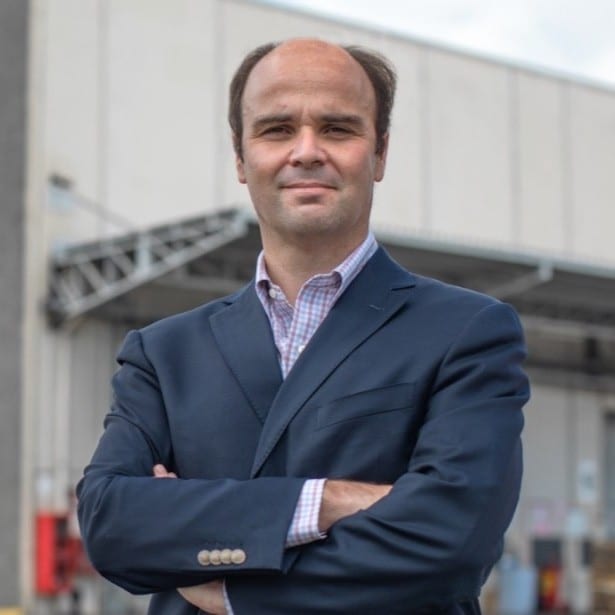
Ignacio Alcalde es el Director General de TW Logistica. Comenzó su carrera como ingeniero civil, trabajando 10 años en la industria forestal en el sur de Chile, exportando chips a Japón y remanufacturando a Estados Unidos. Después de eso, dio un giro y se cambió a la logística, donde ha trabajado durante los últimos 11 años. Conéctese con Ignacio en LinkedIn.
